Frequent persons on Brazil's street signs
countries
623 names / 8230 streets
Getúlio Vargas
 329
Getúlio Dornelles Vargas was a Brazilian lawyer and politician who served as the 14th and 17th president of Brazil, from 1930 to 1945 and from 1951 until his suicide in 1954. Due to his long and...
329
Getúlio Dornelles Vargas was a Brazilian lawyer and politician who served as the 14th and 17th president of Brazil, from 1930 to 1945 and from 1951 until his suicide in 1954. Due to his long and...
Mary, mother of Jesus
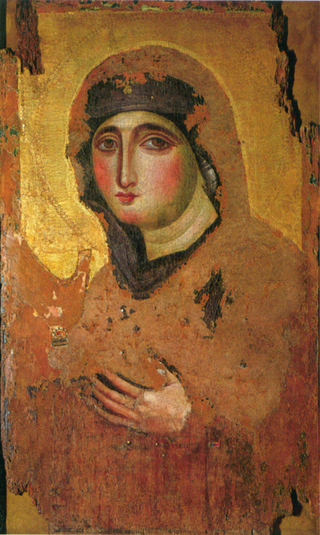 165
Mary was a first-century Jewish woman of Nazareth, the wife of Joseph and the mother of Jesus. She is a central figure of Christianity, venerated under various titles such as virgin or queen, many of...
165
Mary was a first-century Jewish woman of Nazareth, the wife of Joseph and the mother of Jesus. She is a central figure of Christianity, venerated under various titles such as virgin or queen, many of...
Ruy Barbosa
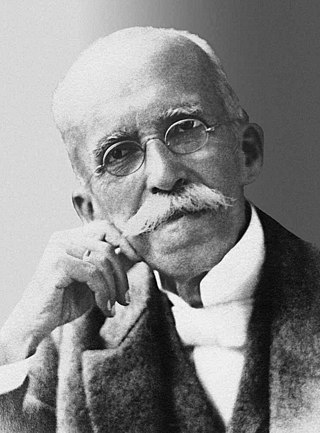 150
Ruy Barbosa de Oliveira, also known as Rui Barbosa, was a Brazilian polymath, diplomat, writer, jurist, and politician.
150
Ruy Barbosa de Oliveira, also known as Rui Barbosa, was a Brazilian polymath, diplomat, writer, jurist, and politician.
Alberto Santos-Dumont
 147
Alberto Santos-Dumont, self-stylized as Alberto Santos=Dumont, was a Brazilian aeronaut, sportsman, inventor, and one of the few people to have contributed significantly to the early development of...
147
Alberto Santos-Dumont, self-stylized as Alberto Santos=Dumont, was a Brazilian aeronaut, sportsman, inventor, and one of the few people to have contributed significantly to the early development of...
Luís Alves de Lima e Silva, Duke of Caxias
 146
Luís Alves de Lima e Silva, Duke of Caxias, nicknamed "the Peacemaker" and "the Iron Duke", was an army officer, politician and monarchist of the Empire of Brazil. Like his father and uncles, Caxias...
146
Luís Alves de Lima e Silva, Duke of Caxias, nicknamed "the Peacemaker" and "the Iron Duke", was an army officer, politician and monarchist of the Empire of Brazil. Like his father and uncles, Caxias...
Tiradentes
 140
Joaquim José da Silva Xavier, known as Tiradentes, was a leading member of the colonial Brazilian revolutionary movement known as Inconfidência Mineira, whose aim was full independence from...
140
Joaquim José da Silva Xavier, known as Tiradentes, was a leading member of the colonial Brazilian revolutionary movement known as Inconfidência Mineira, whose aim was full independence from...
Floriano Peixoto
 131
Floriano Vieira Peixoto, born in Ipioca, nicknamed the "Iron Marshal", was a Brazilian soldier and politician, a veteran of the Paraguayan War, and the second president of Brazil. He was the first...
131
Floriano Vieira Peixoto, born in Ipioca, nicknamed the "Iron Marshal", was a Brazilian soldier and politician, a veteran of the Paraguayan War, and the second president of Brazil. He was the first...
Paul the Apostle
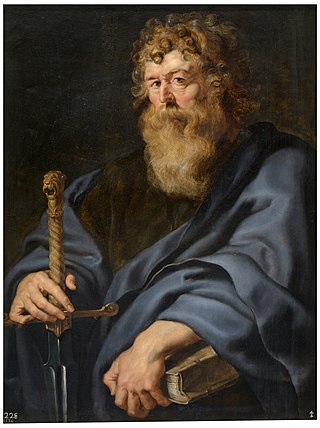 129
Paul, commonly known as Paul the Apostle and Saint Paul, was a Christian apostle who spread the teachings of Jesus in the first-century world. For his contributions towards the New Testament, he is...
129
Paul, commonly known as Paul the Apostle and Saint Paul, was a Christian apostle who spread the teachings of Jesus in the first-century world. For his contributions towards the New Testament, he is...
Humberto de Alencar Castelo Branco
 125
Marshal Humberto de Alencar Castelo Branco was a Brazilian military leader and dictator. He served as the first president of the Brazilian military dictatorship after the 1964 military coup d'etat....
125
Marshal Humberto de Alencar Castelo Branco was a Brazilian military leader and dictator. He served as the first president of the Brazilian military dictatorship after the 1964 military coup d'etat....
Saint Joseph
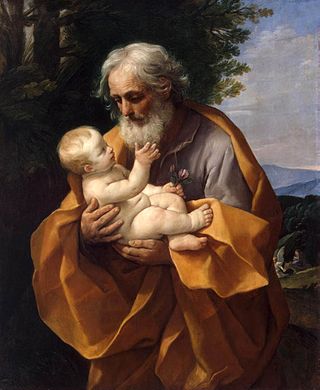 117
Joseph was a 1st-century Jewish man of Nazareth who, according to the canonical Gospels, was married to Mary, the mother of Jesus, and was the legal father of Jesus.
117
Joseph was a 1st-century Jewish man of Nazareth who, according to the canonical Gospels, was married to Mary, the mother of Jesus, and was the legal father of Jesus.
José Paranhos, Baron of Rio Branco
 109
José Maria da Silva Paranhos Júnior, Baron of Rio Branco was a Brazilian noble, diplomat, geographer, historian, politician and professor, considered to be the "father of Brazilian diplomacy". He was...
109
José Maria da Silva Paranhos Júnior, Baron of Rio Branco was a Brazilian noble, diplomat, geographer, historian, politician and professor, considered to be the "father of Brazilian diplomacy". He was...
Deodoro da Fonseca
 93
Manuel Deodoro da Fonseca was a Brazilian politician and military officer who served as the first president of Brazil. He was born in Alagoas in a military family, followed a military career, and...
93
Manuel Deodoro da Fonseca was a Brazilian politician and military officer who served as the first president of Brazil. He was born in Alagoas in a military family, followed a military career, and...
Tancredo Neves
 93
Tancredo de Almeida Neves was a Brazilian politician, lawyer, and entrepreneur. He served as Minister of Justice and Internal Affairs from 1953 to 1954, President of the Council of Ministers from...
93
Tancredo de Almeida Neves was a Brazilian politician, lawyer, and entrepreneur. He served as Minister of Justice and Internal Affairs from 1953 to 1954, President of the Council of Ministers from...
Francis of Assisi
 93
Giovanni di Pietro di Bernardone, known as Francis of Assisi, was an Italian mystic, poet and Catholic friar who founded the religious order of the Franciscans. He was inspired to lead a Christian...
93
Giovanni di Pietro di Bernardone, known as Francis of Assisi, was an Italian mystic, poet and Catholic friar who founded the religious order of the Franciscans. He was inspired to lead a Christian...
Anthony of Padua
 92
Anthony of Padua, OFM or Anthony of Lisbon was a Portuguese Catholic priest and friar of the Franciscan Order.
92
Anthony of Padua, OFM or Anthony of Lisbon was a Portuguese Catholic priest and friar of the Franciscan Order.
Jesus
 91
Jesus, also referred to as Jesus Christ, Jesus of Nazareth, and many other names and titles, was a first-century Jewish preacher and religious leader. He is the central figure of Christianity, the...
91
Jesus, also referred to as Jesus Christ, Jesus of Nazareth, and many other names and titles, was a first-century Jewish preacher and religious leader. He is the central figure of Christianity, the...
Mário Covas
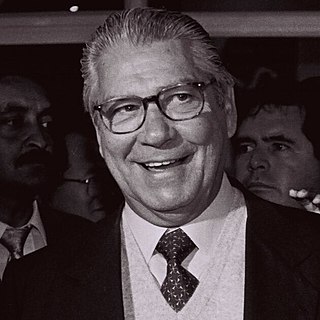 88
Mário Covas Almeida Júnior was a Brazilian politician.
88
Mário Covas Almeida Júnior was a Brazilian politician.
João Pessoa (politician)
 78
João Pessoa Cavalcanti de Albuquerque was a Brazilian politician and lawyer who served as the governor of Paraíba between 1928 and 1930.
78
João Pessoa Cavalcanti de Albuquerque was a Brazilian politician and lawyer who served as the governor of Paraíba between 1928 and 1930.
Pedro II of Brazil
 76
Dom Pedro II, nicknamed the Magnanimous, was the second and last monarch of the Empire of Brazil, reigning for over 58 years.
76
Dom Pedro II, nicknamed the Magnanimous, was the second and last monarch of the Empire of Brazil, reigning for over 58 years.
Benjamin Constant
 76
Henri-Benjamin Constant de Rebecque, or simply Benjamin Constant, was a Swiss political thinker, activist and writer on political theory and religion.
76
Henri-Benjamin Constant de Rebecque, or simply Benjamin Constant, was a Swiss political thinker, activist and writer on political theory and religion.
Juscelino Kubitschek
 75
Juscelino Kubitschek de Oliveira, also known by his initials JK, was a prominent Brazilian politician who served as the 21st president of Brazil from 1956 to 1961. His term was marked by economic...
75
Juscelino Kubitschek de Oliveira, also known by his initials JK, was a prominent Brazilian politician who served as the 21st president of Brazil from 1956 to 1961. His term was marked by economic...
John the Apostle
 74
John the Apostle, also known as Saint John the Beloved and, in Eastern Orthodox Christianity, Saint John the Theologian, was one of the Twelve Apostles of Jesus according to the New Testament....
74
John the Apostle, also known as Saint John the Beloved and, in Eastern Orthodox Christianity, Saint John the Theologian, was one of the Twelve Apostles of Jesus according to the New Testament....
Castro Alves
 74
Antônio Frederico de Castro Alves was a Brazilian poet and playwright famous for his abolitionist and republican poems. One of the most famous poets of the Condorist movement, he wrote classics such...
74
Antônio Frederico de Castro Alves was a Brazilian poet and playwright famous for his abolitionist and republican poems. One of the most famous poets of the Condorist movement, he wrote classics such...
Saint Peter
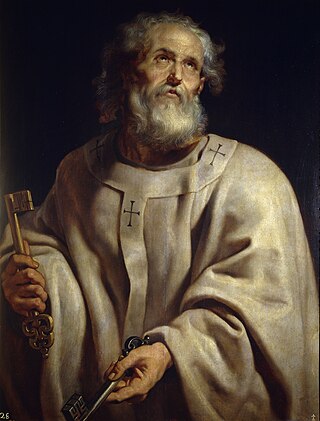 73
Saint Peter, also known as Peter the Apostle, Simon Peter, Simeon, Simon, or Cephas, was one of the Twelve Apostles of Jesus Christ and one of the first leaders of the early Christian Church. He...
73
Saint Peter, also known as Peter the Apostle, Simon Peter, Simeon, Simon, or Cephas, was one of the Twelve Apostles of Jesus Christ and one of the first leaders of the early Christian Church. He...
Catherine of Alexandria
 68
Catherine of Alexandria, also spelled Katherine is, according to tradition, a Christian saint and virgin, who was martyred in the early fourth century at the hands of the emperor Maxentius. According...
68
Catherine of Alexandria, also spelled Katherine is, according to tradition, a Christian saint and virgin, who was martyred in the early fourth century at the hands of the emperor Maxentius. According...
Saint Sebastian
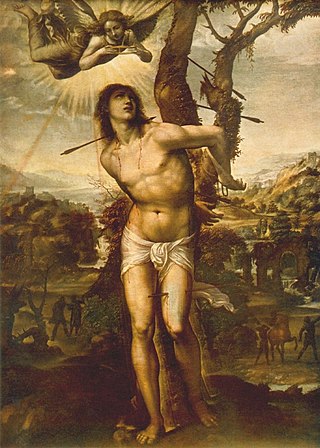 68
Sebastian was an early Christian saint and martyr. According to traditional belief, he was killed during the Diocletianic Persecution of Christians. He was initially tied to a post or tree and shot...
68
Sebastian was an early Christian saint and martyr. According to traditional belief, he was killed during the Diocletianic Persecution of Christians. He was initially tied to a post or tree and shot...
John F. Kennedy
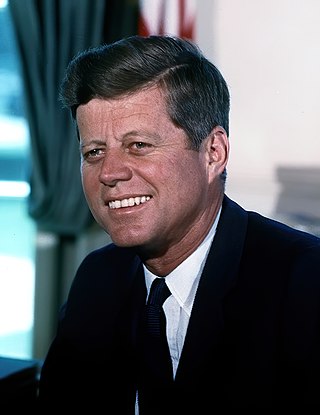 64
John Fitzgerald Kennedy, often referred to as JFK, was an American politician who served as the 35th president of the United States from 1961 until his assassination in 1963. He was the youngest...
64
John Fitzgerald Kennedy, often referred to as JFK, was an American politician who served as the 35th president of the United States from 1961 until his assassination in 1963. He was the youngest...
Isabel, Princess Imperial of Brazil
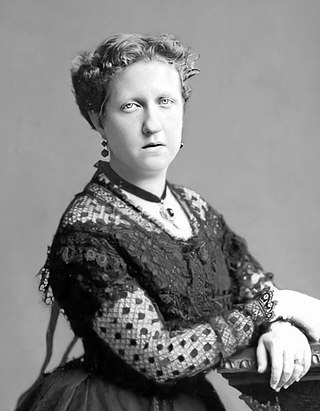 60
Dona Isabel, nicknamed "the Redemptress", was the Princess Imperial of the Empire of Brazil and the Empire's regent on three occasions. Born in Rio de Janeiro as the eldest daughter of Emperor Pedro...
60
Dona Isabel, nicknamed "the Redemptress", was the Princess Imperial of the Empire of Brazil and the Empire's regent on three occasions. Born in Rio de Janeiro as the eldest daughter of Emperor Pedro...
José Bonifácio de Andrada e Silva
 60
José Bonifácio de Andrada e Silva was a Brazilian statesman, naturalist, mineralist, professor and poet, born in Santos, São Paulo, then part of the Portuguese Empire.
60
José Bonifácio de Andrada e Silva was a Brazilian statesman, naturalist, mineralist, professor and poet, born in Santos, São Paulo, then part of the Portuguese Empire.
Bandeirantes
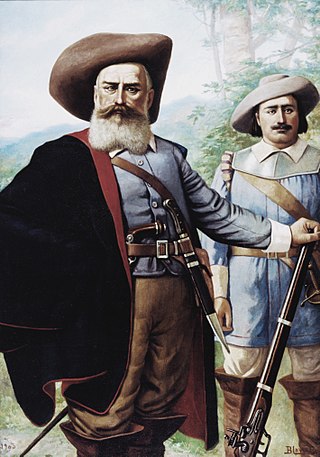 56
Bandeirantes were settlers in Portuguese Brazil who participated in exploratory voyages during the early modern period to expand the colony's borders and subjugate indigenous Brazilians. They played...
56
Bandeirantes were settlers in Portuguese Brazil who participated in exploratory voyages during the early modern period to expand the colony's borders and subjugate indigenous Brazilians. They played...
Manuel Luís Osório, Marquis of Erval
 53
Manuel Luís Osório, Marquis of Erval was a Brazilian military officer, monarchist and politician. A member of the Imperial Army at the age of fifteen, he climbed all the posts of the military...
53
Manuel Luís Osório, Marquis of Erval was a Brazilian military officer, monarchist and politician. A member of the Imperial Army at the age of fifteen, he climbed all the posts of the military...
Quintino Bocaiuva
 52
Quintino Antônio Ferreira de Sousa Bocaiuva was a Brazilian politician and writer. He served as Minister of Foreign Affairs of Brazil, between 1889 and 1891, and was also President of the State of...
52
Quintino Antônio Ferreira de Sousa Bocaiuva was a Brazilian politician and writer. He served as Minister of Foreign Affairs of Brazil, between 1889 and 1891, and was also President of the State of...
Joseph of Anchieta
 51
José de Anchieta y Díaz de Clavijo, SJ was a Canarian Jesuit missionary to the Portuguese colony of Brazil in the second half of the 16th century. A highly influential figure in Brazil's history in...
51
José de Anchieta y Díaz de Clavijo, SJ was a Canarian Jesuit missionary to the Portuguese colony of Brazil in the second half of the 16th century. A highly influential figure in Brazil's history in...
Cândido Rondon
 51
Marshal Cândido Mariano da Silva Rondon was a Brazilian military officer most famous for his telegraph commission and exploration of Mato Grosso and the Western Amazon Basin, as well as his lifelong...
51
Marshal Cândido Mariano da Silva Rondon was a Brazilian military officer most famous for his telegraph commission and exploration of Mato Grosso and the Western Amazon Basin, as well as his lifelong...
Oswaldo Cruz
 46
Oswaldo Gonçalves Cruz, was a Brazilian physician, pioneer bacteriologist, epidemiologist and public health officer and the founder of the Oswaldo Cruz Institute.
46
Oswaldo Gonçalves Cruz, was a Brazilian physician, pioneer bacteriologist, epidemiologist and public health officer and the founder of the Oswaldo Cruz Institute.
Prudente de Morais
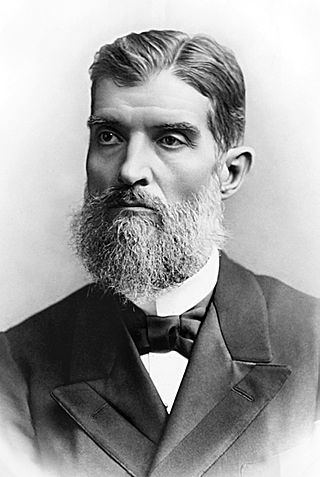 46
Prudente José de Morais e Barros was a Brazilian lawyer and politician who was the third president of Brazil. He is notable as the first civilian president of the country, the first to be elected by...
46
Prudente José de Morais e Barros was a Brazilian lawyer and politician who was the third president of Brazil. He is notable as the first civilian president of the country, the first to be elected by...
Manuel Ferraz de Campos Sales
 44
Manoel Ferraz de Campos Salles was a Brazilian lawyer, coffee farmer, and politician who served as the fourth president of Brazil. He was born in the city of Campinas, São Paulo. He graduated as a...
44
Manoel Ferraz de Campos Salles was a Brazilian lawyer, coffee farmer, and politician who served as the fourth president of Brazil. He was born in the city of Campinas, São Paulo. He graduated as a...
Eurico Gaspar Dutra
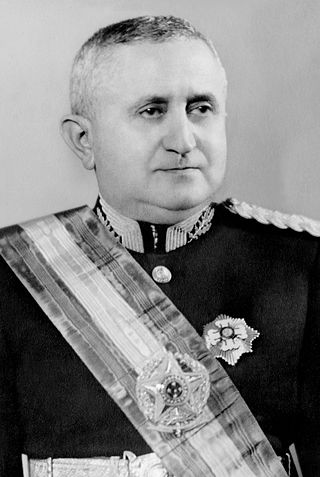 43
Eurico Gaspar Dutra was a Brazilian military leader and politician who served as the 16th president of Brazil from 1946 to 1951. He was the first president of the Fourth Brazilian Republic, which...
43
Eurico Gaspar Dutra was a Brazilian military leader and politician who served as the 16th president of Brazil from 1946 to 1951. He was the first president of the Fourth Brazilian Republic, which...
Our Lady of Fátima
 43
Our Lady of Fátima is a Catholic title of Mary, mother of Jesus, based on the Marian apparitions reported in 1917 by three shepherd children at the Cova da Iria in Fátima, Portugal. The three...
43
Our Lady of Fátima is a Catholic title of Mary, mother of Jesus, based on the Marian apparitions reported in 1917 by three shepherd children at the Cova da Iria in Fátima, Portugal. The three...
Pope John XXIII
 42
Pope John XXIII was head of the Catholic Church and sovereign of the Vatican City State from 28 October 1958 until his death in June 1963.
42
Pope John XXIII was head of the Catholic Church and sovereign of the Vatican City State from 28 October 1958 until his death in June 1963.
Ayrton Senna
 42
Ayrton Senna da Silva was a Brazilian racing driver who won the Formula One World Drivers' Championship in 1988, 1990, and 1991. One of three Formula One drivers from Brazil to become World Champion,...
42
Ayrton Senna da Silva was a Brazilian racing driver who won the Formula One World Drivers' Championship in 1988, 1990, and 1991. One of three Formula One drivers from Brazil to become World Champion,...
Júlio de Castilhos (politician)
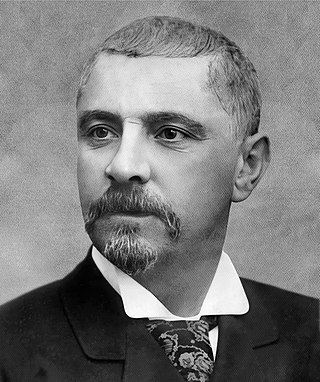 41
Júlio Prates de Castilhos was a Brazilian journalist and politician, having been elected Patriarch of Rio Grande do Sul.
41
Júlio Prates de Castilhos was a Brazilian journalist and politician, having been elected Patriarch of Rio Grande do Sul.
Francisco Manuel Barroso, Baron of Amazonas
 39
Francisco Manuel Barroso, Baron of Amazonas was a Brazilian admiral of the Imperial Brazilian Navy.
39
Francisco Manuel Barroso, Baron of Amazonas was a Brazilian admiral of the Imperial Brazilian Navy.
Olavo Bilac
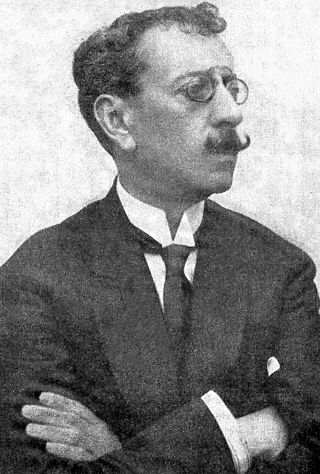 39
Olavo Brás Martins dos Guimarães Bilac, known simply as Olavo Bilac, was a Brazilian Parnassian poet, journalist and translator. Alongside Alberto de Oliveira and Raimundo Correia, he was a member of...
39
Olavo Brás Martins dos Guimarães Bilac, known simply as Olavo Bilac, was a Brazilian Parnassian poet, journalist and translator. Alongside Alberto de Oliveira and Raimundo Correia, he was a member of...
Antônio Carlos Gomes
 39
Antônio Carlos Gomes was the first New World composer whose work was accepted by Europe. He was the only non-European who was successful as an opera composer in Italy, during the "golden age of...
39
Antônio Carlos Gomes was the first New World composer whose work was accepted by Europe. He was the only non-European who was successful as an opera composer in Italy, during the "golden age of...
Rita of Cascia
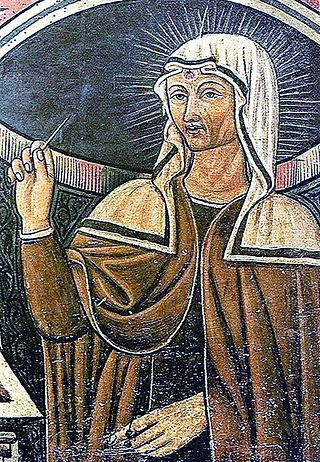 39
Rita of Cascia, OSA, was an Italian widow and Augustinian nun. After Rita's husband died, she joined an Augustinian community of religious sisters, where she was known both for practicing...
39
Rita of Cascia, OSA, was an Italian widow and Augustinian nun. After Rita's husband died, she joined an Augustinian community of religious sisters, where she was known both for practicing...
Afonso Pena
 38
Afonso Augusto Moreira Pena, often referred to as Afonso Pena, was a Brazilian lawyer, professor and politician who served as the 6th president of Brazil from 1906 until his death in 1909. Pena was...
38
Afonso Augusto Moreira Pena, often referred to as Afonso Pena, was a Brazilian lawyer, professor and politician who served as the 6th president of Brazil from 1906 until his death in 1909. Pena was...
Siqueira Campos (político)
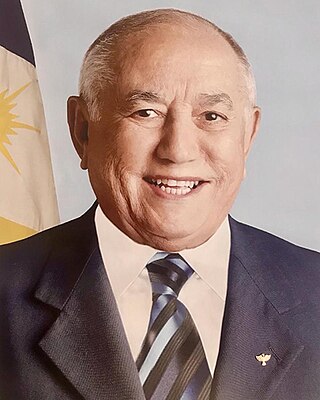 37
José Wilson Siqueira Campos, mais conhecido como Siqueira Campos;, foi um político brasileiro. Foi o primeiro governador do estado do Tocantins, já tendo exercido o cargo em quatro mandatos...
37
José Wilson Siqueira Campos, mais conhecido como Siqueira Campos;, foi um político brasileiro. Foi o primeiro governador do estado do Tocantins, já tendo exercido o cargo em quatro mandatos...
Artur da Costa e Silva
 37
Artur da Costa e Silva was a Brazilian Army Marshal and the second president of the Brazilian military government that came to power after the 1964 coup d'état. He reached the rank of Marshal of the...
37
Artur da Costa e Silva was a Brazilian Army Marshal and the second president of the Brazilian military government that came to power after the 1964 coup d'état. He reached the rank of Marshal of the...
Benedict the Moor
 37
Benedict the Moor was a Sicilian Franciscan friar. Born of enslaved Africans in San Fratello, he was freed at birth and became known for his charity.
37
Benedict the Moor was a Sicilian Franciscan friar. Born of enslaved Africans in San Fratello, he was freed at birth and became known for his charity.
Gonçalves Dias
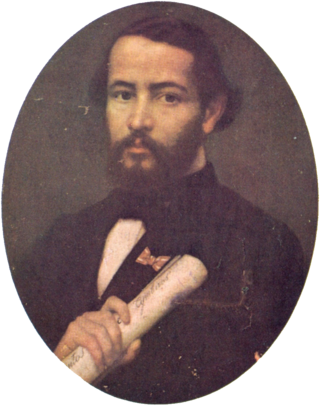 36
Antônio Gonçalves Dias was a Brazilian Romantic poet, playwright, ethnographer, lawyer and linguist. A major exponent of Brazilian Romanticism and of the literary tradition known as "Indianism", he...
36
Antônio Gonçalves Dias was a Brazilian Romantic poet, playwright, ethnographer, lawyer and linguist. A major exponent of Brazilian Romanticism and of the literary tradition known as "Indianism", he...
Joaquim Pedro Salgado Filho
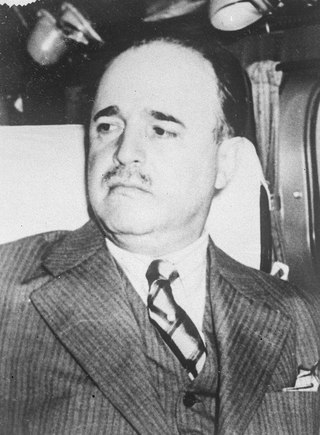 36
Joaquim Pedro Salgado Filho was a Brazilian lawyer, political leader and influential figure in the separation of the Brazilian Air Force from the Army.
36
Joaquim Pedro Salgado Filho was a Brazilian lawyer, political leader and influential figure in the separation of the Brazilian Air Force from the Army.
Machado de Assis
 35
Joaquim Maria Machado de Assis, often known by his surnames as Machado de Assis, Machado, or Bruxo do Cosme Velho, was a pioneer Brazilian novelist, poet, playwright and short story writer, widely...
35
Joaquim Maria Machado de Assis, often known by his surnames as Machado de Assis, Machado, or Bruxo do Cosme Velho, was a pioneer Brazilian novelist, poet, playwright and short story writer, widely...
Michael (archangel)
 34
Michael, also called Saint Michael the Archangel, Archangel Michael and Saint Michael the Taxiarch is an archangel in Judaism, Christianity, Islam, and the Baha'i faith. The earliest surviving...
34
Michael, also called Saint Michael the Archangel, Archangel Michael and Saint Michael the Taxiarch is an archangel in Judaism, Christianity, Islam, and the Baha'i faith. The earliest surviving...
Monteiro Lobato
 32
José Bento Renato Monteiro Lobato was one of Brazil's most influential writers, mostly for his children's books set in the fictional Sítio do Picapau Amarelo but he had been previously a prolific...
32
José Bento Renato Monteiro Lobato was one of Brazil's most influential writers, mostly for his children's books set in the fictional Sítio do Picapau Amarelo but he had been previously a prolific...
Benedict of Nursia
 32
Benedict of Nursia, often known as Saint Benedict, was an Italian Christian monk, writer, and theologian. He is venerated in the Catholic Church, the Eastern Orthodox Church, the Oriental Orthodox...
32
Benedict of Nursia, often known as Saint Benedict, was an Italian Christian monk, writer, and theologian. He is venerated in the Catholic Church, the Eastern Orthodox Church, the Oriental Orthodox...
Joaquim Marques Lisboa, Marquis of Tamandaré
 31
Joaquim Marques Lisboa, Marquis of Tamandaré was a Brazilian admiral of the Imperial Navy of Brazil. He dedicated his life to the Brazilian Navy, including a life-long membership in Brazil's Military...
31
Joaquim Marques Lisboa, Marquis of Tamandaré was a Brazilian admiral of the Imperial Navy of Brazil. He dedicated his life to the Brazilian Navy, including a life-long membership in Brazil's Military...
Benedito Valadares
 31
Benedito Valadares Ribeiro foi um jornalista e político brasileiro.
31
Benedito Valadares Ribeiro foi um jornalista e político brasileiro.
Pedro I of Brazil
 31
Dom Pedro I was the founder and first ruler of the Empire of Brazil, where he was known as "the Liberator". As King Dom Pedro IV, he reigned briefly over Portugal, where he also became known as "the...
31
Dom Pedro I was the founder and first ruler of the Empire of Brazil, where he was known as "the Liberator". As King Dom Pedro IV, he reigned briefly over Portugal, where he also became known as "the...
Anita Garibaldi
 30
Anita Garibaldi was a Brazilian republican revolutionary. She was the wife and comrade-in-arms of Italian revolutionary Giuseppe Garibaldi. Their partnership epitomized the spirit of the 19th...
30
Anita Garibaldi was a Brazilian republican revolutionary. She was the wife and comrade-in-arms of Italian revolutionary Giuseppe Garibaldi. Their partnership epitomized the spirit of the 19th...
Washington Luís
 30
Washington Luís Pereira de Sousa was a Brazilian politician who served as the 13th president of Brazil. Elected governor of São Paulo state in 1920 and president of Brazil in 1926, Washington Luís...
30
Washington Luís Pereira de Sousa was a Brazilian politician who served as the 13th president of Brazil. Elected governor of São Paulo state in 1920 and president of Brazil in 1926, Washington Luís...
Euclides da Cunha
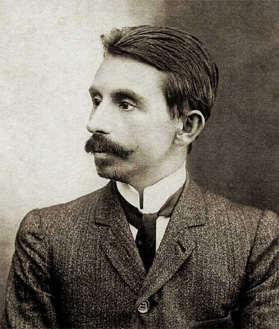 30
Euclides da Cunha was a Brazilian journalist, sociologist and engineer. His most important work is Os Sertões, a non-fictional account of the military expeditions promoted by the Brazilian government...
30
Euclides da Cunha was a Brazilian journalist, sociologist and engineer. His most important work is Os Sertões, a non-fictional account of the military expeditions promoted by the Brazilian government...
John the Baptist
 29
John the Baptist was a Jewish preacher active in the area of the Jordan River in the early 1st century AD. He is also known as Saint John the Forerunner in Eastern Orthodoxy, John the Immerser in...
29
John the Baptist was a Jewish preacher active in the area of the Jordan River in the early 1st century AD. He is also known as Saint John the Forerunner in Eastern Orthodoxy, John the Immerser in...
Christopher Columbus
 29
Christopher Columbus was an Italian explorer and navigator from the Republic of Genoa who completed four Spanish-based voyages across the Atlantic Ocean sponsored by the Catholic Monarchs, opening...
29
Christopher Columbus was an Italian explorer and navigator from the Republic of Genoa who completed four Spanish-based voyages across the Atlantic Ocean sponsored by the Catholic Monarchs, opening...
Nilo Peçanha
 28
Nilo Procópio Peçanha was a Brazilian politician who served as seventh president of Brazil. He was governor of Rio de Janeiro (1903–1906), then elected the fifth vice president of Brazil in 1906. He...
28
Nilo Procópio Peçanha was a Brazilian politician who served as seventh president of Brazil. He was governor of Rio de Janeiro (1903–1906), then elected the fifth vice president of Brazil in 1906. He...
Saldanha Marinho
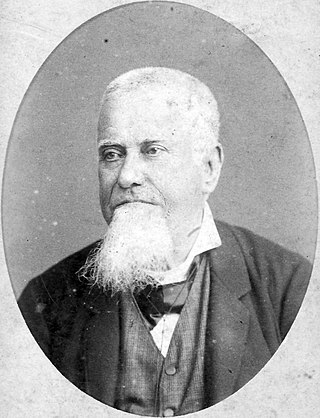 28
Joaquim Saldanha Marinho foi um advogado, jornalista, sociólogo e político brasileiro. Como jornalista, usou o pseudônimo Ganganelli.
28
Joaquim Saldanha Marinho foi um advogado, jornalista, sociólogo e político brasileiro. Como jornalista, usou o pseudônimo Ganganelli.
Pope Pius XII
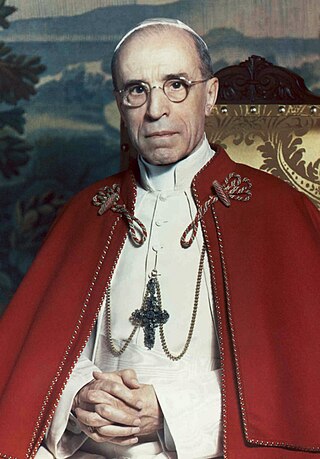 27
Pope Pius XII was head of the Catholic Church and sovereign of the Vatican City State from 2 March 1939 until his death in October 1958. Before his election to the papacy, he served as secretary of...
27
Pope Pius XII was head of the Catholic Church and sovereign of the Vatican City State from 2 March 1939 until his death in October 1958. Before his election to the papacy, he served as secretary of...
José de Alencar
 26
José Martiniano de Alencar was a Brazilian lawyer, politician, orator, novelist and dramatist. He is considered to be one of the most famous and influential Brazilian Romantic novelists of the 19th...
26
José Martiniano de Alencar was a Brazilian lawyer, politician, orator, novelist and dramatist. He is considered to be one of the most famous and influential Brazilian Romantic novelists of the 19th...
Vincent of Saragossa
 26
Vincent of Saragossa, the Protomartyr of Spain, was a deacon of the Church of Saragossa. He is the patron saint of Lisbon and Valencia. His feast day is 22 January in the Catholic Church and Anglican...
26
Vincent of Saragossa, the Protomartyr of Spain, was a deacon of the Church of Saragossa. He is the patron saint of Lisbon and Valencia. His feast day is 22 January in the Catholic Church and Anglican...
Pedro Álvares Cabral
 26
Pedro Álvares Cabral was a Portuguese nobleman, military commander, navigator and explorer regarded as the European discoverer of Brazil. He was the first recorded human in history to ever be on four...
26
Pedro Álvares Cabral was a Portuguese nobleman, military commander, navigator and explorer regarded as the European discoverer of Brazil. He was the first recorded human in history to ever be on four...
Francisco de Paula Rodrigues Alves
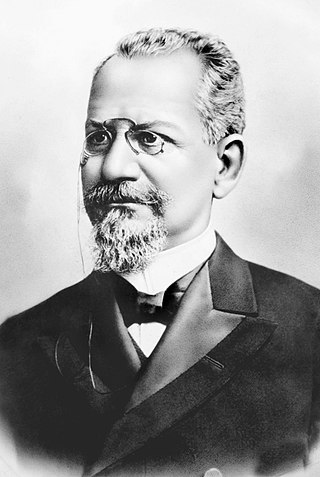 25
Francisco de Paula Rodrigues Alves, PC was a Brazilian politician who first served as president of the Province of São Paulo in 1887, then as Treasury minister in the 1890s. Rodrigues Alves was...
25
Francisco de Paula Rodrigues Alves, PC was a Brazilian politician who first served as president of the Province of São Paulo in 1887, then as Treasury minister in the 1890s. Rodrigues Alves was...
Nereu Ramos
 25
Nereu de Oliveira Ramos was a Brazilian political figure. He briefly served as interim president of Brazil in the aftermath of the political crisis which culminated in the suicide of President...
25
Nereu de Oliveira Ramos was a Brazilian political figure. He briefly served as interim president of Brazil in the aftermath of the political crisis which culminated in the suicide of President...
Antônio da Silva Jardim
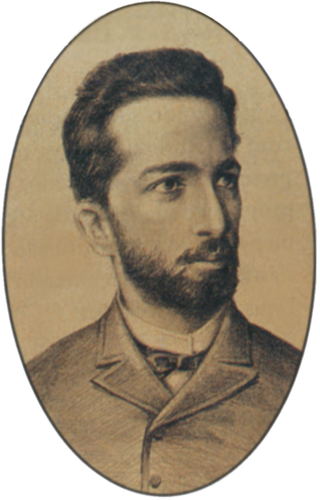 25
Antônio da Silva Jardim was a Brazilian lawyer and journalist. He was a political activist in the abolitionist and republican movements, particularly in Rio de Janeiro state.
25
Antônio da Silva Jardim was a Brazilian lawyer and journalist. He was a political activist in the abolitionist and republican movements, particularly in Rio de Janeiro state.
Arthur Bernardes
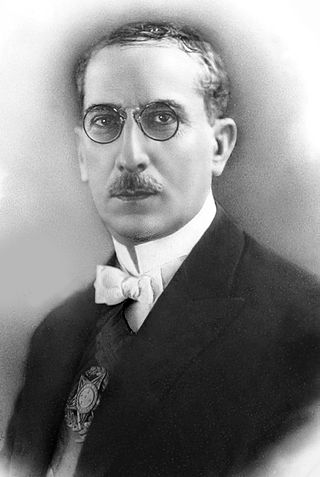 25
Artur da Silva Bernardes was a Brazilian politician who served as 12th president of Brazil during the First Brazilian Republic. Born in Viçosa, Minas Gerais, he was elected Governor of Minas Gerais...
25
Artur da Silva Bernardes was a Brazilian politician who served as 12th president of Brazil during the First Brazilian Republic. Born in Viçosa, Minas Gerais, he was elected Governor of Minas Gerais...
Oswaldo Aranha
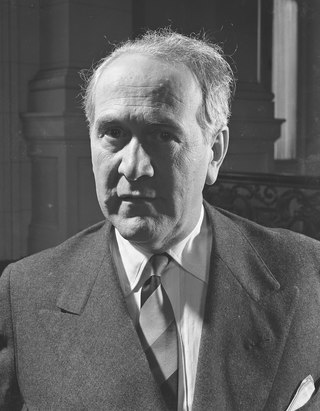 24
Oswaldo Euclides de Souza Aranha was a Brazilian politician, diplomat and statesman, who came to national prominence in 1930 under Getúlio Vargas.
24
Oswaldo Euclides de Souza Aranha was a Brazilian politician, diplomat and statesman, who came to national prominence in 1930 under Getúlio Vargas.
Bento Gonçalves da Silva
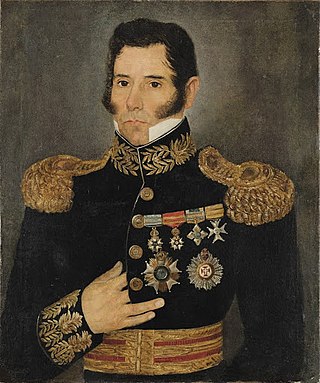 24
Bento Gonçalves da Silva was a Brazilian army officer, politician and rebel leader of the Riograndense Republic. He was the first President of the Riograndense Republic and, by all accounts, one of...
24
Bento Gonçalves da Silva was a Brazilian army officer, politician and rebel leader of the Riograndense Republic. He was the first President of the Riograndense Republic and, by all accounts, one of...
José do Patrocínio
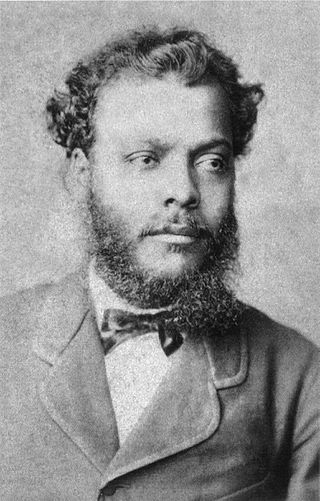 24
José Carlos do Patrocínio was a Brazilian writer, journalist, activist, orator and pharmacist. He was among the most well-known proponents of the abolition of slavery in Brazil, and known as "Tigre...
24
José Carlos do Patrocínio was a Brazilian writer, journalist, activist, orator and pharmacist. He was among the most well-known proponents of the abolition of slavery in Brazil, and known as "Tigre...
Saint George
 24
Saint George, also George of Lydda, was an early Christian martyr who is venerated as a saint in Christianity. According to tradition, he was a soldier in the Roman army. Of Cappadocian Greek origin,...
24
Saint George, also George of Lydda, was an early Christian martyr who is venerated as a saint in Christianity. According to tradition, he was a soldier in the Roman army. Of Cappadocian Greek origin,...
Guaraní people
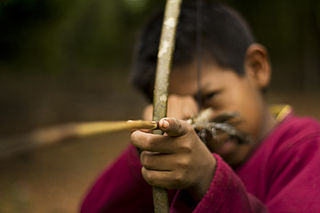 24
The Guarani are a group of culturally-related indigenous peoples of South America. They are distinguished from the related Tupi by their use of the Guarani language. The traditional range of the...
24
The Guarani are a group of culturally-related indigenous peoples of South America. They are distinguished from the related Tupi by their use of the Guarani language. The traditional range of the...
Vincent de Paul
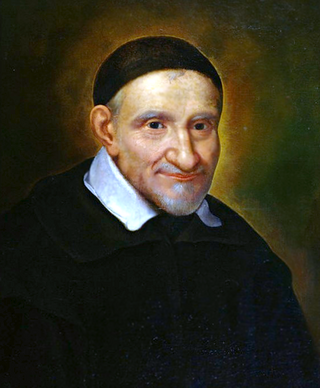 24
Vincent de Paul, CM, commonly known as Saint Vincent de Paul, was an Occitan French Catholic priest who dedicated himself to serving the poor.
24
Vincent de Paul, CM, commonly known as Saint Vincent de Paul, was an Occitan French Catholic priest who dedicated himself to serving the poor.
Princess Leopoldina of Brazil
 23
Princess Leopoldina of Brazil was the daughter of Emperor Pedro II and Empress Teresa Cristina. She shared the first name of her grandmother, Empress Maria Leopoldina of Brazil.
23
Princess Leopoldina of Brazil was the daughter of Emperor Pedro II and Empress Teresa Cristina. She shared the first name of her grandmother, Empress Maria Leopoldina of Brazil.
Marcílio Dias
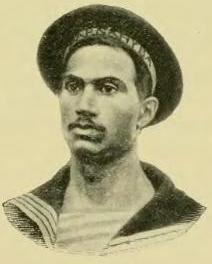 23
Marcilio Dias foi um marinheiro da Armada Imperial brasileira, herói da Batalha Naval do Riachuelo, durante a Guerra da Tríplice Aliança.
23
Marcilio Dias foi um marinheiro da Armada Imperial brasileira, herói da Batalha Naval do Riachuelo, durante a Guerra da Tríplice Aliança.
Ulysses Guimarães
 23
Ulysses Silveira Guimarães was a Brazilian politician and lawyer who played an important role in opposing the military dictatorship in Brazil and in the fight to restore democracy in the country. He...
23
Ulysses Silveira Guimarães was a Brazilian politician and lawyer who played an important role in opposing the military dictatorship in Brazil and in the fight to restore democracy in the country. He...
Rose of Lima
 22
Rose of Lima, TOSD was a member of the Third Order of Saint Dominic in Lima, Peru, who became known for both her life of severe penance and her care of the poverty stricken of the city through her...
22
Rose of Lima, TOSD was a member of the Third Order of Saint Dominic in Lima, Peru, who became known for both her life of severe penance and her care of the poverty stricken of the city through her...
Humberto de Campos (journalist)
 22
Humberto de Campos Veras was a Brazilian journalist, politician and writer.
22
Humberto de Campos Veras was a Brazilian journalist, politician and writer.
Joaquim Nabuco
 21
Joaquim Aurélio Barreto Nabuco de Araújo was a Brazilian writer, statesman, and a leading voice in the abolitionist movement of his country.
21
Joaquim Aurélio Barreto Nabuco de Araújo was a Brazilian writer, statesman, and a leading voice in the abolitionist movement of his country.
Fernão Dias
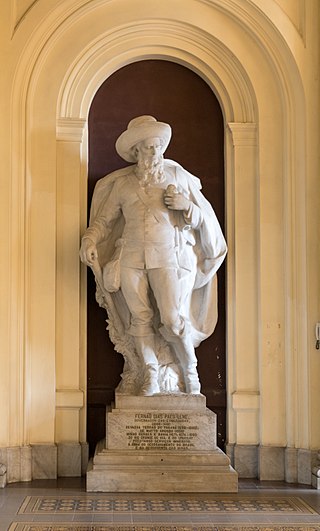 21
Fernão Dias Pais Leme (1608–1681) was a Portuguese bandeirante. He was known as the Emerald Hunter and was one of the most prominent bandeirantes together with António Raposo Tavares.
21
Fernão Dias Pais Leme (1608–1681) was a Portuguese bandeirante. He was known as the Emerald Hunter and was one of the most prominent bandeirantes together with António Raposo Tavares.
John Bosco
 21
John Melchior Bosco, SDB, popularly known as Don Bosco, was an Italian Catholic priest, educator and writer of the 19th century. While working in Turin, where the population suffered many of the ill...
21
John Melchior Bosco, SDB, popularly known as Don Bosco, was an Italian Catholic priest, educator and writer of the 19th century. While working in Turin, where the population suffered many of the ill...
José Paranhos, Viscount of Rio Branco
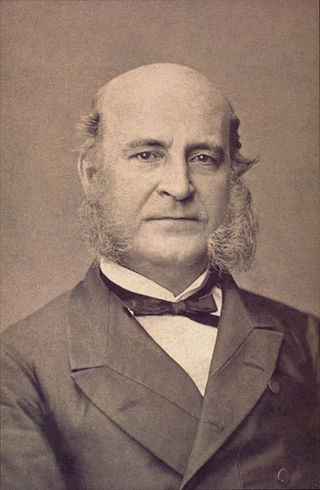 20
José Maria da Silva Paranhos, Viscount of Rio Branco, was a Brazilian politician, monarchist, diplomat, teacher and journalist. Rio Branco was born in Salvador, in what was then the Captaincy of...
20
José Maria da Silva Paranhos, Viscount of Rio Branco, was a Brazilian politician, monarchist, diplomat, teacher and journalist. Rio Branco was born in Salvador, in what was then the Captaincy of...
Maurício Cardoso
 19
Joaquim Maurício Cardoso foi um advogado, professor universitário e político brasileiro, tendo sido interventor federal no estado do Rio Grande do Sul durante o Estado Novo, e ministro da Justiça e...
19
Joaquim Maurício Cardoso foi um advogado, professor universitário e político brasileiro, tendo sido interventor federal no estado do Rio Grande do Sul durante o Estado Novo, e ministro da Justiça e...
Charles Borromeo
 19
Charles Borromeo was the Archbishop of Milan from 1564 to 1584 and a cardinal of the Catholic Church. He was a leading figure of the Counter-Reformation combat against the Protestant Reformation...
19
Charles Borromeo was the Archbishop of Milan from 1564 to 1584 and a cardinal of the Catholic Church. He was a leading figure of the Counter-Reformation combat against the Protestant Reformation...
Joaquim de Andrade Neves, Baron of Triunfo
 19
Joaquim de Andrade Neves, the first and only Baron of Triunfo, was a Brazilian general who was known for his service in the Paraguayan War.
19
Joaquim de Andrade Neves, the first and only Baron of Triunfo, was a Brazilian general who was known for his service in the Paraguayan War.
Pinheiro Machado (politician)
 19
José Gomes Pinheiro Machado was a Brazilian republican politician. He fought for the establishment of the Republic in Brazil and for its consolidation.
19
José Gomes Pinheiro Machado was a Brazilian republican politician. He fought for the establishment of the Republic in Brazil and for its consolidation.
Jude the Apostle
 19
Jude was one of the Twelve Apostles of Jesus according to the New Testament. He is generally identified as Thaddeus and is also variously called Judas Thaddaeus, Jude Thaddaeus, Jude of James, or...
19
Jude was one of the Twelve Apostles of Jesus according to the New Testament. He is generally identified as Thaddeus and is also variously called Judas Thaddaeus, Jude Thaddaeus, Jude of James, or...
Mark the Evangelist
 18
Mark the Evangelist also known as John Mark or Saint Mark, is the person who is traditionally ascribed to be the author of the Gospel of Mark. Modern Bible scholars have concluded that the Gospel of...
18
Mark the Evangelist also known as John Mark or Saint Mark, is the person who is traditionally ascribed to be the author of the Gospel of Mark. Modern Bible scholars have concluded that the Gospel of...
Matthew the Apostle
 18
Matthew the Apostle is named in the New Testament as one of the twelve apostles of Jesus. According to Christian traditions, he was also one of the four Evangelists as author of the Gospel of...
18
Matthew the Apostle is named in the New Testament as one of the twelve apostles of Jesus. According to Christian traditions, he was also one of the four Evangelists as author of the Gospel of...
Henrique Dias
 17
Henrique Dias was a Portuguese soldier and militia leader born in the colony of Brazil. There is no consensus among historians whether he was born free or captive.
17
Henrique Dias was a Portuguese soldier and militia leader born in the colony of Brazil. There is no consensus among historians whether he was born free or captive.
Irineu Evangelista de Sousa, Viscount of Mauá
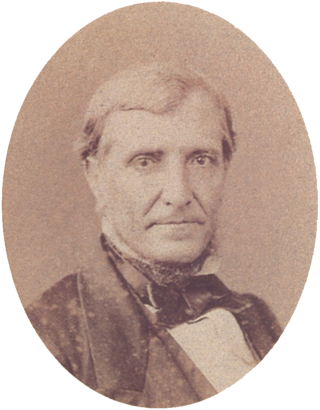 17
Irineu Evangelista de Sousa, the Viscount of Mauá, was a Brazilian entrepreneur, industrialist, banker and politician. Born to a family of small estancieiros (ranchers), Sousa became one of the...
17
Irineu Evangelista de Sousa, the Viscount of Mauá, was a Brazilian entrepreneur, industrialist, banker and politician. Born to a family of small estancieiros (ranchers), Sousa became one of the...
Borges de Medeiros
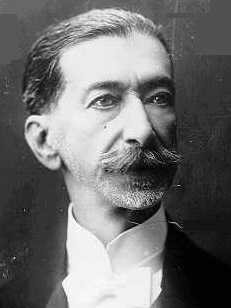 17
Antônio Augusto Borges de Medeiros was a Brazilian lawyer, judge, and politician. He served as Chief Judge and was appointed as the President of Rio Grande do Sul for a total of 25 years, during the...
17
Antônio Augusto Borges de Medeiros was a Brazilian lawyer, judge, and politician. He served as Chief Judge and was appointed as the President of Rio Grande do Sul for a total of 25 years, during the...
Bernardo Sayão Carvalho Araújo
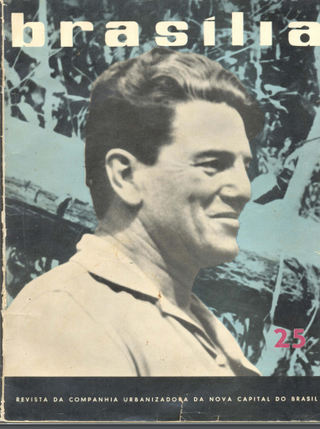 17
Bernardo Sayão Carvalho Araújo foi um engenheiro agrônomo do Ministério da Agricultura e político brasileiro.
17
Bernardo Sayão Carvalho Araújo foi um engenheiro agrônomo do Ministério da Agricultura e político brasileiro.
Saint Christopher
 17
Saint Christopher is venerated by several Christian denominations as a martyr killed in the reign of the 3rd-century Roman emperor Decius, or alternatively under the emperor Maximinus Daia. There...
17
Saint Christopher is venerated by several Christian denominations as a martyr killed in the reign of the 3rd-century Roman emperor Decius, or alternatively under the emperor Maximinus Daia. There...
Clare of Assisi
 17
Chiara Offreduccio, known as Clare of Assisi, was an Italian saint who was one of the first followers of Francis of Assisi.
17
Chiara Offreduccio, known as Clare of Assisi, was an Italian saint who was one of the first followers of Francis of Assisi.
Pope Paul VI
 17
Pope Paul VI was head of the Catholic Church and sovereign of the Vatican City State from 21 June 1963 to his death in August 1978. Succeeding John XXIII, he continued the Second Vatican Council,...
17
Pope Paul VI was head of the Catholic Church and sovereign of the Vatican City State from 21 June 1963 to his death in August 1978. Succeeding John XXIII, he continued the Second Vatican Council,...
Allan Kardec
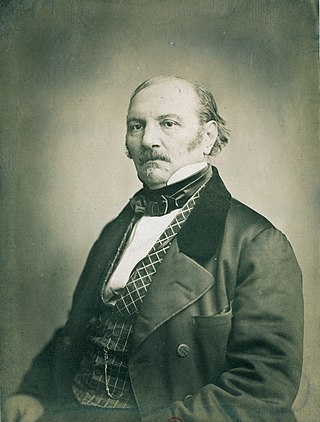 16
Allan Kardec is the pen name of the French educator, translator, and author Hippolyte Léon Denizard Rivail. He is the author of the five books known as the Spiritist Codification, and the founder of...
16
Allan Kardec is the pen name of the French educator, translator, and author Hippolyte Léon Denizard Rivail. He is the author of the five books known as the Spiritist Codification, and the founder of...
António Raposo Tavares
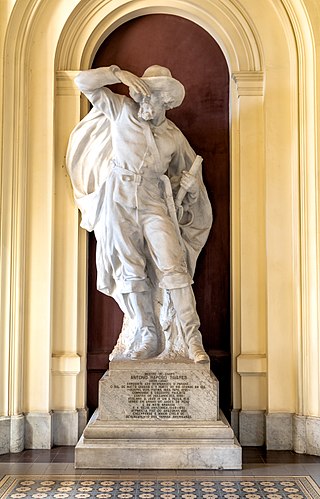 16
António Raposo Tavares (1598–1658) known as the Elder, was a Portuguese bandeirante who explored mainland eastern South America and claimed it for Portugal, extending the territory of the colony...
16
António Raposo Tavares (1598–1658) known as the Elder, was a Portuguese bandeirante who explored mainland eastern South America and claimed it for Portugal, extending the territory of the colony...
Aloysius Gonzaga
 16
Aloysius de Gonzaga was an Italian aristocrat who became a member of the Society of Jesus. While still a student at the Roman College, he died as a result of caring for the victims of a serious...
16
Aloysius de Gonzaga was an Italian aristocrat who became a member of the Society of Jesus. While still a student at the Roman College, he died as a result of caring for the victims of a serious...
António Vieira
 15
António Vieira was a Portuguese Jesuit priest, diplomat, orator, preacher, philosopher, writer, and member of the Royal Council to the King of Portugal.
15
António Vieira was a Portuguese Jesuit priest, diplomat, orator, preacher, philosopher, writer, and member of the Royal Council to the King of Portugal.
Joaquim Francisco de Assis Brasil
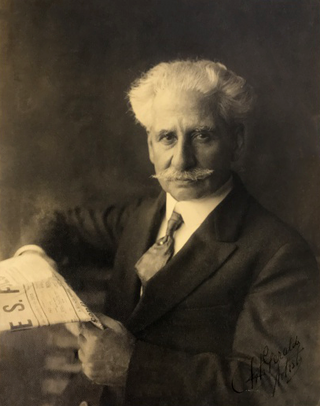 15
Joaquim Francisco de Assis Brasil was a Brazilian lawyer, politician, diplomat, writer and poet. He founded the Liberator Party and was a supporter of republicanism. He served as Governor of Rio...
15
Joaquim Francisco de Assis Brasil was a Brazilian lawyer, politician, diplomat, writer and poet. He founded the Liberator Party and was a supporter of republicanism. He served as Governor of Rio...
Casimiro de Abreu
Antônio Carlos Magalhães
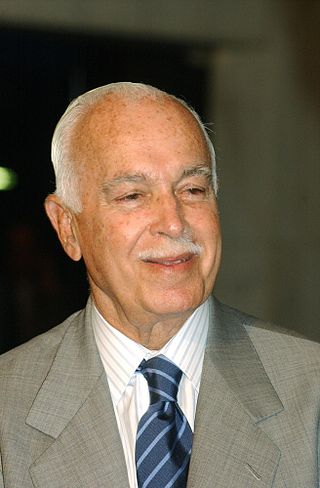 15
Antônio Carlos Peixoto de Magalhães, also known by his initials ACM, was a Brazilian politician. He served as Governor of Bahia three times and represented Bahia in the Senate of Brazil three...
15
Antônio Carlos Peixoto de Magalhães, also known by his initials ACM, was a Brazilian politician. He served as Governor of Bahia three times and represented Bahia in the Senate of Brazil three...
Vasco da Gama
 15
Vasco da Gama, 1st Count of Vidigueira, was a Portuguese explorer and the first European to reach India by sea.
15
Vasco da Gama, 1st Count of Vidigueira, was a Portuguese explorer and the first European to reach India by sea.
Assis Chateaubriand
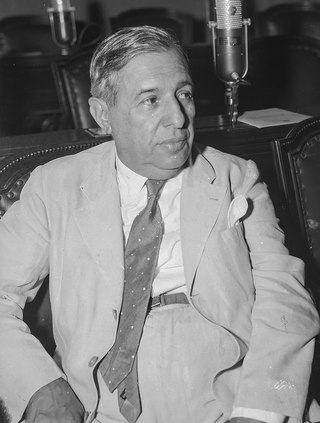 15
Francisco de Assis Chateaubriand Bandeira de Melo, also nicknamed Chatô, was a Brazilian lawyer, journalist, politician and diplomat. He was founder and director of the then main press chain of...
15
Francisco de Assis Chateaubriand Bandeira de Melo, also nicknamed Chatô, was a Brazilian lawyer, journalist, politician and diplomat. He was founder and director of the then main press chain of...
Adhemar de Barros
 15
Adhemar Pereira de Barros was the mayor of São Paulo (1957–1961), and twice elected Governor of São Paulo.
15
Adhemar Pereira de Barros was the mayor of São Paulo (1957–1961), and twice elected Governor of São Paulo.
José Antônio Flores da Cunha
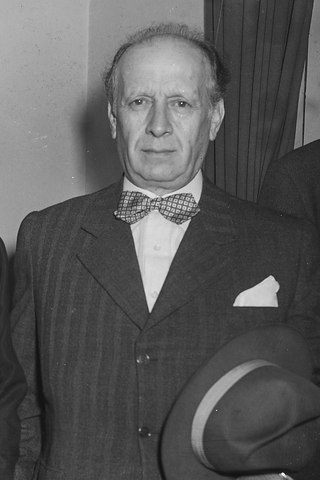 15
José Antônio Flores da Cunha foi um advogado, general e político brasileiro, tendo sido interventor federal e, posteriormente, presidente eleito do estado do Rio Grande do Sul, bem como senador pelo...
15
José Antônio Flores da Cunha foi um advogado, general e político brasileiro, tendo sido interventor federal e, posteriormente, presidente eleito do estado do Rio Grande do Sul, bem como senador pelo...
Elizabeth (biblical figure)
 15
Elizabeth was the mother of John the Baptist, the wife of Zechariah, and maternal aunt of Mary, mother of Jesus, according to the Gospel of Luke and in Islamic tradition. She was past normal...
15
Elizabeth was the mother of John the Baptist, the wife of Zechariah, and maternal aunt of Mary, mother of Jesus, according to the Gospel of Luke and in Islamic tradition. She was past normal...
Antônio Carlos de Mariz e Barros
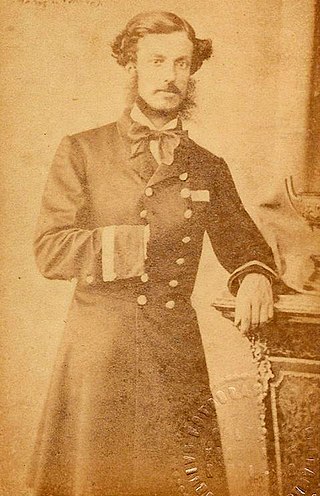 14
Antônio Carlos de Mariz e Barros was a Brazilian soldier, combatant in the Uruguayan Campaign and in the Paraguayan War. Mariz e Barros was the son of chief of squad Joaquim José Inácio, the viscount...
14
Antônio Carlos de Mariz e Barros was a Brazilian soldier, combatant in the Uruguayan Campaign and in the Paraguayan War. Mariz e Barros was the son of chief of squad Joaquim José Inácio, the viscount...
Manuel da Nóbrega
 14
Manuel da Nóbrega, SJ was a Portuguese Jesuit priest and first Provincial of the Society of Jesus in colonial Brazil. Together with José de Anchieta, he was very influential in the early history of...
14
Manuel da Nóbrega, SJ was a Portuguese Jesuit priest and first Provincial of the Society of Jesus in colonial Brazil. Together with José de Anchieta, he was very influential in the early history of...
Olegário Maciel
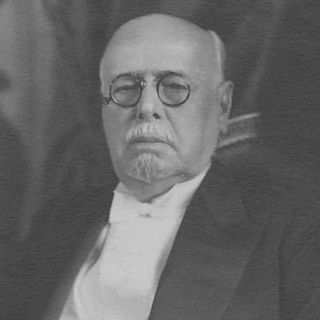 14
Olegário Dias Maciel foi um engenheiro e político brasileiro. Foi um dos líderes da Revolução de 1930 que conduziu Getúlio Vargas ao poder no Brasil.
14
Olegário Dias Maciel foi um engenheiro e político brasileiro. Foi um dos líderes da Revolução de 1930 que conduziu Getúlio Vargas ao poder no Brasil.
Joachim
 14
Joachim was, according to Christianity, the husband of Saint Anne, the father of Mary, mother of Jesus, and the maternal grandfather of Jesus.
14
Joachim was, according to Christianity, the husband of Saint Anne, the father of Mary, mother of Jesus, and the maternal grandfather of Jesus.
John II of Portugal
 14
John II, called the Perfect Prince, was King of Portugal from 1481 until his death in 1495, and also for a brief time in 1477. He is known for re-establishing the power of the Portuguese monarchy,...
14
John II, called the Perfect Prince, was King of Portugal from 1481 until his death in 1495, and also for a brief time in 1477. He is known for re-establishing the power of the Portuguese monarchy,...
Saint Lawrence
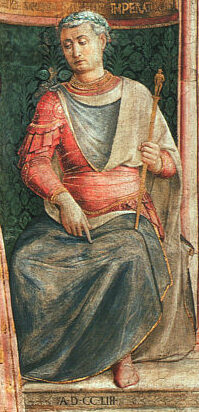 14
Saint Lawrence or Laurence was one of the seven deacons of the city of Rome under Pope Sixtus II who were martyred in the persecution of the Christians that the Roman Emperor Valerian ordered in 258.
14
Saint Lawrence or Laurence was one of the seven deacons of the city of Rome under Pope Sixtus II who were martyred in the persecution of the Christians that the Roman Emperor Valerian ordered in 258.
Coelho Neto
 14
Henrique Maximiano Coelho Neto was a Brazilian writer and politician. He founded and occupied the second chair of the Brazilian Academy of Letters, from 1897 until his death in 1934. He was also the...
14
Henrique Maximiano Coelho Neto was a Brazilian writer and politician. He founded and occupied the second chair of the Brazilian Academy of Letters, from 1897 until his death in 1934. He was also the...
Jorge Lacerda
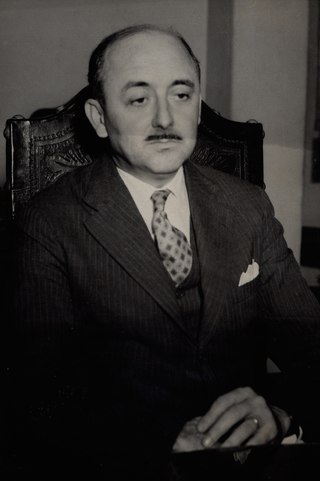 14
Jorge Lacerda foi um político brasileiro, filho de imigrantes gregos. Foi governador de Santa Catarina, de 1956 a 1958.
14
Jorge Lacerda foi um político brasileiro, filho de imigrantes gregos. Foi governador de Santa Catarina, de 1956 a 1958.
Mascarenhas de Morais
 14
João Batista Mascarenhas de Morais was a Brazilian army officer and commander of the Brazilian Expeditionary Force in the Second World War. He was ranked Field Marshal and was the last active...
14
João Batista Mascarenhas de Morais was a Brazilian army officer and commander of the Brazilian Expeditionary Force in the Second World War. He was ranked Field Marshal and was the last active...
Helena, mother of Constantine I
 14
Flavia Julia Helena, also known as Helena of Constantinople and in Christianity as Saint Helena, was an Augusta of the Roman Empire and mother of Emperor Constantine the Great. She was born in the...
14
Flavia Julia Helena, also known as Helena of Constantinople and in Christianity as Saint Helena, was an Augusta of the Roman Empire and mother of Emperor Constantine the Great. She was born in the...
Frei Caneca
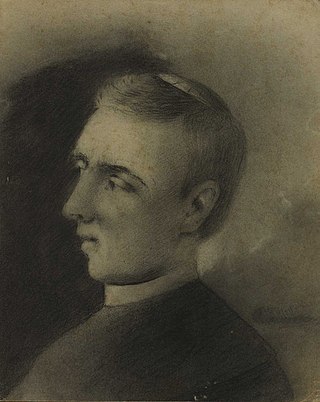 14
Frei Joaquim do Amor Divino Rabelo, the religious name of Joaquim da Silva Rabelo, commonly known as Frei Caneca, was a Brazilian religious leader, politician, and journalist. He was involved in...
14
Frei Joaquim do Amor Divino Rabelo, the religious name of Joaquim da Silva Rabelo, commonly known as Frei Caneca, was a Brazilian religious leader, politician, and journalist. He was involved in...
Tomé de Sousa
 14
Tomé de Sousa (1503–1579) was the first governor-general of the Portuguese colony of Brazil from 1549 until 1553. He was a nobleman and soldier born in Rates, Póvoa de Varzim. Sousa was born a noble...
14
Tomé de Sousa (1503–1579) was the first governor-general of the Portuguese colony of Brazil from 1549 until 1553. He was a nobleman and soldier born in Rates, Póvoa de Varzim. Sousa was born a noble...
Gomes Carneiro
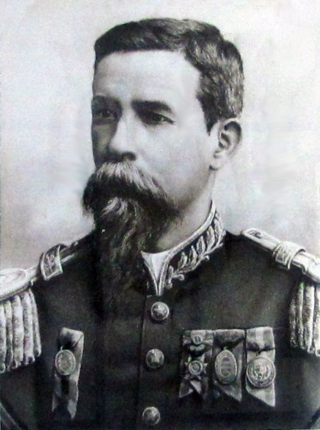 14
Antônio Ernesto Gomes Carneiro was a Brazilian army officer and veteran of the Paraguayan War. Antônio Ernesto Gomes Carneiro fought on the side of the Republican government in the Federalist...
14
Antônio Ernesto Gomes Carneiro was a Brazilian army officer and veteran of the Paraguayan War. Antônio Ernesto Gomes Carneiro fought on the side of the Republican government in the Federalist...
Not found.
 14
14
Fernando Ferrari
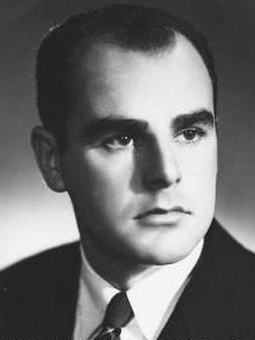 14
Fernando Ferrari foi um economista e político brasileiro. Atuou no Partido Trabalhista Brasileiro (PTB) e no Movimento Trabalhista Renovador (MTR).
14
Fernando Ferrari foi um economista e político brasileiro. Atuou no Partido Trabalhista Brasileiro (PTB) e no Movimento Trabalhista Renovador (MTR).
Pedro Américo
 13
Pedro Américo de Figueiredo e Melo was a Brazilian novelist, poet, scientist, art theorist, essayist, philosopher, politician and professor, but is best remembered as one of the most important...
13
Pedro Américo de Figueiredo e Melo was a Brazilian novelist, poet, scientist, art theorist, essayist, philosopher, politician and professor, but is best remembered as one of the most important...
Antônio Filipe Camarão
 13
Antônio Filipe Camarão was an indigenous soldier from the Potiguara tribe near the Rio Grande do Norte area of the Portuguese colony of Brazil. His original tribal name was Poti, which means "prawn"....
13
Antônio Filipe Camarão was an indigenous soldier from the Potiguara tribe near the Rio Grande do Norte area of the Portuguese colony of Brazil. His original tribal name was Poti, which means "prawn"....
Roberto Silveira
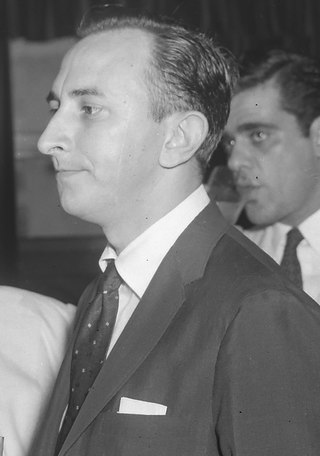 13
Roberto Teixeira da Silveira foi um político brasileiro.
13
Roberto Teixeira da Silveira foi um político brasileiro.
Saint Cajetan
 13
Gaetano dei Conti di Thiene, known as Saint Cajetan, was an Italian Catholic priest and religious reformer, co-founder of the Theatines. He is recognised as a saint in the Catholic Church, and his...
13
Gaetano dei Conti di Thiene, known as Saint Cajetan, was an Italian Catholic priest and religious reformer, co-founder of the Theatines. He is recognised as a saint in the Catholic Church, and his...
Eduardo Gomes
 13
Air Marshal Eduardo Gomes was a Brazilian politician and military figure. He was born in Petrópolis, Rio de Janeiro State, Brazil.
13
Air Marshal Eduardo Gomes was a Brazilian politician and military figure. He was born in Petrópolis, Rio de Janeiro State, Brazil.
Andrew the Apostle
 13
Andrew the Apostle, also called Saint Andrew, was an apostle of Jesus. According to the New Testament, he was a fisherman and one of the Twelve Apostles chosen by Jesus. The title First-Called stems...
13
Andrew the Apostle, also called Saint Andrew, was an apostle of Jesus. According to the New Testament, he was a fisherman and one of the Twelve Apostles chosen by Jesus. The title First-Called stems...
Abilon de Sousa Naves
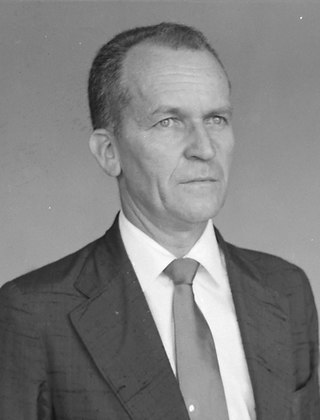 13
Abilon de Souza Naves foi um político brasileiro.
13
Abilon de Souza Naves foi um político brasileiro.
Erico Verissimo
 13
Érico Lopes Verissimo was an important Brazilian writer, born in the State of Rio Grande do Sul.
13
Érico Lopes Verissimo was an important Brazilian writer, born in the State of Rio Grande do Sul.
Louis Pasteur
 12
Louis Pasteur was a French chemist, pharmacist, and microbiologist renowned for his discoveries of the principles of vaccination, microbial fermentation, and pasteurization, the last of which was...
12
Louis Pasteur was a French chemist, pharmacist, and microbiologist renowned for his discoveries of the principles of vaccination, microbial fermentation, and pasteurization, the last of which was...
Gaspar da Silveira Martins
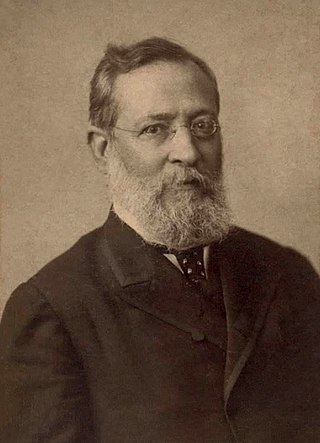 12
Gaspar da Silveira Martins foi um magistrado e político brasileiro.
12
Gaspar da Silveira Martins foi um magistrado e político brasileiro.
Mem de Sá
 12
Mem de Sá was a Governor-General of the Portuguese colony of Brazil from 1557 to 1572. He was born in Coimbra, Kingdom of Portugal, around 1500, the year of discovery of Brazil by a naval fleet...
12
Mem de Sá was a Governor-General of the Portuguese colony of Brazil from 1557 to 1572. He was born in Coimbra, Kingdom of Portugal, around 1500, the year of discovery of Brazil by a naval fleet...
Epitácio Pessoa
 12
Epitácio Lindolfo da Silva Pessoa was a Brazilian politician and jurist who served as 11th president of Brazil between 1919 and 1922, when Rodrigues Alves was unable to take office due to illness,...
12
Epitácio Lindolfo da Silva Pessoa was a Brazilian politician and jurist who served as 11th president of Brazil between 1919 and 1922, when Rodrigues Alves was unable to take office due to illness,...
Graciliano Ramos
 12
Graciliano Ramos de Oliveira was a Brazilian modernist writer, politician and journalist. He is known worldwide for his portrayal of the precarious situation of the poor inhabitants of the Brazilian...
12
Graciliano Ramos de Oliveira was a Brazilian modernist writer, politician and journalist. He is known worldwide for his portrayal of the precarious situation of the poor inhabitants of the Brazilian...
Agamenon Magalhães
 12
Agamenon Sérgio de Godoy Magalhães foi um promotor de direito, geógrafo, professor e político brasileiro; deputado estadual (1918), federal, governador de estado e ministro.
12
Agamenon Sérgio de Godoy Magalhães foi um promotor de direito, geógrafo, professor e político brasileiro; deputado estadual (1918), federal, governador de estado e ministro.
Saint Nicholas
 12
Saint Nicholas of Myra, also known as Nicholas of Bari, was an early Christian bishop of Greek descent from the maritime city of Patara in Anatolia during the time of the Roman Empire. Because of the...
12
Saint Nicholas of Myra, also known as Nicholas of Bari, was an early Christian bishop of Greek descent from the maritime city of Patara in Anatolia during the time of the Roman Empire. Because of the...
Alberto Torres
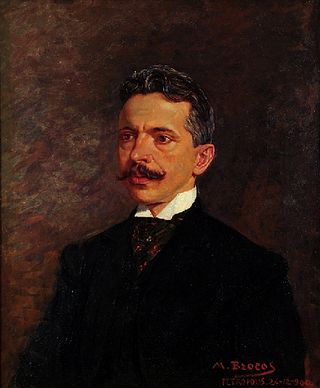 12
Alberto Torres was a politician and a Brazilian social thinker who was concerned about national unity and the organization of the society of Brazil.
12
Alberto Torres was a politician and a Brazilian social thinker who was concerned about national unity and the organization of the society of Brazil.
Ernâni do Amaral Peixoto
 12
Ernâni do Amaral Peixoto, ou simplesmente Amaral Peixoto, foi um militar e político brasileiro.
12
Ernâni do Amaral Peixoto, ou simplesmente Amaral Peixoto, foi um militar e político brasileiro.
Diogo Feijó
 12
Diogo Antônio Feijó was a Brazilian politician and Catholic priest. He was the regent of the Empire of Brazil from October 1835 to September 1837. Aside from members of the Imperial family, he was...
12
Diogo Antônio Feijó was a Brazilian politician and Catholic priest. He was the regent of the Empire of Brazil from October 1835 to September 1837. Aside from members of the Imperial family, he was...
Augustine of Hippo
 12
Augustine of Hippo, also known as Saint Augustine, was a theologian and philosopher of Berber origin and the bishop of Hippo Regius in Numidia, Roman North Africa. His writings influenced the...
12
Augustine of Hippo, also known as Saint Augustine, was a theologian and philosopher of Berber origin and the bishop of Hippo Regius in Numidia, Roman North Africa. His writings influenced the...
Carlos Sampaio Garrido
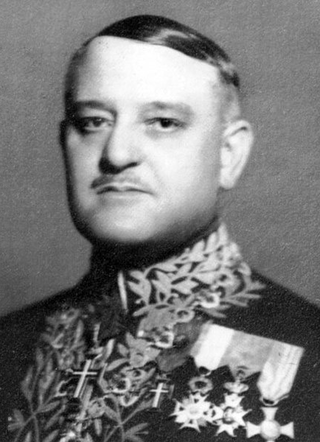 12
Carlos de Almeida Afonseca Sampaio Garrido was a Portuguese diplomat credited with saving the lives of approximately 1,000 Jews in Nazi-occupied Hungary while serving as Portugal's ambassador in...
12
Carlos de Almeida Afonseca Sampaio Garrido was a Portuguese diplomat credited with saving the lives of approximately 1,000 Jews in Nazi-occupied Hungary while serving as Portugal's ambassador in...
Saint Dominic
 12
Saint Dominic,, also known as Dominic de Guzmán, was a Castilian Catholic priest and the founder of the Dominican Order. He is the patron saint of astronomers and natural scientists, and he and his...
12
Saint Dominic,, also known as Dominic de Guzmán, was a Castilian Catholic priest and the founder of the Dominican Order. He is the patron saint of astronomers and natural scientists, and he and his...
Luke the Evangelist
 12
Luke the Evangelist is one of the Four Evangelists—the four traditionally ascribed authors of the canonical gospels. The Early Church Fathers ascribed to him authorship of both the Gospel of Luke and...
12
Luke the Evangelist is one of the Four Evangelists—the four traditionally ascribed authors of the canonical gospels. The Early Church Fathers ascribed to him authorship of both the Gospel of Luke and...
Venâncio de Oliveira Aires
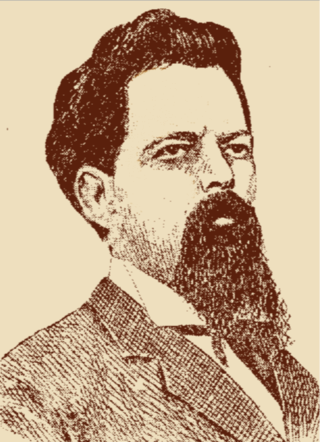 12
Venâncio de Oliveira Aires foi um jornalista brasileiro e precursor das ideias republicanas e abolicionistas. Com Moreira da Silva, fundou o primeiro jornal de Itapetininga, O Município (1873).
12
Venâncio de Oliveira Aires foi um jornalista brasileiro e precursor das ideias republicanas e abolicionistas. Com Moreira da Silva, fundou o primeiro jornal de Itapetininga, O Município (1873).
Hermes da Fonseca
 12
Hermes Rodrigues da Fonseca was a Brazilian field marshal and politician who served as the eighth president of Brazil between 1910 and 1914. He was a nephew of marshal Deodoro da Fonseca, the first...
12
Hermes Rodrigues da Fonseca was a Brazilian field marshal and politician who served as the eighth president of Brazil between 1910 and 1914. He was a nephew of marshal Deodoro da Fonseca, the first...
Emílio Garrastazu Médici
 12
Emílio Garrastazu Médici was a Brazilian military leader and politician who was the president of Brazil from 1969 to 1974. His authoritarian rule marked the apex of the Brazilian military regime.
12
Emílio Garrastazu Médici was a Brazilian military leader and politician who was the president of Brazil from 1969 to 1974. His authoritarian rule marked the apex of the Brazilian military regime.
Bartolomeu de Gusmão
 11
Bartolomeu Lourenço de Gusmão was a Colonial Brazilian priest and naturalist who was a pioneer of lighter-than-air airship design. He is also one of the main characters in Nobel Prize-winning José...
11
Bartolomeu Lourenço de Gusmão was a Colonial Brazilian priest and naturalist who was a pioneer of lighter-than-air airship design. He is also one of the main characters in Nobel Prize-winning José...
John VI of Portugal
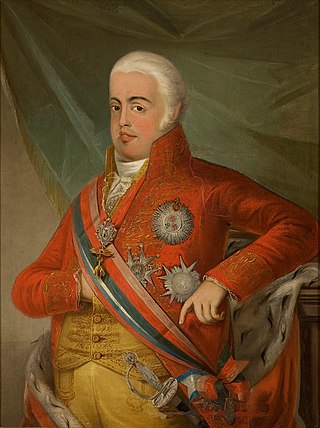 11
Dom John VI, nicknamed "the Clement", was King of the United Kingdom of Portugal, Brazil and the Algarves from 1816 to 1825. Although the United Kingdom of Portugal ceased to exist de facto beginning...
11
Dom John VI, nicknamed "the Clement", was King of the United Kingdom of Portugal, Brazil and the Algarves from 1816 to 1825. Although the United Kingdom of Portugal ceased to exist de facto beginning...
Francisco Glicério
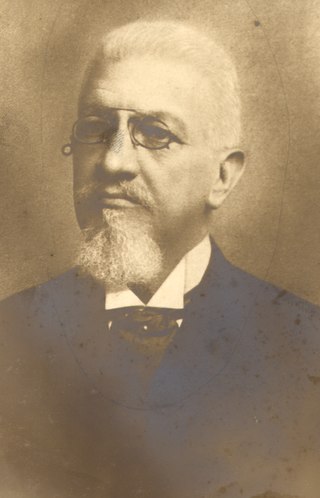 11
Francisco Glicério de Cerqueira Leite foi um político brasileiro. Destacou-se como republicano no fim do século XIX.
11
Francisco Glicério de Cerqueira Leite foi um político brasileiro. Destacou-se como republicano no fim do século XIX.
Antônio Carlos Ribeiro de Andrada (IV)
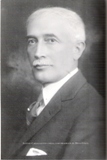 11
Antônio Carlos Ribeiro de Andrada foi um político brasileiro, prefeito de Belo Horizonte, presidente da Câmara dos Deputados do Brasil, senador da República, presidente da Assembleia Nacional...
11
Antônio Carlos Ribeiro de Andrada foi um político brasileiro, prefeito de Belo Horizonte, presidente da Câmara dos Deputados do Brasil, senador da República, presidente da Assembleia Nacional...
Saint Barbara
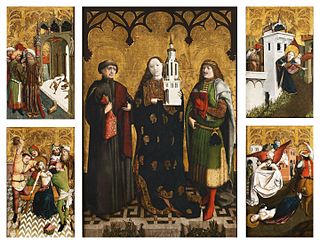 11
Saint Barbara, known in the Eastern Orthodox Church as the Great Martyr Barbara, was an early Christian Greek saint and martyr.
11
Saint Barbara, known in the Eastern Orthodox Church as the Great Martyr Barbara, was an early Christian Greek saint and martyr.
José da Silva Lisboa, Viscount of Cairu
 11
José da Silva Lisboa, first Baron and Viscount of Cairu, was a Brazilian economist, historian, jurist, publicist and politician, active at the time of the Independence of Brazil and credited for the...
11
José da Silva Lisboa, first Baron and Viscount of Cairu, was a Brazilian economist, historian, jurist, publicist and politician, active at the time of the Independence of Brazil and credited for the...
Joaquim Gonçalves Ledo
 11
Joaquim Gonçalves Ledo was a Brazilian journalist and politician. He was active in the freemasonry movement in Brazil. He was one of the leaders of the more liberal and democrat faction during the...
11
Joaquim Gonçalves Ledo was a Brazilian journalist and politician. He was active in the freemasonry movement in Brazil. He was one of the leaders of the more liberal and democrat faction during the...
Gabriel
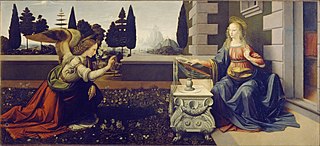 11
In the Abrahamic religions, Gabriel is an archangel with the power to announce God's will to mankind. He is mentioned in the Hebrew Bible, the New Testament, the Quran and the Kitáb-i-Aqdas. Many...
11
In the Abrahamic religions, Gabriel is an archangel with the power to announce God's will to mankind. He is mentioned in the Hebrew Bible, the New Testament, the Quran and the Kitáb-i-Aqdas. Many...
Ary Barroso
 11
Ary Evangelista de Resende Barroso was a Brazilian composer, pianist, soccer commentator, and talent-show host on radio and TV. He was one of Brazil's most successful songwriters in the first half of...
11
Ary Evangelista de Resende Barroso was a Brazilian composer, pianist, soccer commentator, and talent-show host on radio and TV. He was one of Brazil's most successful songwriters in the first half of...
Melvin Jones (Lions Club)
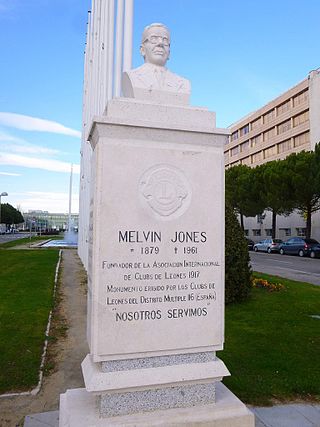 11
Melvin Jones was the founder and secretary-treasurer of Lions Clubs International.
11
Melvin Jones was the founder and secretary-treasurer of Lions Clubs International.
Amador Bueno
 11
Amador Bueno was a landowner and colonial administrator of the Captaincy of São Vicente.
11
Amador Bueno was a landowner and colonial administrator of the Captaincy of São Vicente.
João Goulart
 10
João Belchior Marques Goulart, commonly known as Jango, was a Brazilian politician who served as the 24th president of Brazil until a military coup d'état deposed him on 1 April 1964. He was...
10
João Belchior Marques Goulart, commonly known as Jango, was a Brazilian politician who served as the 24th president of Brazil until a military coup d'état deposed him on 1 April 1964. He was...
Fagundes Varela
 10
Luís Nicolau Fagundes Varela was a Brazilian Romantic poet, adept of the "Ultra-Romanticism" movement. He is patron of the 11th chair of the Brazilian Academy of Letters.
10
Luís Nicolau Fagundes Varela was a Brazilian Romantic poet, adept of the "Ultra-Romanticism" movement. He is patron of the 11th chair of the Brazilian Academy of Letters.
José Vicente Faria Lima
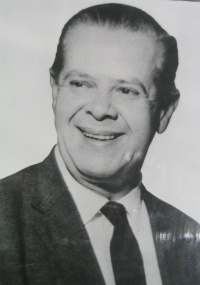 10
José Vicente de Faria Lima was a Brazilian military engineer and later politician.
10
José Vicente de Faria Lima was a Brazilian military engineer and later politician.
Jerônymo Monteiro
 10
Jerônymo Monteiro, de nome completo Jerônymo Barbosa Monteiro, foi um jornalista e um dos primeiros escritores brasileiros de ficção científica.
10
Jerônymo Monteiro, de nome completo Jerônymo Barbosa Monteiro, foi um jornalista e um dos primeiros escritores brasileiros de ficção científica.
Alfredo d'Escragnolle Taunay, Viscount of Taunay
 10
Alfredo Maria Adriano d'Escragnolle Taunay, Viscount of Taunay, was a Brazilian writer, musician, professor, military engineer, historian, politician, sociologist and nobleman. He is famous for the...
10
Alfredo Maria Adriano d'Escragnolle Taunay, Viscount of Taunay, was a Brazilian writer, musician, professor, military engineer, historian, politician, sociologist and nobleman. He is famous for the...
Lauro Müller
 10
Lauro Severiano Müller was a Brazilian politician, diplomat, and military engineer. Responsible for the transition of Santa Catarina from a province to a state, he is also recognised as one of those...
10
Lauro Severiano Müller was a Brazilian politician, diplomat, and military engineer. Responsible for the transition of Santa Catarina from a province to a state, he is also recognised as one of those...
Bernardino José de Campos Júnior
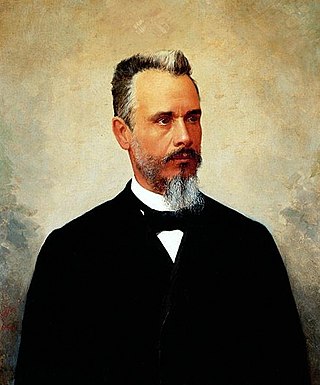 10
Bernardino José de Campos Júnior was a Brazilian politician. He was governor of São Paulo from 23 August 1892 to 15 April 1896 and 3 July 1902 to 1 May 1904.
10
Bernardino José de Campos Júnior was a Brazilian politician. He was governor of São Paulo from 23 August 1892 to 15 April 1896 and 3 July 1902 to 1 May 1904.
João Ramalho
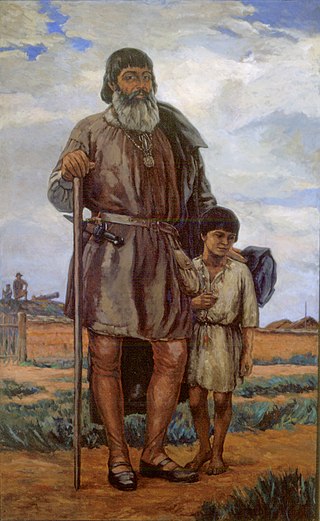 10
João Ramalho (1493–1582) was a Portuguese explorer and adventurer known as the first bandeirante. He lived much of his life among Tupiniquim natives in Brazil after he arrived there in 1515. He even...
10
João Ramalho (1493–1582) was a Portuguese explorer and adventurer known as the first bandeirante. He lived much of his life among Tupiniquim natives in Brazil after he arrived there in 1515. He even...
Armando de Sales Oliveira
 10
Armando de Sales Oliveira was a Brazilian politician. He was born and died in São Paulo.
10
Armando de Sales Oliveira was a Brazilian politician. He was born and died in São Paulo.
Saint Roch
 10
Roch, also called Rock in English, was a Majorcan Catholic confessor whose death is commemorated on 16 August and 9 September in Italy; he was especially invoked against the plague. He has the...
10
Roch, also called Rock in English, was a Majorcan Catholic confessor whose death is commemorated on 16 August and 9 September in Italy; he was especially invoked against the plague. He has the...
Jorge Amado
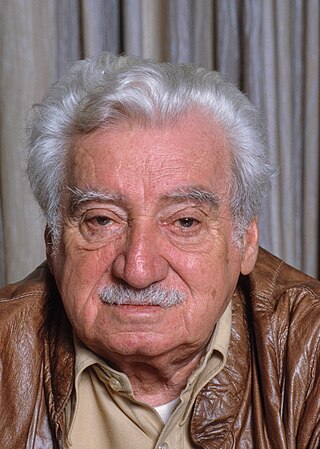 10
Jorge Amado was a Brazilian writer of the modernist school. He remains the best-known of modern Brazilian writers, with his work having been translated into some 49 languages and popularized in film,...
10
Jorge Amado was a Brazilian writer of the modernist school. He remains the best-known of modern Brazilian writers, with his work having been translated into some 49 languages and popularized in film,...
Manuel Buarque de Macedo
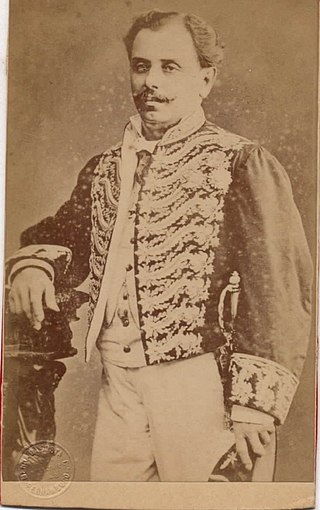 9
Manuel Buarque de Macedo foi um engenheiro, jornalista, político, estadista, orador e polemista brasileiro.
9
Manuel Buarque de Macedo foi um engenheiro, jornalista, político, estadista, orador e polemista brasileiro.
Líbero Badaró
 9
Giovanni Battista Líbero Badaró was an Italian-born Brazilian physician, botanist, journalist and politician.
9
Giovanni Battista Líbero Badaró was an Italian-born Brazilian physician, botanist, journalist and politician.
Miguel Couto
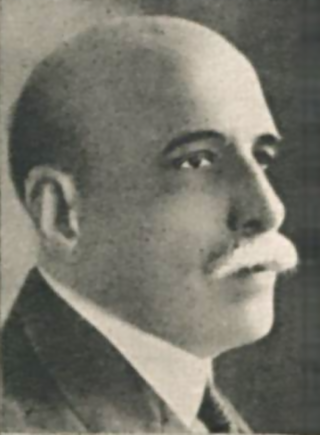 9
Miguel Couto was a Brazilian educationist, politician and a member of the Brazilian Academy of Letters. He was born Miguel de Oliveira Couto in the city of Rio de Janeiro, on May 1, 1864. He was the...
9
Miguel Couto was a Brazilian educationist, politician and a member of the Brazilian Academy of Letters. He was born Miguel de Oliveira Couto in the city of Rio de Janeiro, on May 1, 1864. He was the...
Pedro de Toledo
 9
Pedro de Toledo may refer to:
9
Pedro de Toledo may refer to:
Manuel de Cerqueira Daltro Filho
 9
Manuel de Cerqueira Daltro Filho foi um militar brasileiro, tendo governado os estados de São Paulo e Rio Grande do Sul por períodos breves, na condição de interventor federal.
9
Manuel de Cerqueira Daltro Filho foi um militar brasileiro, tendo governado os estados de São Paulo e Rio Grande do Sul por períodos breves, na condição de interventor federal.
André Vidal de Negreiros
 9
André Vidal de Negreiros was a Portuguese colonial governor and military man born in the then colony of Brazil, known mainly for being one of the leaders of the Insurrection of Pernambuco, also known...
9
André Vidal de Negreiros was a Portuguese colonial governor and military man born in the then colony of Brazil, known mainly for being one of the leaders of the Insurrection of Pernambuco, also known...
Maria Quitéria
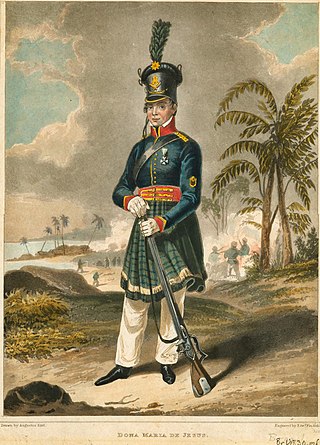 9
Maria Quitéria was a Brazilian lieutenant and national heroine. She served in the Brazilian War of Independence in 1822–23 dressed as a man. She was promoted to cadet and Lieutenant and decorated...
9
Maria Quitéria was a Brazilian lieutenant and national heroine. She served in the Brazilian War of Independence in 1822–23 dressed as a man. She was promoted to cadet and Lieutenant and decorated...
Anthony the Great
 9
Anthony the Great was a Christian monk from Egypt, revered since his death as a saint. He is distinguished from other saints named Anthony, such as Anthony of Padua, by various epithets: Anthony of...
9
Anthony the Great was a Christian monk from Egypt, revered since his death as a saint. He is distinguished from other saints named Anthony, such as Anthony of Padua, by various epithets: Anthony of...
Caramuru
 9
Caramuru was the Tupi name of the Portuguese colonist Diogo Álvares Correia, who is notable for being the first European to establish contact with the native Tupinambá population in modern-day Brazil...
9
Caramuru was the Tupi name of the Portuguese colonist Diogo Álvares Correia, who is notable for being the first European to establish contact with the native Tupinambá population in modern-day Brazil...
Xingu peoples
 9
The Xingu are an indigenous people of Brazil living near the Xingu River. They have many cultural similarities despite their different ethnicity. Xingu people represent fifteen tribes and all four of...
9
The Xingu are an indigenous people of Brazil living near the Xingu River. They have many cultural similarities despite their different ethnicity. Xingu people represent fifteen tribes and all four of...
João Maurício Vanderlei, Baron of Cotegipe
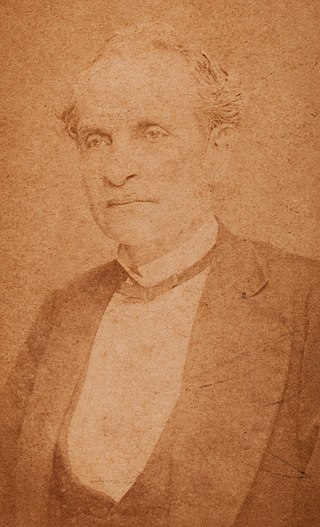 9
João Maurício Vanderlei or Wanderley, first and only baron of Cotegipe, was a Brazilian magistrate and politician of the Conservative Party.
9
João Maurício Vanderlei or Wanderley, first and only baron of Cotegipe, was a Brazilian magistrate and politician of the Conservative Party.
Magalhães Pinto
 9
José de Magalhães Pinto was a Brazilian politician and banker.
9
José de Magalhães Pinto was a Brazilian politician and banker.
Teófilo Ottoni
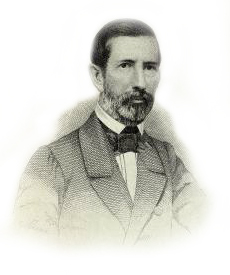 9
Teófilo Benedito Ottoni foi um jornalista, comerciante, político e empresário brasileiro.
9
Teófilo Benedito Ottoni foi um jornalista, comerciante, político e empresário brasileiro.
Xavante
 9
The Xavante are an indigenous people, comprising about 30,000 individuals within the territory of eastern Mato Grosso state in Brazil. They speak the Xavante language, part of the Jê language family.
9
The Xavante are an indigenous people, comprising about 30,000 individuals within the territory of eastern Mato Grosso state in Brazil. They speak the Xavante language, part of the Jê language family.
Frédéric Ozanam
 9
Antoine-Frédéric Ozanam was a French Catholic literary scholar, lawyer, journalist and equal rights advocate. He founded with fellow students the Conference of Charity, later known as the Society of...
9
Antoine-Frédéric Ozanam was a French Catholic literary scholar, lawyer, journalist and equal rights advocate. He founded with fellow students the Conference of Charity, later known as the Society of...
José Francisco Bias Fortes
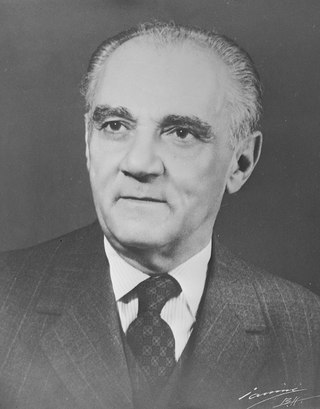 9
José Francisco Bias Fortes foi um político brasileiro. Foi deputado constituinte em 1934 e 1946, prefeito de Barbacena, entre 1937 e 1945, ministro da Justiça no Governo Eurico Dutra, e governador de...
9
José Francisco Bias Fortes foi um político brasileiro. Foi deputado constituinte em 1934 e 1946, prefeito de Barbacena, entre 1937 e 1945, ministro da Justiça no Governo Eurico Dutra, e governador de...
Joaquim Murtinho
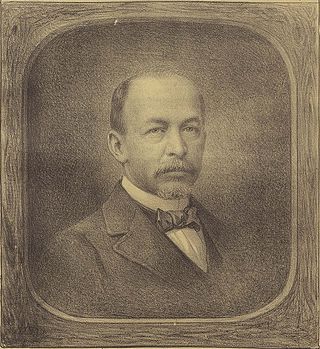 9
Joaquim Duarte Murtinho Nobre foi um médico e político brasileiro liberal. Murtinho foi Ministro da Indústria e Comércio (1899–1902) no governo do presidente Prudente de Morais e também Ministro da...
9
Joaquim Duarte Murtinho Nobre foi um médico e político brasileiro liberal. Murtinho foi Ministro da Indústria e Comércio (1899–1902) no governo do presidente Prudente de Morais e também Ministro da...
Guaycuru peoples
 9
Guaycuru or Guaykuru is a generic term for several ethnic groups indigenous to the Gran Chaco region of South America, speaking related Guaicuruan languages. In the 16th century, the time of first...
9
Guaycuru or Guaykuru is a generic term for several ethnic groups indigenous to the Gran Chaco region of South America, speaking related Guaicuruan languages. In the 16th century, the time of first...
Pedro Lessa
 9
Pedro Augusto Carneiro Lessa foi um jurista, magistrado, político e professor brasileiro.
9
Pedro Augusto Carneiro Lessa foi um jurista, magistrado, político e professor brasileiro.
Saint Cecilia
 9
Saint Cecilia, also spelled Cecelia, was a Roman virgin martyr and is venerated in Catholic, Orthodox, Anglican, and some Lutheran churches, such as the Church of Sweden. She became the patroness of...
9
Saint Cecilia, also spelled Cecelia, was a Roman virgin martyr and is venerated in Catholic, Orthodox, Anglican, and some Lutheran churches, such as the Church of Sweden. She became the patroness of...
Nelson Hungria
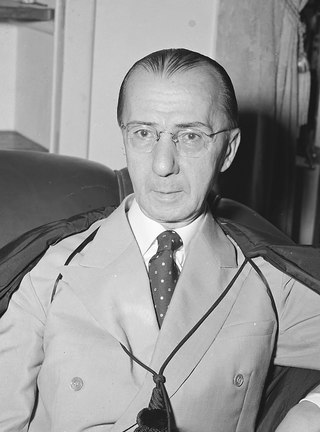 9
Nelson Hungria Hoffbauer foi um dois mais importantes penalistas brasileiros, com diversas obras publicadas ao longo da vida. Foi desembargador do Tribunal de Justiça do antigo Distrito Federal,...
9
Nelson Hungria Hoffbauer foi um dois mais importantes penalistas brasileiros, com diversas obras publicadas ao longo da vida. Foi desembargador do Tribunal de Justiça do antigo Distrito Federal,...
Petrônio Portella
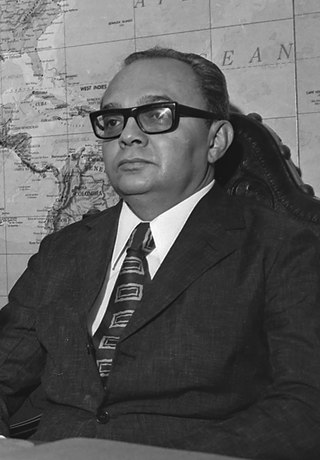 9
Petrônio Portella Nunes foi um advogado e político brasileiro de atuação destacada como fiador da distensão política empreendida pelos presidentes Ernesto Geisel e João Figueiredo. Era tido como a...
9
Petrônio Portella Nunes foi um advogado e político brasileiro de atuação destacada como fiador da distensão política empreendida pelos presidentes Ernesto Geisel e João Figueiredo. Era tido como a...
Graça Aranha
 9
José Pereira da Graça Aranha was a Brazilian writer and diplomat, considered to be a forerunner of the Modernism in Brazil. He was also one of the organizers of the Brazilian Modern Art Week of 1922.
9
José Pereira da Graça Aranha was a Brazilian writer and diplomat, considered to be a forerunner of the Modernism in Brazil. He was also one of the organizers of the Brazilian Modern Art Week of 1922.
Pope John Paul I
 9
Pope John Paul I was head of the Catholic Church and sovereign of the Vatican City from 26 August 1978 until his death 33 days later. His reign is among the shortest in papal history, resulting in...
9
Pope John Paul I was head of the Catholic Church and sovereign of the Vatican City from 26 August 1978 until his death 33 days later. His reign is among the shortest in papal history, resulting in...
João Guimarães Rosa
 8
João Guimarães Rosa was a Brazilian novelist, short story writer, poet and diplomat.
8
João Guimarães Rosa was a Brazilian novelist, short story writer, poet and diplomat.
Vinicius de Moraes
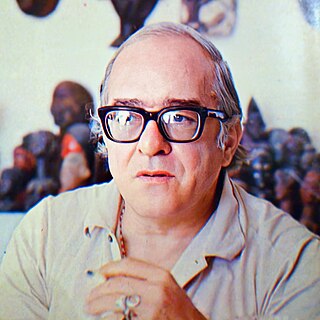 8
Marcus Vinícius da Cruz e Mello Moraes, better known as Vinícius de Moraes and nicknamed O Poetinha, was a Brazilian poet, diplomat, lyricist, essayist, musician, singer, and playwright. With his...
8
Marcus Vinícius da Cruz e Mello Moraes, better known as Vinícius de Moraes and nicknamed O Poetinha, was a Brazilian poet, diplomat, lyricist, essayist, musician, singer, and playwright. With his...
Delfim Moreira
 8
Delfim Moreira da Costa Ribeiro was a Brazilian politician who served as tenth president of Brazil.
8
Delfim Moreira da Costa Ribeiro was a Brazilian politician who served as tenth president of Brazil.
Chico Mendes
 8
Francisco Alves Mendes Filho, better known as Chico Mendes, was a Brazilian rubber tapper, trade union leader and environmentalist. He fought to preserve the Amazon rainforest, and advocated for the...
8
Francisco Alves Mendes Filho, better known as Chico Mendes, was a Brazilian rubber tapper, trade union leader and environmentalist. He fought to preserve the Amazon rainforest, and advocated for the...
Carlos de Campos
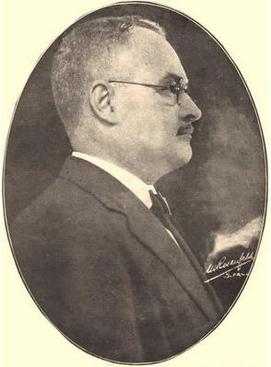 8
Carlos de Campos was a Brazilian politician, and president of the state of São Paulo for several months in 1924.
8
Carlos de Campos was a Brazilian politician, and president of the state of São Paulo for several months in 1924.
Gundisalvus of Amarante
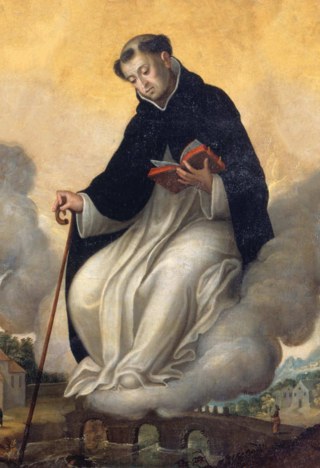 8
Gundisalvus of Amarante, OP was a Portuguese Catholic priest and a professed member from the Order of Preachers. He became a Dominican friar and hermit after his return from a long pilgrimage that...
8
Gundisalvus of Amarante, OP was a Portuguese Catholic priest and a professed member from the Order of Preachers. He became a Dominican friar and hermit after his return from a long pilgrimage that...
David Canabarro
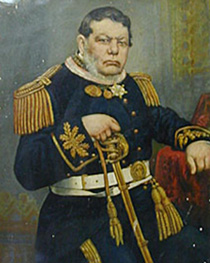 8
David José Martins, known as David Canabarro was a Brazilian general.
8
David José Martins, known as David Canabarro was a Brazilian general.
José de San Martín
 8
José Francisco de San Martín y Matorras, nicknamed "the Liberator of Argentina, Chile and Peru", was an Argentine general and the primary leader of the southern and central parts of South America's...
8
José Francisco de San Martín y Matorras, nicknamed "the Liberator of Argentina, Chile and Peru", was an Argentine general and the primary leader of the southern and central parts of South America's...
Altino Arantes Marques
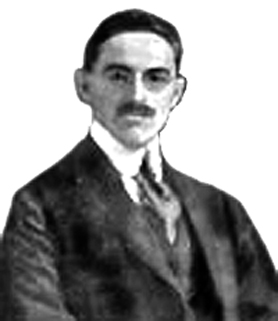 8
Altino Arantes Marques (1876–1965) was a President of São Paulo. He was born in Batatais and graduated from the Law School of São Paulo in 1895. He was a member of the Paulista Republican Party....
8
Altino Arantes Marques (1876–1965) was a President of São Paulo. He was born in Batatais and graduated from the Law School of São Paulo in 1895. He was a member of the Paulista Republican Party....
João da Cruz e Sousa
 8
João da Cruz e Sousa, also referred to simply as Cruz e Sousa, was a Brazilian poet and journalist, famous for being one of the first Brazilian Symbolist poets. A descendant of African slaves, he has...
8
João da Cruz e Sousa, also referred to simply as Cruz e Sousa, was a Brazilian poet and journalist, famous for being one of the first Brazilian Symbolist poets. A descendant of African slaves, he has...
Pauline of the Agonizing Heart of Jesus
 8
Pauline of the Agonizing Heart of Jesus, C.I.I.C., was an immigrant from Austria-Hungary to Brazil, who became the foundress of the Congregation of the Little Sisters of the Immaculate Conception,...
8
Pauline of the Agonizing Heart of Jesus, C.I.I.C., was an immigrant from Austria-Hungary to Brazil, who became the foundress of the Congregation of the Little Sisters of the Immaculate Conception,...
Rocha Pombo
 8
José Francisco da Rocha Pombo (1857–1933) was a Brazilian journalist, professor, poet and historian. He born in Morretes, the son of Manuel Francisco Pombo and Angélica da Rocha. He studied law at...
8
José Francisco da Rocha Pombo (1857–1933) was a Brazilian journalist, professor, poet and historian. He born in Morretes, the son of Manuel Francisco Pombo and Angélica da Rocha. He studied law at...
Antônio da Silva Prado
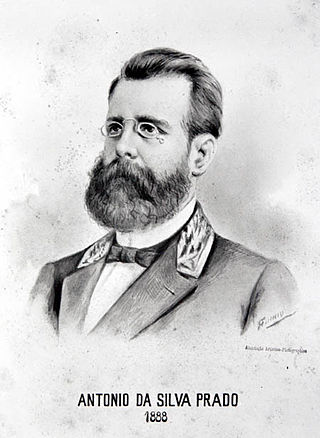 8
Antônio da Silva Prado, ou Conselheiro Antônio Prado foi um advogado, agricultor, político e empresário brasileiro. Esteve diretamente envolvido na elaboração da Lei dos Sexagenários e da Lei Áurea.
8
Antônio da Silva Prado, ou Conselheiro Antônio Prado foi um advogado, agricultor, político e empresário brasileiro. Esteve diretamente envolvido na elaboração da Lei dos Sexagenários e da Lei Áurea.
Bezerra de Menezes
 8
Adolfo Bezerra de Menezes Cavalcanti, mais conhecido como Bezerra de Menezes, foi um médico, militar, escritor, jornalista, político, filantropo, filósofo e expoente da Doutrina Espírita. Recebeu a...
8
Adolfo Bezerra de Menezes Cavalcanti, mais conhecido como Bezerra de Menezes, foi um médico, militar, escritor, jornalista, político, filantropo, filósofo e expoente da Doutrina Espírita. Recebeu a...
Borba Gato
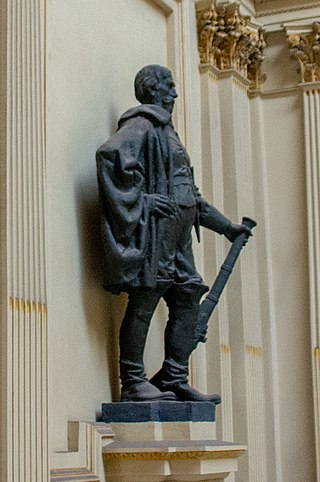 8
Manuel de Borba Gato (1649–1718) was a bandeirante in Colonial Brazil. He began his career with his father-in-law Fernão Dias Pais. When he died in 1718 he held the office of Juiz ordinário of the...
8
Manuel de Borba Gato (1649–1718) was a bandeirante in Colonial Brazil. He began his career with his father-in-law Fernão Dias Pais. When he died in 1718 he held the office of Juiz ordinário of the...
Padre Cícero
 8
Cícero Romão Batista also known as "Padre Cícero", was a Brazilian Roman Catholic priest who became a spiritual leader to the people of Northeastern Brazil. In the course of his ministry, he was...
8
Cícero Romão Batista also known as "Padre Cícero", was a Brazilian Roman Catholic priest who became a spiritual leader to the people of Northeastern Brazil. In the course of his ministry, he was...
Júlio Prestes
 8
Júlio Prestes de Albuquerque was a Brazilian poet, lawyer and politician. He was the last elected President of Brazil of the period known as the Old Republic, but never took office because the...
8
Júlio Prestes de Albuquerque was a Brazilian poet, lawyer and politician. He was the last elected President of Brazil of the period known as the Old Republic, but never took office because the...
Ephigenia of Ethiopia
 8
Saint Ephigenia of Ethiopia or Iphigenia of Ethiopia, also called Iphigenia of Abyssinia, is a Western folk saint whose life is told in the Golden Legend as a virgin converted to Christianity and...
8
Saint Ephigenia of Ethiopia or Iphigenia of Ethiopia, also called Iphigenia of Abyssinia, is a Western folk saint whose life is told in the Golden Legend as a virgin converted to Christianity and...
Luís de Camões
 8
Luís Vaz de Camões, sometimes rendered in English as Camoens or Camoëns, is considered Portugal's and the Portuguese language's greatest poet. His mastery of verse has been compared to that of...
8
Luís Vaz de Camões, sometimes rendered in English as Camoens or Camoëns, is considered Portugal's and the Portuguese language's greatest poet. His mastery of verse has been compared to that of...
Jones dos Santos Neves
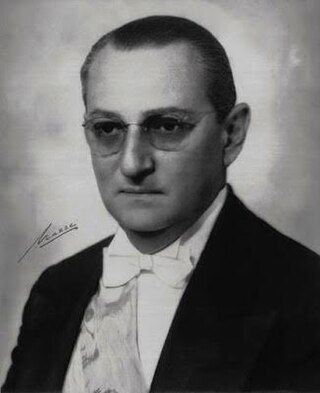 7
Jones dos Santos Neves foi um político brasileiro.
7
Jones dos Santos Neves foi um político brasileiro.
Saint Amaro
 7
According to Catholic tradition, Saint Amaro or Amarus the Pilgrim was an abbot and sailor who it was claimed sailed across the Atlantic Ocean to an earthly paradise. There are two historical figures...
7
According to Catholic tradition, Saint Amaro or Amarus the Pilgrim was an abbot and sailor who it was claimed sailed across the Atlantic Ocean to an earthly paradise. There are two historical figures...
João Fernandes Vieira
 7
João Fernandes Vieira, nascido Francisco de Ornelas, foi um militar e senhor de engenho português, um dos principais líderes nas lutas pela expulsão dos holandeses de Pernambuco.
7
João Fernandes Vieira, nascido Francisco de Ornelas, foi um militar e senhor de engenho português, um dos principais líderes nas lutas pela expulsão dos holandeses de Pernambuco.
Evaristo da Veiga
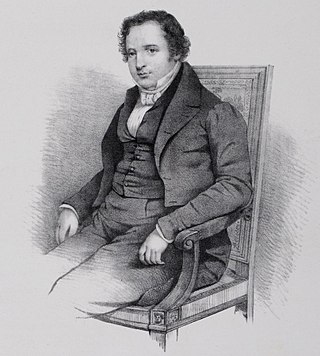 7
Evaristo Ferreira da Veiga e Barros was a Brazilian poet, journalist, politician, and bookseller. Veiga founded one of the first Brazilian newspapers, A Aurora Fluminense, in 1827, during the reign...
7
Evaristo Ferreira da Veiga e Barros was a Brazilian poet, journalist, politician, and bookseller. Veiga founded one of the first Brazilian newspapers, A Aurora Fluminense, in 1827, during the reign...
João Ribeiro (escritor)
 7
João Batista Ribeiro de Andrade Fernandes, mais conhecido como João Ribeiro, foi um jornalista, crítico literário, filólogo, historiador, pintor e tradutor brasileiro. Foi um membro da Academia...
7
João Batista Ribeiro de Andrade Fernandes, mais conhecido como João Ribeiro, foi um jornalista, crítico literário, filólogo, historiador, pintor e tradutor brasileiro. Foi um membro da Academia...
Lima Barreto
 7
Afonso Henriques de Lima Barreto was a Brazilian novelist and journalist. A major figure in Brazilian Pre-Modernism, he is famous for the novel Triste Fim de Policarpo Quaresma, a bitter satire of...
7
Afonso Henriques de Lima Barreto was a Brazilian novelist and journalist. A major figure in Brazilian Pre-Modernism, he is famous for the novel Triste Fim de Policarpo Quaresma, a bitter satire of...
Régis Bittencourt
 7
Edmundo Régis Bittencourt foi um engenheiro civil brasileiro, empreiteiro e ex-presidente do Departamento Nacional de Estradas de Rodagem.
7
Edmundo Régis Bittencourt foi um engenheiro civil brasileiro, empreiteiro e ex-presidente do Departamento Nacional de Estradas de Rodagem.
Gaspar da Madre de Deus
 7
Gaspar Teixeira de Azevedo, melhor conhecido como Frei Gaspar da Madre de Deus, foi um religioso da Ordem de São Bento e historiador brasileiro.
7
Gaspar Teixeira de Azevedo, melhor conhecido como Frei Gaspar da Madre de Deus, foi um religioso da Ordem de São Bento e historiador brasileiro.
Franklin D. Roosevelt
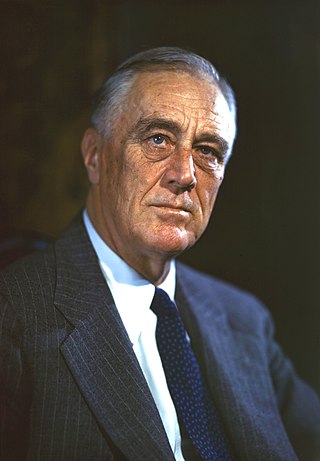 7
Franklin Delano Roosevelt, commonly known by his initials FDR, was an American statesman and politician who served as the 32nd president of the United States from 1933 until his death in 1945. He was...
7
Franklin Delano Roosevelt, commonly known by his initials FDR, was an American statesman and politician who served as the 32nd president of the United States from 1933 until his death in 1945. He was...
Pedro de Araújo Lima, Marquis of Olinda
 7
Pedro de Araújo Lima, Marquis of Olinda was a politician and monarchist of the Empire of Brazil. His long political career spanned the reigns of John VI, Pedro I and Pedro II. He was also one of the...
7
Pedro de Araújo Lima, Marquis of Olinda was a politician and monarchist of the Empire of Brazil. His long political career spanned the reigns of John VI, Pedro I and Pedro II. He was also one of the...
Alexandrino Faria de Alencar
 7
Alexandrino Faria de Alencar foi um almirante e político brasileiro, senador durante a República Velha. Casou com Amália Murray Simões e Santos e teve duas filhas e um filho, o ministro Armando de...
7
Alexandrino Faria de Alencar foi um almirante e político brasileiro, senador durante a República Velha. Casou com Amália Murray Simões e Santos e teve duas filhas e um filho, o ministro Armando de...
Paulo de Frontin
 7
André Gustavo Paulo de Frontin, foi um político e engenheiro brasileiro de origem francesa. Recebeu o título nobiliárquico de Conde de Frontin pela Santa Sé.
7
André Gustavo Paulo de Frontin, foi um político e engenheiro brasileiro de origem francesa. Recebeu o título nobiliárquico de Conde de Frontin pela Santa Sé.
Robert F. Kennedy
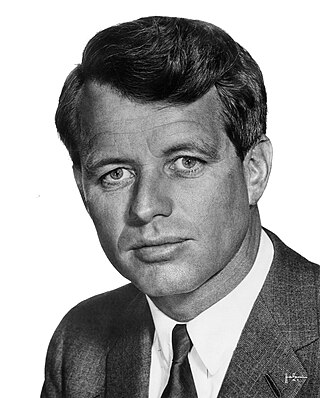 7
Robert Francis Kennedy, also known by his initials RFK, was an American politician and lawyer. He served as the 64th United States attorney general from January 1961 to September 1964, and as a U.S....
7
Robert Francis Kennedy, also known by his initials RFK, was an American politician and lawyer. He served as the 64th United States attorney general from January 1961 to September 1964, and as a U.S....
Júlio Afrânio Peixoto
 7
Júlio Afrânio Peixoto was a Brazilian physician, writer, politician, historian, university president, and pioneering eugenicist. He held many public offices, including Brazilian congressional...
7
Júlio Afrânio Peixoto was a Brazilian physician, writer, politician, historian, university president, and pioneering eugenicist. He held many public offices, including Brazilian congressional...
Lúcio Meira
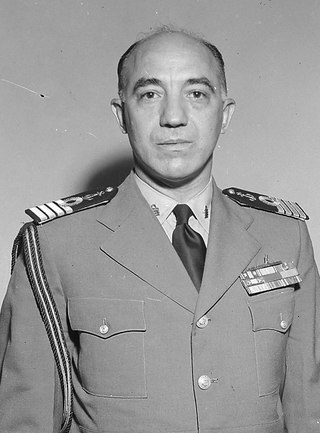 7
Lúcio Martins Meira ou simplesmente Lúcio Meira foi um militar, engenheiro, político e administrador brasileiro.
7
Lúcio Martins Meira ou simplesmente Lúcio Meira foi um militar, engenheiro, político e administrador brasileiro.
Felipe Schmidt
 7
Felipe Schmidt foi um político brasileiro.
7
Felipe Schmidt foi um político brasileiro.
Venceslau Brás
 7
Venceslau Brás Pereira Gomes was a Brazilian politician who served as ninth president of Brazil between 1914 and 1918, during the First Brazilian Republic. Brás was born in Brasópolis, Minas Gerais...
7
Venceslau Brás Pereira Gomes was a Brazilian politician who served as ninth president of Brazil between 1914 and 1918, during the First Brazilian Republic. Brás was born in Brasópolis, Minas Gerais...
Candido Portinari
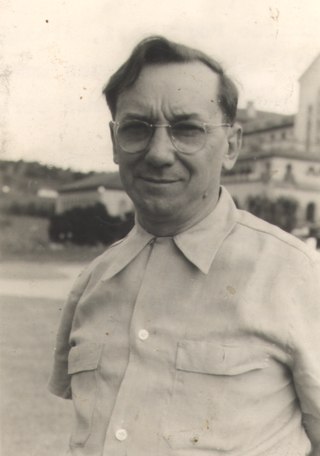 7
Candido Portinari was a Brazilian painter. He is considered one of the most important Brazilian painters as well as a prominent and influential practitioner of the neo-realism style in painting.
7
Candido Portinari was a Brazilian painter. He is considered one of the most important Brazilian painters as well as a prominent and influential practitioner of the neo-realism style in painting.
Ramiro Barcelos
 7
Ramiro Fortes de Barcellos foi um político, escritor, jornalista e médico brasileiro.
7
Ramiro Fortes de Barcellos foi um político, escritor, jornalista e médico brasileiro.
Saint Lucy
 7
Lucia of Syracuse (283–304), also called Saint Lucia was a Roman Christian martyr who died during the Diocletianic Persecution. She is venerated as a saint in Catholic, Anglican, Lutheran, and...
7
Lucia of Syracuse (283–304), also called Saint Lucia was a Roman Christian martyr who died during the Diocletianic Persecution. She is venerated as a saint in Catholic, Anglican, Lutheran, and...
Irineu Bornhausen
 7
Irineu Bornhausen foi um político brasileiro. Foi vereador e prefeito de Itajaí. Foi governador de Santa Catarina, de 31 de janeiro de 1951 a 31 de janeiro de 1956. Foi eleito deputado federal por...
7
Irineu Bornhausen foi um político brasileiro. Foi vereador e prefeito de Itajaí. Foi governador de Santa Catarina, de 31 de janeiro de 1951 a 31 de janeiro de 1956. Foi eleito deputado federal por...
Francisco Alves (singer)
 7
Francisco de Morais Alves, better known as Francisco Alves, Chico Alves or Chico Viola, was a Brazilian singer, one of the most popular in the first half of the 20th century, and considered by many...
7
Francisco de Morais Alves, better known as Francisco Alves, Chico Alves or Chico Viola, was a Brazilian singer, one of the most popular in the first half of the 20th century, and considered by many...
Agnes of Rome
 7
Agnes of Rome is a virgin martyr, venerated as a saint in the Catholic Church, Oriental Orthodox Church and the Eastern Orthodox Church, as well as the Anglican Communion and Lutheran Churches. She...
7
Agnes of Rome is a virgin martyr, venerated as a saint in the Catholic Church, Oriental Orthodox Church and the Eastern Orthodox Church, as well as the Anglican Communion and Lutheran Churches. She...
Lopes Trovão
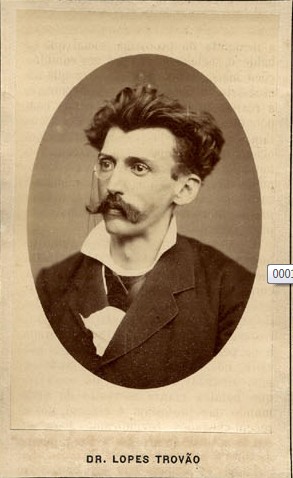 7
José Lopes da Silva Trovão, better known as Lopes Trovão, was a Brazilian medical doctor, journalist, and politician.
7
José Lopes da Silva Trovão, better known as Lopes Trovão, was a Brazilian medical doctor, journalist, and politician.
Guilherme de Almeida
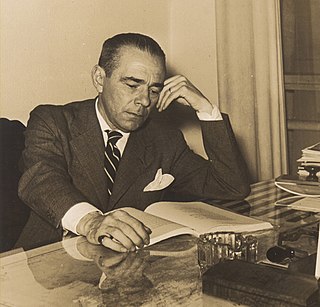 7
Guilherme de Andrade e Almeida was a lawyer, journalist, film critic, poet, essayist and Brazilian translator. He helped popularize the Japanese poem style, haiku, in Brazil.
7
Guilherme de Andrade e Almeida was a lawyer, journalist, film critic, poet, essayist and Brazilian translator. He helped popularize the Japanese poem style, haiku, in Brazil.
Augusto dos Anjos
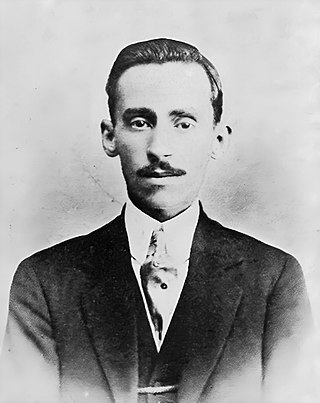 7
Augusto de Carvalho Rodrigues dos Anjos was a Brazilian poet and professor. His poems speak mostly of sickness and death, and are considered the forerunners of Modernism in Brazil.
7
Augusto de Carvalho Rodrigues dos Anjos was a Brazilian poet and professor. His poems speak mostly of sickness and death, and are considered the forerunners of Modernism in Brazil.
Augusto Teixeira de Freitas
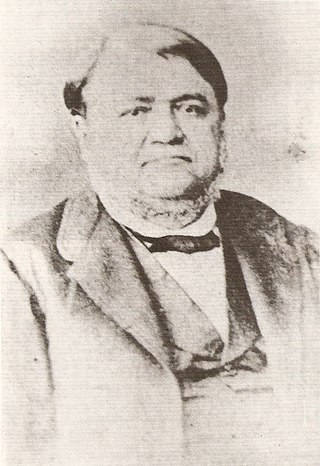 7
Augusto Teixeira de Freitas (1816–1883) was a prominent Brazilian jurist whose prolific writings inspired all South American private law codifications.
7
Augusto Teixeira de Freitas (1816–1883) was a prominent Brazilian jurist whose prolific writings inspired all South American private law codifications.
Alberto Pasqualini
 7
Alberto Pasqualini foi um advogado, professor, sociólogo e político brasileiro; ideólogo e doutrinador trabalhista, foi senador da República pelo PTB. Suas ideias foram incorporadas ao programa...
7
Alberto Pasqualini foi um advogado, professor, sociólogo e político brasileiro; ideólogo e doutrinador trabalhista, foi senador da República pelo PTB. Suas ideias foram incorporadas ao programa...
Guglielmo Marconi
 7
Guglielmo Giovanni Maria Marconi, 1st Marquis of Marconi was an Italian inventor and electrical engineer, known for his creation of a practical radio wave–based wireless telegraph system. This led to...
7
Guglielmo Giovanni Maria Marconi, 1st Marquis of Marconi was an Italian inventor and electrical engineer, known for his creation of a practical radio wave–based wireless telegraph system. This led to...
Clóvis Beviláqua
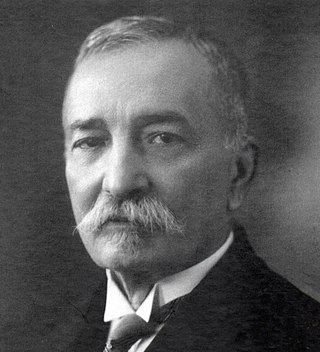 7
Clóvis Beviláqua was a Brazilian jurist, historian and journalist born in Viçosa do Ceará, Ceará, in 1859. Beviláqua was professor of civil and comparative law in Recife. As the author of the...
7
Clóvis Beviláqua was a Brazilian jurist, historian and journalist born in Viçosa do Ceará, Ceará, in 1859. Beviláqua was professor of civil and comparative law in Recife. As the author of the...
Delmiro Augusto da Cruz Gouveia
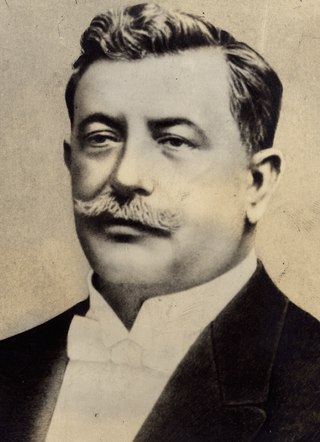 7
Delmiro Augusto da Cruz Gouveia, better known as Delmiro Gouveia, was an industrialist and entrepreneur Brazilianman.
One of the pioneers of the industrialization of Brazil and the use of its...
7
Delmiro Augusto da Cruz Gouveia, better known as Delmiro Gouveia, was an industrialist and entrepreneur Brazilianman.
One of the pioneers of the industrialization of Brazil and the use of its...
Jerome
 7
Jerome, also known as Jerome of Stridon, was an early Christian priest, confessor, theologian, translator, and historian; he is commonly known as Saint Jerome.
7
Jerome, also known as Jerome of Stridon, was an early Christian priest, confessor, theologian, translator, and historian; he is commonly known as Saint Jerome.
Bernard of Clairvaux
 7
Bernard of Clairvaux, O. Cist., venerated as Saint Bernard, was an abbot, mystic, co-founder of the Knights Templar, and a major leader in the reformation of the Benedictine Order through the nascent...
7
Bernard of Clairvaux, O. Cist., venerated as Saint Bernard, was an abbot, mystic, co-founder of the Knights Templar, and a major leader in the reformation of the Benedictine Order through the nascent...
Antônio Moreira César
 7
Antônio Moreira César was a Brazilian army officer who fought on the side of the government forces in the Navy Revolt, the Federalist Revolution and the War of Canudos. He was governor of the state...
7
Antônio Moreira César was a Brazilian army officer who fought on the side of the government forces in the Navy Revolt, the Federalist Revolution and the War of Canudos. He was governor of the state...
Manuel de Sousa Martins
 7
Manuel de Sousa Martins, primeiro barão e visconde com grandeza da Parnaíba, foi um militar e político brasileiro.
7
Manuel de Sousa Martins, primeiro barão e visconde com grandeza da Parnaíba, foi um militar e político brasileiro.
Martin Luther
 7
Martin Luther was a German priest, theologian, author, hymnwriter, professor, and Augustinian friar. Luther was the seminal figure of the Protestant Reformation, and his theological beliefs form the...
7
Martin Luther was a German priest, theologian, author, hymnwriter, professor, and Augustinian friar. Luther was the seminal figure of the Protestant Reformation, and his theological beliefs form the...
Aluizio Santos
 6
Aluizio De Souza Santos, é deputado estadual eleito pelo estado do Maranhão, é filiado ao Partido Liberal (PL).
6
Aluizio De Souza Santos, é deputado estadual eleito pelo estado do Maranhão, é filiado ao Partido Liberal (PL).
Nicolau Pereira de Campos Vergueiro
 6
Nicolau Pereira de Campos Vergueiro, better known as Senator Vergueiro, was a Portuguese-born Brazilian coffee farmer and politician. He was a pioneer in the implementation of free workforce in...
6
Nicolau Pereira de Campos Vergueiro, better known as Senator Vergueiro, was a Portuguese-born Brazilian coffee farmer and politician. He was a pioneer in the implementation of free workforce in...
Vicente de Carvalho
 6
Vicente Augusto de Carvalho foi um advogado, jornalista, político, abolicionista, fazendeiro, deputado, magistrado, poeta e contista brasileiro.
6
Vicente Augusto de Carvalho foi um advogado, jornalista, político, abolicionista, fazendeiro, deputado, magistrado, poeta e contista brasileiro.
Rangel Pestana
 6
Francisco Rangel Pestana foi um jornalista, político e jurista brasileiro. Foi um importante político, tendo participação importante no Partido Republicano e na imprensa, sendo um dos fundadores do...
6
Francisco Rangel Pestana foi um jornalista, político e jurista brasileiro. Foi um importante político, tendo participação importante no Partido Republicano e na imprensa, sendo um dos fundadores do...
Leonel Brizola
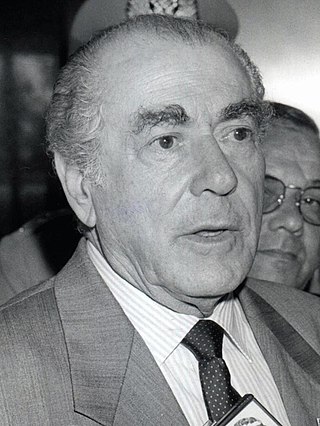 6
Leonel de Moura Brizola was a Brazilian politician. Launched into politics by Brazilian president Getúlio Vargas in the 1930–1950s, Brizola was the only politician to serve as elected governor of two...
6
Leonel de Moura Brizola was a Brazilian politician. Launched into politics by Brazilian president Getúlio Vargas in the 1930–1950s, Brizola was the only politician to serve as elected governor of two...
Francis Xavier
 6
Francis Xavier, SJ, venerated as Saint Francis Xavier, was a Spanish Catholic missionary and saint who co-founded the Society of Jesus and, as a representative of the Portuguese Empire, led the first...
6
Francis Xavier, SJ, venerated as Saint Francis Xavier, was a Spanish Catholic missionary and saint who co-founded the Society of Jesus and, as a representative of the Portuguese Empire, led the first...
Fernando Prestes de Albuquerque
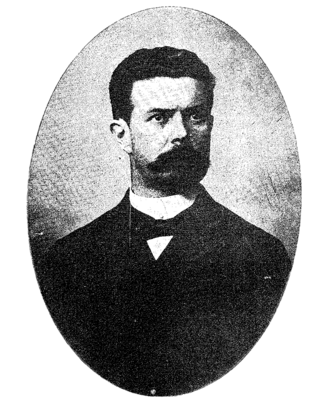 6
Fernando Prestes de Albuquerque foi um agricultor, advogado e político brasileiro. Eleito o quarto presidente do estado de São Paulo, governou de 1898 até 1900. Filho do coronel Manuel Prestes de...
6
Fernando Prestes de Albuquerque foi um agricultor, advogado e político brasileiro. Eleito o quarto presidente do estado de São Paulo, governou de 1898 até 1900. Filho do coronel Manuel Prestes de...
Count Francesco Matarazzo
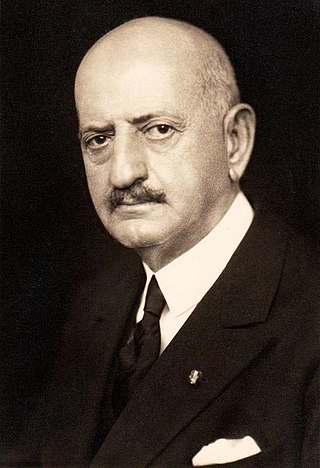 6
Francesco Antonio Maria Matarazzo, Count Matarazzo, was an Italian-born Brazilian businessman who created a large business in South America, particularly in Brazil.
6
Francesco Antonio Maria Matarazzo, Count Matarazzo, was an Italian-born Brazilian businessman who created a large business in South America, particularly in Brazil.
Antônio Álvares da Silva
 6
Antônio Álvares da Silva, o Frei Orlando, foi um religioso e militar brasileiro, que participou da Segunda Guerra Mundial, tendo servido como capitão capelão do Exército Brasileiro. Frei Orlando é...
6
Antônio Álvares da Silva, o Frei Orlando, foi um religioso e militar brasileiro, que participou da Segunda Guerra Mundial, tendo servido como capitão capelão do Exército Brasileiro. Frei Orlando é...
Aristides Lobo
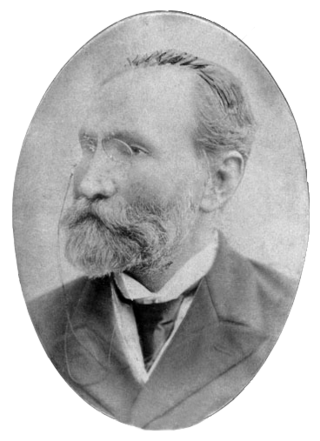 6
Aristides da Silveira Lobo foi um jurista, político e jornalista republicano e abolicionista brasileiro, ao tempo do Império.
6
Aristides da Silveira Lobo foi um jurista, político e jornalista republicano e abolicionista brasileiro, ao tempo do Império.
Luís Gama
 6
Luís Gonzaga Pinto da Gama was a Brazilian rábula, abolitionist, orator, journalist and writer, and the Patron of the abolition of slavery in Brazil.
6
Luís Gonzaga Pinto da Gama was a Brazilian rábula, abolitionist, orator, journalist and writer, and the Patron of the abolition of slavery in Brazil.
Frei Galvão
 6
Anthony of St. Ann Galvão, O.F.M., commonly known in Brazil as Frei Galvão, was a Brazilian friar of the Franciscan Order.
6
Anthony of St. Ann Galvão, O.F.M., commonly known in Brazil as Frei Galvão, was a Brazilian friar of the Franciscan Order.
Augusto Severo de Albuquerque Maranhão
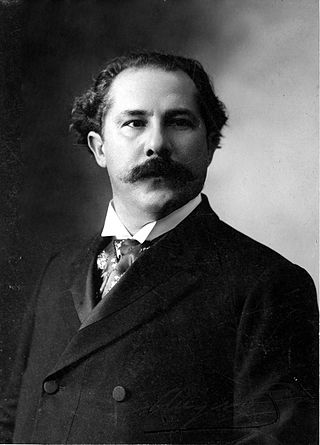 6
Augusto Severo de Albuquerque Maranhão was a Brazilian politician, journalist, inventor and aeronaut.
6
Augusto Severo de Albuquerque Maranhão was a Brazilian politician, journalist, inventor and aeronaut.
Bernardino de Sousa Monteiro
 6
Bernardino de Sousa Monteiro was a Brazilian politician. He was representative on Espirito Santo's State Chamber and on the Brazilian Federal Chamber, Senator of the State of Espirito Santo and,...
6
Bernardino de Sousa Monteiro was a Brazilian politician. He was representative on Espirito Santo's State Chamber and on the Brazilian Federal Chamber, Senator of the State of Espirito Santo and,...
Martim Afonso de Sousa
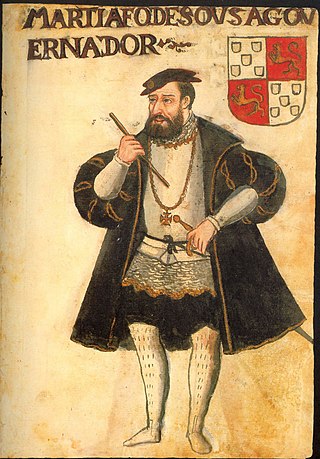 6
Martim Afonso de Sousa was a Portuguese fidalgo, explorer and colonial administrator.
6
Martim Afonso de Sousa was a Portuguese fidalgo, explorer and colonial administrator.
António Ribeiro
 6
Dom António II Ribeiro was a Portuguese cardinal of the Roman Catholic Church, and Patriarch of Lisbon from 1971 until his death in 1998.
6
Dom António II Ribeiro was a Portuguese cardinal of the Roman Catholic Church, and Patriarch of Lisbon from 1971 until his death in 1998.
Pope Leo XIII
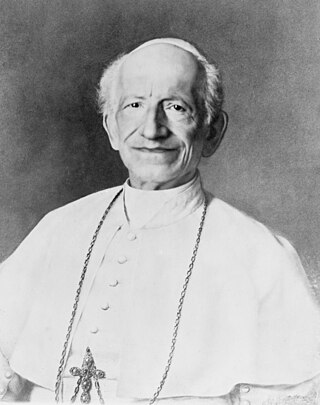 6
Pope Leo XIII was head of the Catholic Church from 20 February 1878 until his death in July 1903. Living until the age of 93, he was the oldest pope, whose age can be validated, holding office, and...
6
Pope Leo XIII was head of the Catholic Church from 20 February 1878 until his death in July 1903. Living until the age of 93, he was the oldest pope, whose age can be validated, holding office, and...
Carlos Chagas
 6
Carlos Justiniano Ribeiro Chagas, or Carlos Chagas, was a Brazilian sanitary physician, scientist, and microbiologist who worked as a clinician and researcher. Most well known for the discovery of an...
6
Carlos Justiniano Ribeiro Chagas, or Carlos Chagas, was a Brazilian sanitary physician, scientist, and microbiologist who worked as a clinician and researcher. Most well known for the discovery of an...
Pandiá Calógeras
 6
João Pandiá Calógeras foi um engenheiro, geólogo e político brasileiro.
6
João Pandiá Calógeras foi um engenheiro, geólogo e político brasileiro.
Israel Pinheiro
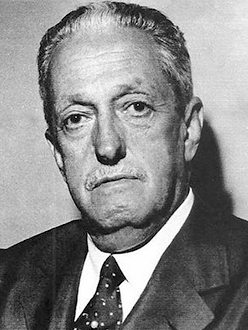 6
Israel Pinheiro da Silva was a Brazilian politician and engineer.
6
Israel Pinheiro da Silva was a Brazilian politician and engineer.
Emílio de Meneses
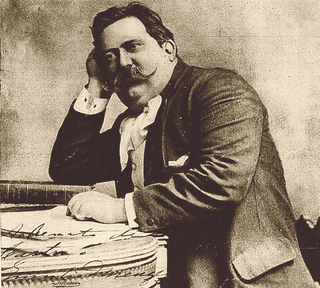 6
Emílio Nunes Correia de Meneses foi um jornalista e poeta parnasiano brasileiro, imortal da Academia Brasileira de Letras e mestre dos sonetos satíricos. Para Glauco Mattoso, o poeta paranaense é o...
6
Emílio Nunes Correia de Meneses foi um jornalista e poeta parnasiano brasileiro, imortal da Academia Brasileira de Letras e mestre dos sonetos satíricos. Para Glauco Mattoso, o poeta paranaense é o...
José Plácido de Castro
 6
José Plácido de Castro was a Brazilian soldier, surveyor, rubber producer and politician who led the armed revolt during the Acre War of 1902–3, when the Republic of Acre broke away from Bolivia. He...
6
José Plácido de Castro was a Brazilian soldier, surveyor, rubber producer and politician who led the armed revolt during the Acre War of 1902–3, when the Republic of Acre broke away from Bolivia. He...
Newton Prado
 6
Newton Prado Lux foi um locutor, escritor e ator brasileiro de rádio, cinema e televisão.
6
Newton Prado Lux foi um locutor, escritor e ator brasileiro de rádio, cinema e televisão.
Catulo da Paixão Cearense
 6
Catulo da Paixão Cearense, o Poeta do Sertão, foi um poeta, teatrólogo, músico e compositor brasileiro. É considerado um dos maiores compositores da história da canção popular brasileira. A data de...
6
Catulo da Paixão Cearense, o Poeta do Sertão, foi um poeta, teatrólogo, músico e compositor brasileiro. É considerado um dos maiores compositores da história da canção popular brasileira. A data de...
Antônio de Sousa Neto
 6
General Antônio de Sousa Neto was a Brazilian military leader of the Riograndense Republic during the Ragamuffin War. On 20 September 1836, Neto declared the independence of the Riograndense Republic.
6
General Antônio de Sousa Neto was a Brazilian military leader of the Riograndense Republic during the Ragamuffin War. On 20 September 1836, Neto declared the independence of the Riograndense Republic.
Carlos Drummond de Andrade
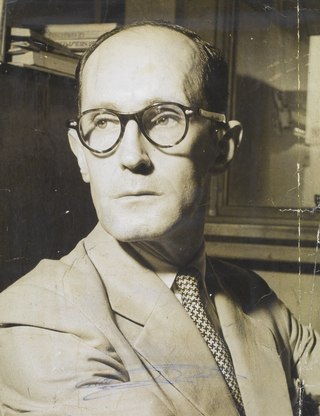 6
Carlos Drummond de Andrade was a Brazilian poet and writer, considered by some as the greatest Brazilian poet of all time.
6
Carlos Drummond de Andrade was a Brazilian poet and writer, considered by some as the greatest Brazilian poet of all time.
Pedro Parigot de Souza
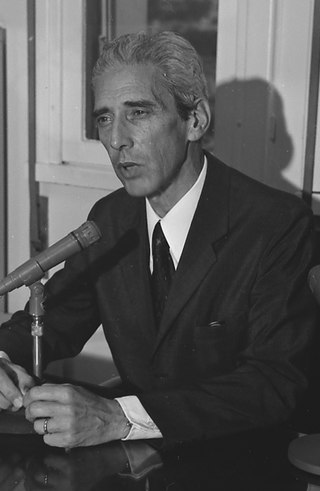 6
Pedro Viriato Parigot de Souza foi um engenheiro civil e político brasileiro.
6
Pedro Viriato Parigot de Souza foi um engenheiro civil e político brasileiro.
Carvalho Pinto
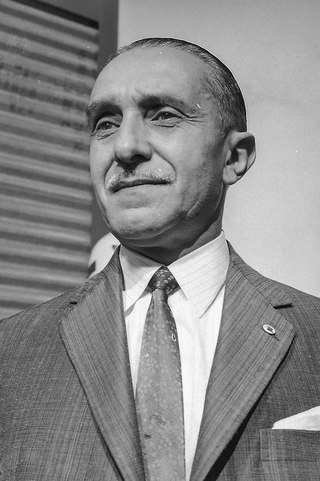 6
Carlos Alberto Alves de Carvalho Pinto foi um político brasileiro e 44.º governador do estado de São Paulo.
6
Carlos Alberto Alves de Carvalho Pinto foi um político brasileiro e 44.º governador do estado de São Paulo.
Afonso Celso, Viscount of Ouro Preto
 6
Afonso Celso de Assis Figueiredo, the Viscount of Ouro Preto was a Brazilian politician, and the last Prime Minister of the Empire of Brazil.
6
Afonso Celso de Assis Figueiredo, the Viscount of Ouro Preto was a Brazilian politician, and the last Prime Minister of the Empire of Brazil.
Benedito Leite (político)
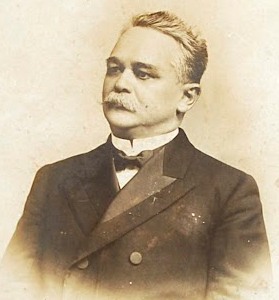 6
Benedito Pereira Leite foi um político, magistrado e jornalista brasileiro.
6
Benedito Pereira Leite foi um político, magistrado e jornalista brasileiro.
Ignatius of Loyola
 6
Ignatius of Loyola, venerated as Saint Ignatius of Loyola, was a Spanish Catholic priest and theologian, who, with six companions, founded the religious order of the Society of Jesus (Jesuits), and...
6
Ignatius of Loyola, venerated as Saint Ignatius of Loyola, was a Spanish Catholic priest and theologian, who, with six companions, founded the religious order of the Society of Jesus (Jesuits), and...
João Ribeiro de Barros
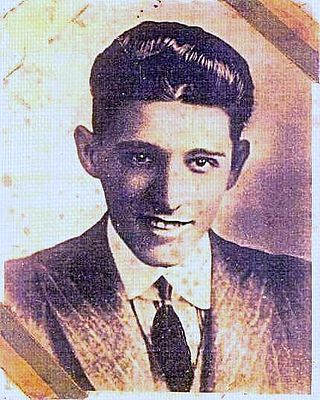 6
João Ribeiro de Barros was the first aviator of the three Americas to make an air crossing from Europe to America, on April 28, 1927, crossing the Atlantic Ocean with the Savoia-Marchetti S.55...
6
João Ribeiro de Barros was the first aviator of the three Americas to make an air crossing from Europe to America, on April 28, 1927, crossing the Atlantic Ocean with the Savoia-Marchetti S.55...
Paulo Freire
 6
Paulo Reglus Neves Freire was a Brazilian educator and philosopher who was a leading advocate of critical pedagogy. His influential work Pedagogy of the Oppressed is generally considered one of the...
6
Paulo Reglus Neves Freire was a Brazilian educator and philosopher who was a leading advocate of critical pedagogy. His influential work Pedagogy of the Oppressed is generally considered one of the...
Vitorino de Brito Freire
 6
Vitorino de Brito Freire was a Brazilian politician and congressman.
6
Vitorino de Brito Freire was a Brazilian politician and congressman.
José Sarney
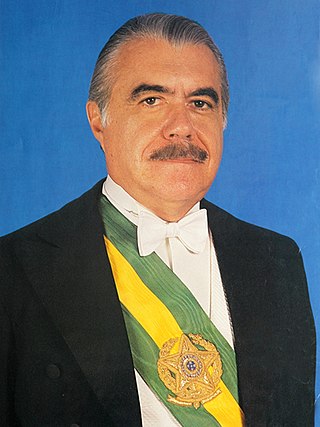 6
José Sarney de Araújo Costa is a Brazilian politician, lawyer, and writer who served as 31st president of Brazil from 1985 to 1990. He briefly served as the 20th vice president of Brazil for a month...
6
José Sarney de Araújo Costa is a Brazilian politician, lawyer, and writer who served as 31st president of Brazil from 1985 to 1990. He briefly served as the 20th vice president of Brazil for a month...
Saint Monica
 5
Monica was an early North African Christian saint and the mother of Augustine of Hippo. She is remembered and honored in the Catholic and Orthodox Churches, albeit on different feast days, for her...
5
Monica was an early North African Christian saint and the mother of Augustine of Hippo. She is remembered and honored in the Catholic and Orthodox Churches, albeit on different feast days, for her...
Francisco Otaviano
 5
Francisco Otaviano de Almeida Rosa was a Brazilian poet, lawyer, diplomat, journalist and politician. He is famous for translating into Portuguese works by famous writers such as Horace, Catullus,...
5
Francisco Otaviano de Almeida Rosa was a Brazilian poet, lawyer, diplomat, journalist and politician. He is famous for translating into Portuguese works by famous writers such as Horace, Catullus,...
Heitor Teixeira Penteado
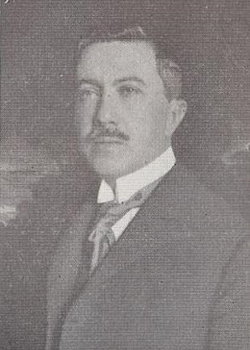 5
Heitor Teixeira Penteado foi um advogado e político brasileiro. Foi vice-presidente de São Paulo na gestão Júlio Prestes e substituía esse quando foi deposto em 24 de outubro de 1930, pela Revolução...
5
Heitor Teixeira Penteado foi um advogado e político brasileiro. Foi vice-presidente de São Paulo na gestão Júlio Prestes e substituía esse quando foi deposto em 24 de outubro de 1930, pela Revolução...
Saldanha da Gama
 5
Luís Filipe de Saldanha da Gama was an admiral of the Brazilian Navy. He led the Revolta da Armada against the First Brazilian Republic alongside Custódio José de Melo and was killed by government...
5
Luís Filipe de Saldanha da Gama was an admiral of the Brazilian Navy. He led the Revolta da Armada against the First Brazilian Republic alongside Custódio José de Melo and was killed by government...
Francisco Sá
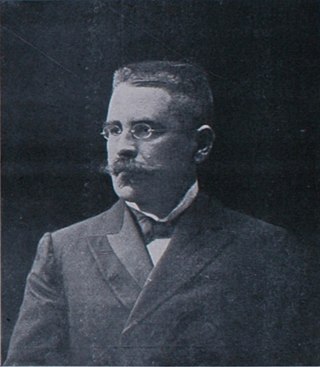 5
Francisco Sá foi um engenheiro, jornalista e político brasileiro.
5
Francisco Sá foi um engenheiro, jornalista e político brasileiro.
Not found.
 5
5
Julio Cesar
 5
Julio César and Júlio César are the terms for Julius Caesar in Spanish and Portuguese languages respectively. They may also refer to:Julio César Salas Municipality, Venezuela
5
Julio César and Júlio César are the terms for Julius Caesar in Spanish and Portuguese languages respectively. They may also refer to:Julio César Salas Municipality, Venezuela
Joaquim Rodrigues Torres, Viscount of Itaboraí
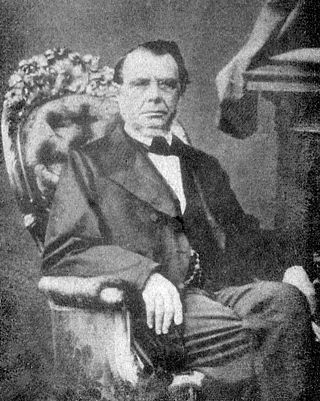 5
Joaquim Rodrigues Torres, the Viscount of Itaboraí was a Brazilian politician and monarchist during the period of the Empire of Brazil (1822–1889). He was the country's Prime Minister from 1868 to...
5
Joaquim Rodrigues Torres, the Viscount of Itaboraí was a Brazilian politician and monarchist during the period of the Empire of Brazil (1822–1889). He was the country's Prime Minister from 1868 to...
Viscount of Pelotas
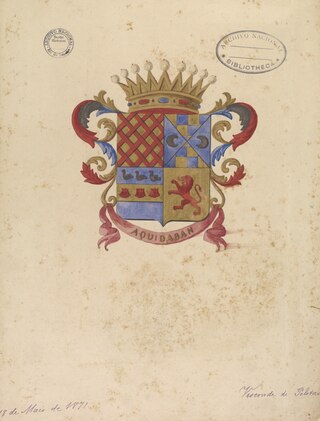 5
The title of Viscount of Pelotas was a Brazilian noble title granted by emperor Pedro I of Brazil to Patrício José Correia da Câmara by decree dated 12 October 1826.
5
The title of Viscount of Pelotas was a Brazilian noble title granted by emperor Pedro I of Brazil to Patrício José Correia da Câmara by decree dated 12 October 1826.
Gago Coutinho
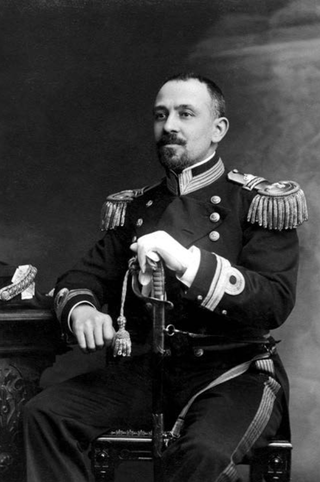 5
Carlos Viegas Gago Coutinho, GCTE, GCC, generally known simply as Gago Coutinho, was a Portuguese geographer, cartographer, naval officer, historian and aviator. An aviation pioneer, Gago Coutinho...
5
Carlos Viegas Gago Coutinho, GCTE, GCC, generally known simply as Gago Coutinho, was a Portuguese geographer, cartographer, naval officer, historian and aviator. An aviation pioneer, Gago Coutinho...
Joaquim José Inácio, Viscount of Inhaúma
 5
Joaquim José Inácio, Viscount of Inhaúma, was a naval officer, politician and monarchist of the Empire of Brazil. He was born in the Kingdom of Portugal, and his family moved to Brazil two years...
5
Joaquim José Inácio, Viscount of Inhaúma, was a naval officer, politician and monarchist of the Empire of Brazil. He was born in the Kingdom of Portugal, and his family moved to Brazil two years...
Marquis of Pombal (title)
 5
Count of Oeiras was a Portuguese title of nobility created by a royal decree, dated July 15, 1759, by King Joseph I of Portugal, and granted to Sebastião José de Carvalho e Melo, head of the...
5
Count of Oeiras was a Portuguese title of nobility created by a royal decree, dated July 15, 1759, by King Joseph I of Portugal, and granted to Sebastião José de Carvalho e Melo, head of the...
Demétrio Nunes Ribeiro
 5
Demétrio Nunes Ribeiro foi um educador, engenheiro, jornalista e político brasileiro, o primeiro Ministro da Agricultura da República do Brasil.
5
Demétrio Nunes Ribeiro foi um educador, engenheiro, jornalista e político brasileiro, o primeiro Ministro da Agricultura da República do Brasil.
José Antônio Pimenta Bueno, Marquis of São Vicente
 5
José Antônio Pimenta Bueno, Marquis of São Vicente, was a Brazilian magistrate, diplomat and politician. He served as Prime Minister of Brazil from 1870 to 1871.
5
José Antônio Pimenta Bueno, Marquis of São Vicente, was a Brazilian magistrate, diplomat and politician. He served as Prime Minister of Brazil from 1870 to 1871.
Cesário Alvim
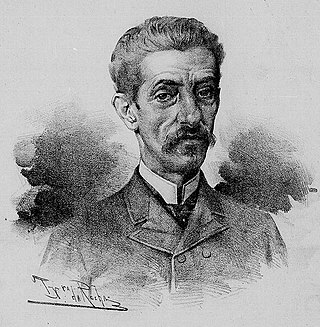 5
José Cesário de Faria Alvim was a Brazilian mayor of the Distrito Federal of Rio de Janeiro and Governor of Minas Gerais.
5
José Cesário de Faria Alvim was a Brazilian mayor of the Distrito Federal of Rio de Janeiro and Governor of Minas Gerais.
Celso Ramos
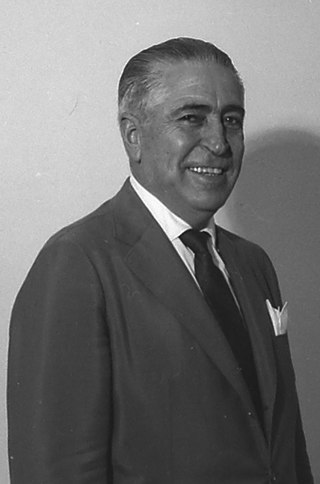 5
Celso Ramos foi um industrial e político brasileiro.
5
Celso Ramos foi um industrial e político brasileiro.
Manuel Marques de Sousa, Count of Porto Alegre
 5
Manuel Marques de Sousa, Count of Porto Alegre, nicknamed "the Gloved Centaur", was an army officer, politician and abolitionist of the Empire of Brazil. Born into a wealthy family of military...
5
Manuel Marques de Sousa, Count of Porto Alegre, nicknamed "the Gloved Centaur", was an army officer, politician and abolitionist of the Empire of Brazil. Born into a wealthy family of military...
Alcindo Guanabara
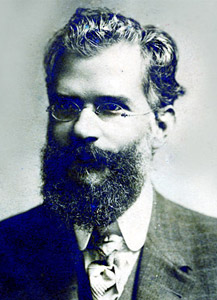 5
Alcindo Guanabara was a Brazilian journalist and politician.
5
Alcindo Guanabara was a Brazilian journalist and politician.
Afonso Cláudio (politician)
 5
Afonso Cláudio de Freitas Rosa, or simply Afonso Cláudio, as he was better known by the people, was, for a brief time, the first president of the Brazilian state of Espírito Santo. He was inaugurated...
5
Afonso Cláudio de Freitas Rosa, or simply Afonso Cláudio, as he was better known by the people, was, for a brief time, the first president of the Brazilian state of Espírito Santo. He was inaugurated...
Antônio de Sena Madureira
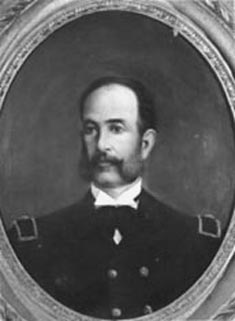 5
Antônio de Sena Madureira (1841–1889) was a lieutenant colonel of the Brazilian army who fought in the Paraguayan War (1864–1870) and ended up becoming a prisoner of war of the Paraguayan troops...
5
Antônio de Sena Madureira (1841–1889) was a lieutenant colonel of the Brazilian army who fought in the Paraguayan War (1864–1870) and ended up becoming a prisoner of war of the Paraguayan troops...
Nestor Gomes
 5
Nestor Gomes was a Brazilian politician. He was state representative in Espirito Santo's Chamber of Representatives, president (governor) of Espirito Santo, and Senator of Espirito Santo in the...
5
Nestor Gomes was a Brazilian politician. He was state representative in Espirito Santo's Chamber of Representatives, president (governor) of Espirito Santo, and Senator of Espirito Santo in the...
Álvares de Azevedo
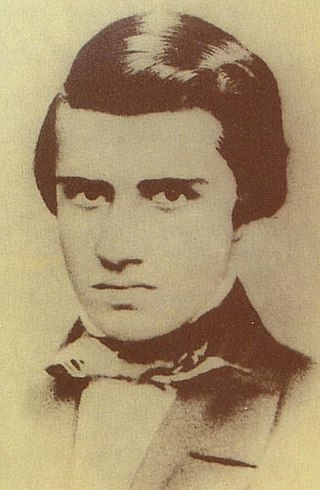 5
Manuel Antônio Álvares de Azevedo, affectionately called "Maneco" by his close friends, relatives and admirers, was a Brazilian Romantic poet, short story writer, playwright and essayist, considered...
5
Manuel Antônio Álvares de Azevedo, affectionately called "Maneco" by his close friends, relatives and admirers, was a Brazilian Romantic poet, short story writer, playwright and essayist, considered...
Luiz Henrique da Silveira
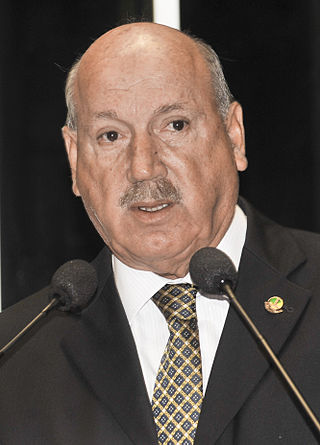 5
Luiz Henrique da Silveira was a Brazilian politician and lawyer. He represented Santa Catarina in the Federal Senate from 2011 to 2015. He was governor of Santa Catarina from 2003 to 2006 and 2007 to...
5
Luiz Henrique da Silveira was a Brazilian politician and lawyer. He represented Santa Catarina in the Federal Senate from 2011 to 2015. He was governor of Santa Catarina from 2003 to 2006 and 2007 to...
José Guimarães
 5
José Guimarães foi um estudante brasileiro, integrante do Colégio Marina Cintra, morto com um tiro na cabeça no dia 3 de outubro 1968, aos 20 anos, durante o episódio conhecido como Batalha da Maria...
5
José Guimarães foi um estudante brasileiro, integrante do Colégio Marina Cintra, morto com um tiro na cabeça no dia 3 de outubro 1968, aos 20 anos, durante o episódio conhecido como Batalha da Maria...
Manuel Pestana Filho
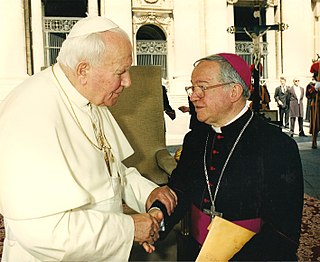 5
Manuel Pestana Filho was the Roman Catholic bishop of the Roman Catholic Diocese of Anápolis, Brazil.
5
Manuel Pestana Filho was the Roman Catholic bishop of the Roman Catholic Diocese of Anápolis, Brazil.
Lauro Sodré
 5
Lauro Nina Sodré e Silva foi militar, político e líder republicano brasileiro.
5
Lauro Nina Sodré e Silva foi militar, político e líder republicano brasileiro.
Gabriel Passos
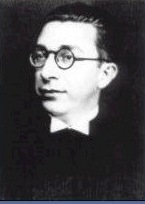 5
Gabriel de Resende Passos foi um advogado, jornalista e político brasileiro. No ramo da política, elegeu-se deputado federal quatro vezes, foi secretário do Interior e Justiça, Procurador-Geral da...
5
Gabriel de Resende Passos foi um advogado, jornalista e político brasileiro. No ramo da política, elegeu-se deputado federal quatro vezes, foi secretário do Interior e Justiça, Procurador-Geral da...
Benedito Calixto
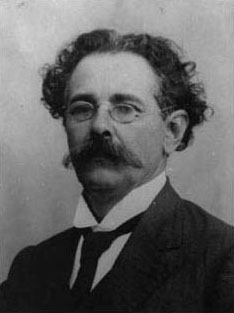 5
Benedito Calixto de Jesus was a Brazilian painter. His works usually depicted figures from Brazil and Brazilian culture, including a famous portrait of the bandeirante Domingos Jorge Velho in 1923,...
5
Benedito Calixto de Jesus was a Brazilian painter. His works usually depicted figures from Brazil and Brazilian culture, including a famous portrait of the bandeirante Domingos Jorge Velho in 1923,...
Saturnino de Brito
 5
Francisco Rodrigues Saturnino de Brito is considered the pioneer of sanitary engineering and environmental engineering in Brazil. He was a hydraulics and sanitation engineer and professor at Federal...
5
Francisco Rodrigues Saturnino de Brito is considered the pioneer of sanitary engineering and environmental engineering in Brazil. He was a hydraulics and sanitation engineer and professor at Federal...
Sílvio Romero
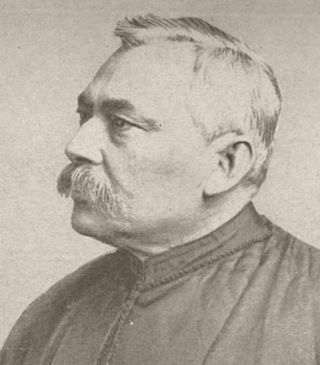 5
Sílvio Vasconcelos da Silveira Ramos Romero was a Brazilian "Condorist" poet, essayist, literary critic, professor, journalist, historian and politician.
5
Sílvio Vasconcelos da Silveira Ramos Romero was a Brazilian "Condorist" poet, essayist, literary critic, professor, journalist, historian and politician.
Fernando Pessoa
 5
Fernando António Nogueira Pessoa was a Portuguese poet, writer, literary critic, translator, publisher, and philosopher, described as one of the most significant literary figures of the 20th century...
5
Fernando António Nogueira Pessoa was a Portuguese poet, writer, literary critic, translator, publisher, and philosopher, described as one of the most significant literary figures of the 20th century...
Nilo Coelho
 5
Nilo de Sousa Coelho GCIH foi um industrial, médico e político brasileiro.
5
Nilo de Sousa Coelho GCIH foi um industrial, médico e político brasileiro.
Francisco Barreto
 5
Francisco Barreto was a Portuguese soldier and explorer. An officer in Morocco during his early life, Barreto sailed to Portuguese India and was eventually appointed viceroy of the colony. After his...
5
Francisco Barreto was a Portuguese soldier and explorer. An officer in Morocco during his early life, Barreto sailed to Portuguese India and was eventually appointed viceroy of the colony. After his...
Gastão Vidigal
 5
Gastão Vidigal foi um advogado e político brasileiro. Foi casado com Maria Amélia Bueno com quem teve seis filhos, Sílvio de Bueno Vidigal, Luís Eulálio de Bueno Vidigal, Álvaro Augusto de Bueno...
5
Gastão Vidigal foi um advogado e político brasileiro. Foi casado com Maria Amélia Bueno com quem teve seis filhos, Sílvio de Bueno Vidigal, Luís Eulálio de Bueno Vidigal, Álvaro Augusto de Bueno...
Alvarenga Peixoto
 5
Inácio José de Alvarenga Peixoto (1744–1793) was a Colonial Brazilian Neoclassic poet and lawyer. He wrote under the pen name Eureste Fenício.
5
Inácio José de Alvarenga Peixoto (1744–1793) was a Colonial Brazilian Neoclassic poet and lawyer. He wrote under the pen name Eureste Fenício.
Aparicio Saravia
 5
Aparicio Saravia da Rosa was a Uruguayan politician and military leader. He was a member of the Uruguayan National Party and was a revolutionary leader against the Uruguayan government.
5
Aparicio Saravia da Rosa was a Uruguayan politician and military leader. He was a member of the Uruguayan National Party and was a revolutionary leader against the Uruguayan government.
Martin Luther King Jr.
 5
Martin Luther King Jr. was an American Christian minister, activist, and political philosopher who was one of the most prominent leaders in the civil rights movement from 1955 until his assassination...
5
Martin Luther King Jr. was an American Christian minister, activist, and political philosopher who was one of the most prominent leaders in the civil rights movement from 1955 until his assassination...
Ana Néri
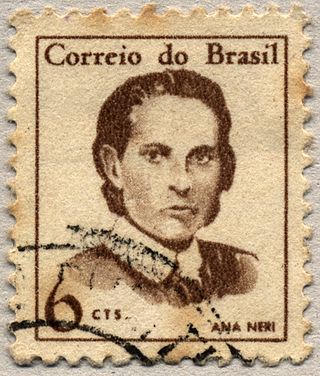 5
Ana Justina Ferreira Néri was a Brazilian nurse, considered the first in her country. She is best known for her volunteer work with the Triple Alliance during the Paraguayan War.
5
Ana Justina Ferreira Néri was a Brazilian nurse, considered the first in her country. She is best known for her volunteer work with the Triple Alliance during the Paraguayan War.
Bento Munhoz da Rocha
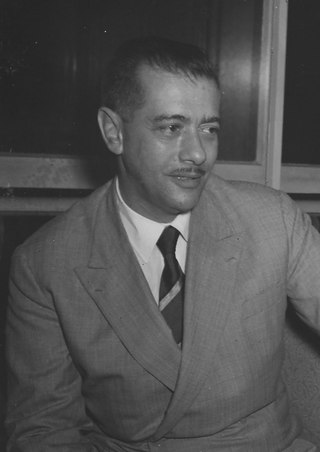 5
Bento Munhoz da Rocha Neto foi um engenheiro, professor, escritor, sociólogo e político brasileiro.
5
Bento Munhoz da Rocha Neto foi um engenheiro, professor, escritor, sociólogo e político brasileiro.
Saint Anne
 5
According to apocrypha, as well as Christian and Islamic tradition, Saint Anne was the mother of Mary, the wife of Joachim and the maternal grandmother of Jesus. Mary's mother is not named in the...
5
According to apocrypha, as well as Christian and Islamic tradition, Saint Anne was the mother of Mary, the wife of Joachim and the maternal grandmother of Jesus. Mary's mother is not named in the...
Leoberto Leal
 5
Leoberto Laus Leal foi um advogado e político brasileiro.
5
Leoberto Laus Leal foi um advogado e político brasileiro.
Francisco Rodrigues da Cruz
 4
Francisco Rodrigues da Cruz, SJ, more commonly known as Father Cruz was a Portuguese Catholic priest. Revered in Portugal for his apostolic fervor and charity, he visited prisons and hospitals in...
4
Francisco Rodrigues da Cruz, SJ, more commonly known as Father Cruz was a Portuguese Catholic priest. Revered in Portugal for his apostolic fervor and charity, he visited prisons and hospitals in...
Cândido Mendes de Almeida
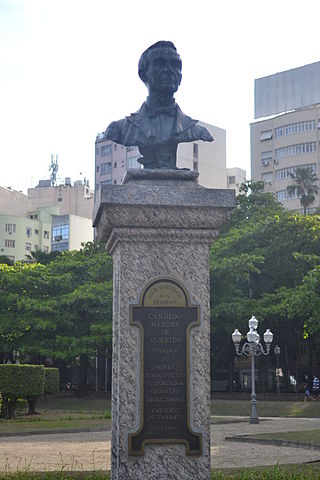 4
Cândido Mendes de Almeida was a Brazilian lawyer, journalist and politician.
4
Cândido Mendes de Almeida was a Brazilian lawyer, journalist and politician.
Afonso Celso de Assis Figueiredo Júnior
 4
Afonso Celso de Assis Figueiredo Júnior, titled Count of Afonso Celso by the Holy See, better known as Afonso Celso, was a teacher, poet, historian and Brazilian politician. He is one of the founders...
4
Afonso Celso de Assis Figueiredo Júnior, titled Count of Afonso Celso by the Holy See, better known as Afonso Celso, was a teacher, poet, historian and Brazilian politician. He is one of the founders...
Woodrow Wilson
 4
Thomas Woodrow Wilson was an American politician and academic who served as the 28th president of the United States from 1913 to 1921. A member of the Democratic Party, Wilson served as the president...
4
Thomas Woodrow Wilson was an American politician and academic who served as the 28th president of the United States from 1913 to 1921. A member of the Democratic Party, Wilson served as the president...
Peter of Alcántara
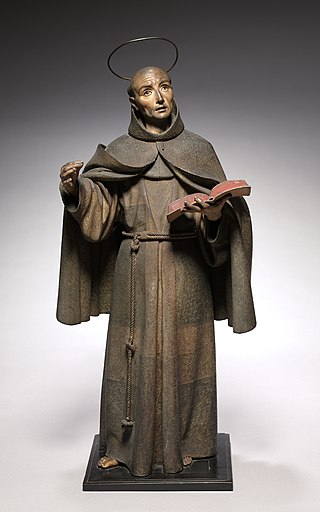 4
Peter of Alcántara, OFM was a Spanish Franciscan friar who was canonized in 1669.
4
Peter of Alcántara, OFM was a Spanish Franciscan friar who was canonized in 1669.
Clement of Rome
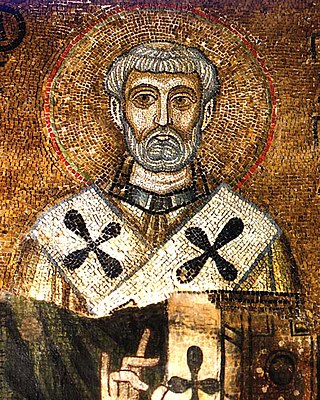 4
Clement of Rome, also known as Pope Clement I, was the bishop of Rome in the late first century AD. He is listed by Irenaeus and Tertullian as the bishop of Rome, holding office from 88 AD to his...
4
Clement of Rome, also known as Pope Clement I, was the bishop of Rome in the late first century AD. He is listed by Irenaeus and Tertullian as the bishop of Rome, holding office from 88 AD to his...
Joana Angélica
 4
Sister Joana Angélica de Jesus, registered as Joanna Angelica de Jesus was a Brazilian Conceptionist nun, belonging to the Reformed Order of Our Lady of Conception, and martyr of the Brazilian...
4
Sister Joana Angélica de Jesus, registered as Joanna Angelica de Jesus was a Brazilian Conceptionist nun, belonging to the Reformed Order of Our Lady of Conception, and martyr of the Brazilian...
Joaquim Arcoverde de Albuquerque Cavalcanti
 4
Cardinal Dom Joaquim Arcoverde de Albuquerque Cavalcanti was a Brazilian prelate of the Catholic Church, who served as Archbishop of Rio de Janeiro from 1897 to 1930. He was made a cardinal in 1905,...
4
Cardinal Dom Joaquim Arcoverde de Albuquerque Cavalcanti was a Brazilian prelate of the Catholic Church, who served as Archbishop of Rio de Janeiro from 1897 to 1930. He was made a cardinal in 1905,...
Duarte Costa
 4
Duarte Costa pode referir-se a:
4
Duarte Costa pode referir-se a:
Júlio de Mesquita
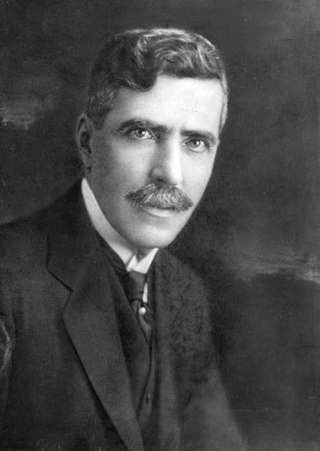 4
Júlio César Ferreira de Mesquita foi um advogado, politico e jornalista brasileiro, proprietário do jornal O Estado de S. Paulo.
4
Júlio César Ferreira de Mesquita foi um advogado, politico e jornalista brasileiro, proprietário do jornal O Estado de S. Paulo.
José Francisco Lopes
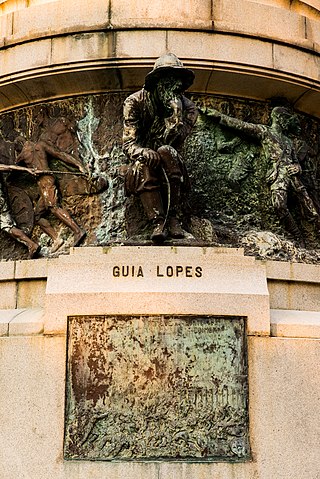 4
José Francisco Lopes, o Guia Lopes foi o herói do Exército Brasileiro na Guerra do Paraguai que guiou as tropas brasileiras durante a Retirada da Laguna.
4
José Francisco Lopes, o Guia Lopes foi o herói do Exército Brasileiro na Guerra do Paraguai que guiou as tropas brasileiras durante a Retirada da Laguna.
Corifeu de Azevedo Marques
 4
Corifeu de Azevedo Marques foi um jornalista brasileiro da primeira metade do século XX, e importante militante e dirigente do PCB. Nos anos 1930, Corifeu foi eleito para o Bureau Político do PCB...
4
Corifeu de Azevedo Marques foi um jornalista brasileiro da primeira metade do século XX, e importante militante e dirigente do PCB. Nos anos 1930, Corifeu foi eleito para o Bureau Político do PCB...
Eustáquio van Lieshout
 4
Eustáquio van Lieshout was a Dutch missionary in Brazil, and a religious and priest of the Congregation of the Sacred Hearts of Jesus and Mary.
4
Eustáquio van Lieshout was a Dutch missionary in Brazil, and a religious and priest of the Congregation of the Sacred Hearts of Jesus and Mary.
Otávio Rocha
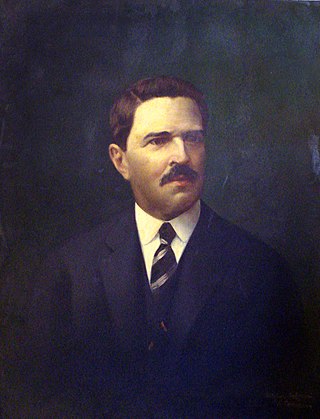 4
Otávio Francisco da Rocha foi um militar, engenheiro, educador, político e jornalista brasileiro, prefeito de Porto Alegre de 1924 a 1928.
4
Otávio Francisco da Rocha foi um militar, engenheiro, educador, político e jornalista brasileiro, prefeito de Porto Alegre de 1924 a 1928.
Amerigo Vespucci
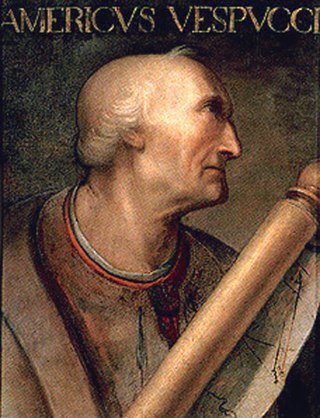 4
Amerigo Vespucci was an Italian explorer and navigator from the Republic of Florence, from whose name the term "America" is derived.
4
Amerigo Vespucci was an Italian explorer and navigator from the Republic of Florence, from whose name the term "America" is derived.
Pedro Nolasco
 4
Pedro Nolasco was a Dominican boxer, who won the bronze medal in the men's bantamweight category at the 1984 Summer Olympics in Los Angeles, United States.
4
Pedro Nolasco was a Dominican boxer, who won the bronze medal in the men's bantamweight category at the 1984 Summer Olympics in Los Angeles, United States.
Juracy Magalhães
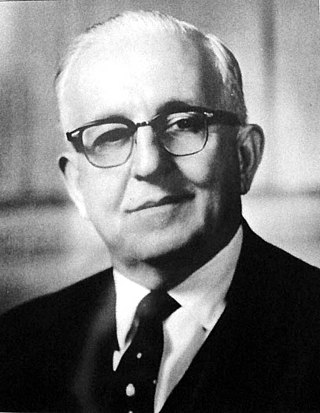 4
Juracy Montenegro Magalhães GCC • GCIH was a Brazilian military officer and politician. During his career, Magalhães was the state governor of Bahia twice: between 1931—1937 and 1959—1963 (elected);...
4
Juracy Montenegro Magalhães GCC • GCIH was a Brazilian military officer and politician. During his career, Magalhães was the state governor of Bahia twice: between 1931—1937 and 1959—1963 (elected);...
Augusto Rodrigues
 4
Augusto Rodrigues foi um artista plástico e arte-educador brasileiro. Foi pintor, desenhista, gravador, ilustrador, caricaturista e fotógrafo.
4
Augusto Rodrigues foi um artista plástico e arte-educador brasileiro. Foi pintor, desenhista, gravador, ilustrador, caricaturista e fotógrafo.
Landulfo Alves
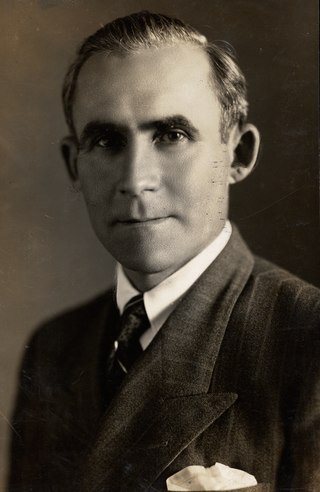 4
Landulfo Alves de Almeida foi um político brasileiro.
4
Landulfo Alves de Almeida foi um político brasileiro.
Martins Fontes
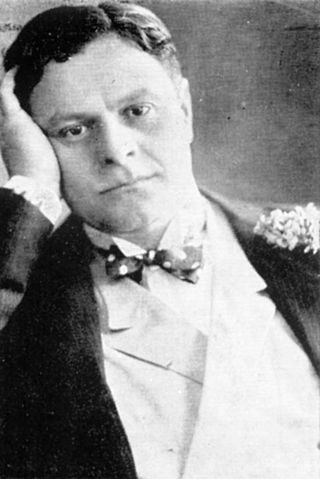 4
José Martins Fontes foi um médico, poeta e tradutor brasileiro.
4
José Martins Fontes foi um médico, poeta e tradutor brasileiro.
Carmen Miranda
 4
Maria do Carmo Miranda da Cunha, known professionally as Carmen Miranda, was a Portuguese-born Brazilian singer. Nicknamed "The Brazilian Bombshell", she was known for her signature fruit hat outfit...
4
Maria do Carmo Miranda da Cunha, known professionally as Carmen Miranda, was a Portuguese-born Brazilian singer. Nicknamed "The Brazilian Bombshell", she was known for her signature fruit hat outfit...
Alfredo Nasser
 4
Alfredo Nasser foi um advogado, jornalista, professor e político brasileiro.
4
Alfredo Nasser foi um advogado, jornalista, professor e político brasileiro.
Erasmo de Carvalho Braga
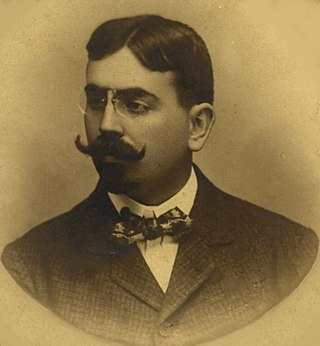 4
Erasmo de Carvalho Braga was a Brazilian Protestant evangelical leader.
4
Erasmo de Carvalho Braga was a Brazilian Protestant evangelical leader.
Eça de Queiroz
 4
José Maria de Eça de Queiroz or Queirós is generally considered to have been the greatest Portuguese writer in the realist style. Zola considered him to be far greater than Flaubert. In the London...
4
José Maria de Eça de Queiroz or Queirós is generally considered to have been the greatest Portuguese writer in the realist style. Zola considered him to be far greater than Flaubert. In the London...
Tobias Barreto
 4
Tobias Barreto de Meneses was a Brazilian poet, philosopher, jurist and literary critic. He is famous for creating the "Condorism" and revolutionizing Brazilian Romanticism and poetry. He is patron...
4
Tobias Barreto de Meneses was a Brazilian poet, philosopher, jurist and literary critic. He is famous for creating the "Condorism" and revolutionizing Brazilian Romanticism and poetry. He is patron...
João Caetano
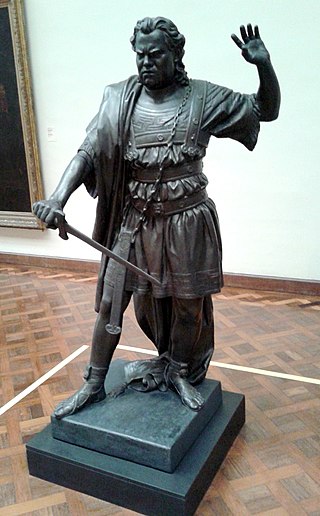 4
João Caetano dos Santos foi importante ator e encenador brasileiro.
4
João Caetano dos Santos foi importante ator e encenador brasileiro.
Francisco Lacerda de Aguiar
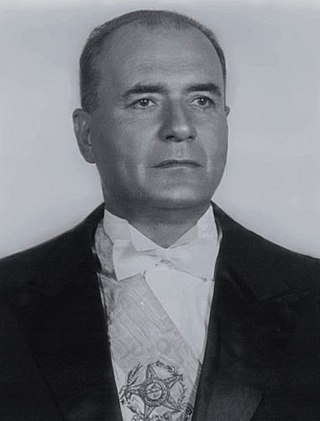 4
Francisco Lacerda de Aguiar foi um político brasileiro.
4
Francisco Lacerda de Aguiar foi um político brasileiro.
Raphael (archangel)
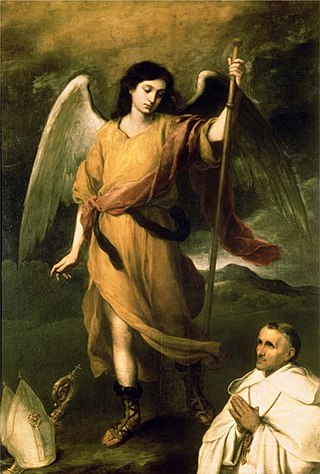 4
Raphael is an archangel first mentioned in the Book of Tobit and in 1 Enoch, both estimated to date from between the 3rd and 2nd century BCE. In later Jewish tradition, he became identified as one of...
4
Raphael is an archangel first mentioned in the Book of Tobit and in 1 Enoch, both estimated to date from between the 3rd and 2nd century BCE. In later Jewish tradition, he became identified as one of...
Alziro Zarur
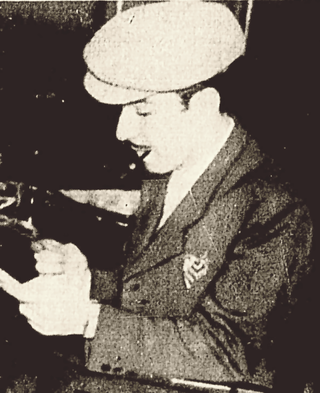 4
Alziro Abrahão Elias David Zarur foi um jornalista, radialista, poeta e escritor, fundador e primeiro presidente da Legião da Boa Vontade.
4
Alziro Abrahão Elias David Zarur foi um jornalista, radialista, poeta e escritor, fundador e primeiro presidente da Legião da Boa Vontade.
Cassiano Ricardo
 4
Cassiano Ricardo was a Brazilian journalist, literary critic, and poet.
4
Cassiano Ricardo was a Brazilian journalist, literary critic, and poet.
Jorge Tibiriçá
 4
Jorge Tibiriçá Piratininga was a Brazilian politician who served as president (governor) of São Paulo.
4
Jorge Tibiriçá Piratininga was a Brazilian politician who served as president (governor) of São Paulo.
Francisco Prestes Maia
 4
Francisco Prestes Maia (1896–1965) was a Brazilian architect, civil engineer, urban planner, and professor, who served three terms as mayor of the city of São Paulo.
4
Francisco Prestes Maia (1896–1965) was a Brazilian architect, civil engineer, urban planner, and professor, who served three terms as mayor of the city of São Paulo.
João Mendes (director)
 4
João Mendes was a Portuguese film director. He directed 33 films between 1944 and 1982.
4
João Mendes was a Portuguese film director. He directed 33 films between 1944 and 1982.
José de Melo Carvalho Muniz Freire
 4
José Melo de Carvalho Muniz Freire was a Brazilian politician. He was the 10th president (governor) of the state of Espirito Santo, from 1892 to 1896, and again from 1900 to 1904.
4
José Melo de Carvalho Muniz Freire was a Brazilian politician. He was the 10th president (governor) of the state of Espirito Santo, from 1892 to 1896, and again from 1900 to 1904.
Antonio Paulino Limpo de Abreu, Viscount of Abaeté
Honório Hermeto Carneiro Leão, Marquis of Paraná
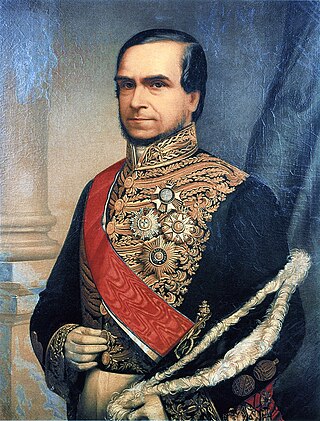 4
Honório Hermeto Carneiro Leão, Marquis of Paraná was a Brazilian politician, diplomat, judge and monarchist. Paraná was born to a family of humble means in São Carlos do Jacuí, in what was then the...
4
Honório Hermeto Carneiro Leão, Marquis of Paraná was a Brazilian politician, diplomat, judge and monarchist. Paraná was born to a family of humble means in São Carlos do Jacuí, in what was then the...
Manuel Rodrigues Coelho
 4
Manuel Rodrigues Coelho was a Portuguese organist and composer. He is the first important Iberian keyboard composer since Cabezón.
4
Manuel Rodrigues Coelho was a Portuguese organist and composer. He is the first important Iberian keyboard composer since Cabezón.
Carlos de Morais Camisão
 4
Carlos de Morais Camisão was a Brazilian colonel of the Paraguayan War. He was one of the leaders of Laguna, with Alfredo d'Escragnolle Taunay. He took command of the Brazilian force...
4
Carlos de Morais Camisão was a Brazilian colonel of the Paraguayan War. He was one of the leaders of Laguna, with Alfredo d'Escragnolle Taunay. He took command of the Brazilian force...
Carmela Dutra
 4
Carmela Leite Dutra, também conhecida como Santinha, foi a primeira-dama do país de 31 de janeiro de 1946 até a sua morte, tendo sido a esposa de Eurico Gaspar Dutra, 16.º presidente do Brasil.
4
Carmela Leite Dutra, também conhecida como Santinha, foi a primeira-dama do país de 31 de janeiro de 1946 até a sua morte, tendo sido a esposa de Eurico Gaspar Dutra, 16.º presidente do Brasil.
Paulo Setúbal
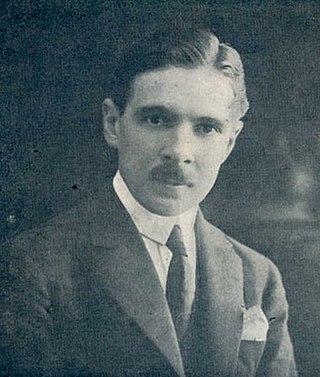 4
Paulo de Oliveira Leite Setúbal was a Brazilian writer, lawyer, journalist, essayist and poet.
4
Paulo de Oliveira Leite Setúbal was a Brazilian writer, lawyer, journalist, essayist and poet.
Adoniran Barbosa
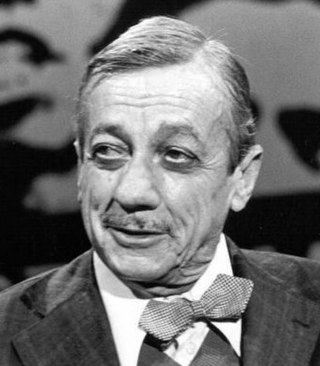 4
Adoniran Barbosa, artistic name of João Rubinato, was a noted Brazilian São Paulo style samba singer and composer.
4
Adoniran Barbosa, artistic name of João Rubinato, was a noted Brazilian São Paulo style samba singer and composer.
Francisco de Paula
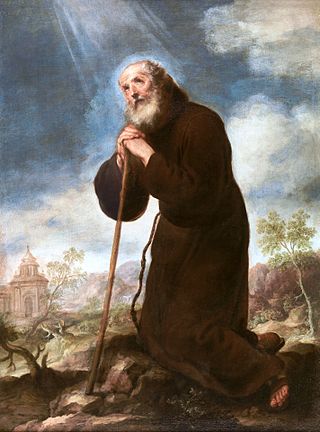 4
São Francisco de Paula foi um eremita, fundador da Ordem dos Mínimos e santo da Igreja Católica.
4
São Francisco de Paula foi um eremita, fundador da Ordem dos Mínimos e santo da Igreja Católica.
Daniele Comboni
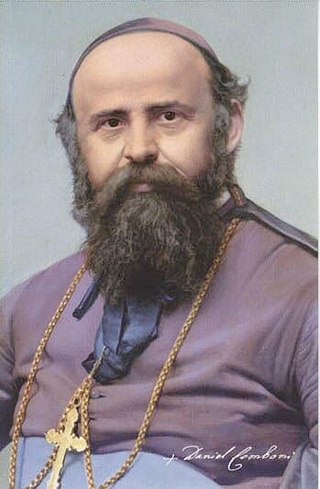 4
Daniele Comboni, MCCJ was an Italian Catholic prelate who served as Vicar Apostolic of Central Africa from 1877 until his death in 1881. He worked in the missions in Africa and was the founder of...
4
Daniele Comboni, MCCJ was an Italian Catholic prelate who served as Vicar Apostolic of Central Africa from 1877 until his death in 1881. He worked in the missions in Africa and was the founder of...
Francisco Sales
 4
Francisco de Sales Duarte Azevedo, mais conhecido como Francisco Sales, foi um técnico agrícola e político brasileiro, outrora deputado federal por Rondônia.
4
Francisco de Sales Duarte Azevedo, mais conhecido como Francisco Sales, foi um técnico agrícola e político brasileiro, outrora deputado federal por Rondônia.
Raul Veiga
 4
Raul de Moraes Veiga foi um engenheiro civil e político brasileiro.
4
Raul de Moraes Veiga foi um engenheiro civil e político brasileiro.
Eufrásia Teixeira Leite
 4
Eufrásia Teixeira Leite was a Brazilian heiress, financial investor and philanthropist. She left in testament a fortune that could buy 1,850 kg of gold, at the prices of the time, having been one of...
4
Eufrásia Teixeira Leite was a Brazilian heiress, financial investor and philanthropist. She left in testament a fortune that could buy 1,850 kg of gold, at the prices of the time, having been one of...
Elijah
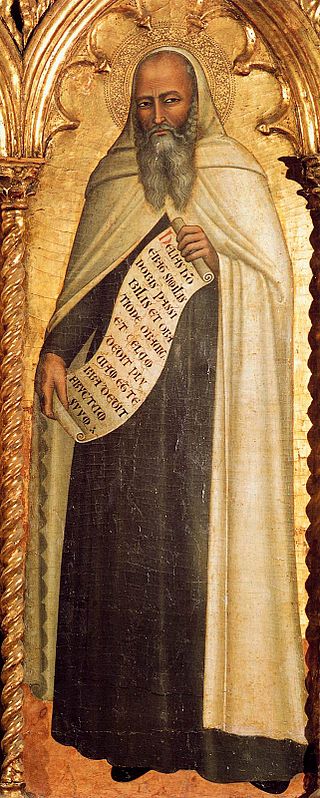 4
Elijah was, according to the Books of Kings in the Hebrew Bible, a prophet and a miracle worker who lived in the northern kingdom of Israel during the reign of King Ahab.
4
Elijah was, according to the Books of Kings in the Hebrew Bible, a prophet and a miracle worker who lived in the northern kingdom of Israel during the reign of King Ahab.
Napoleão Laureano
 4
Napoleão Rodrigues Laureano was a Brazilian cancer specialist. Napoleão Laureano Hospital in João Pessoa, Paraiba is named for him.
4
Napoleão Rodrigues Laureano was a Brazilian cancer specialist. Napoleão Laureano Hospital in João Pessoa, Paraiba is named for him.
Xavier da Silveira
 4
Joaquim Xavier da Silveira foi um poeta, jornalista, advogado e líder abolicionista brasileiro.
4
Joaquim Xavier da Silveira foi um poeta, jornalista, advogado e líder abolicionista brasileiro.
Lobo da Costa
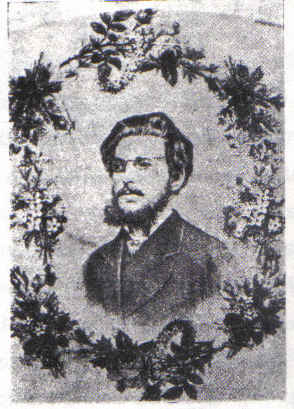 4
Francisco Lobo da Costa foi um poeta, jornalista e teatrólogo brasileiro.
4
Francisco Lobo da Costa foi um poeta, jornalista e teatrólogo brasileiro.
José Gaspar de Afonseca e Silva
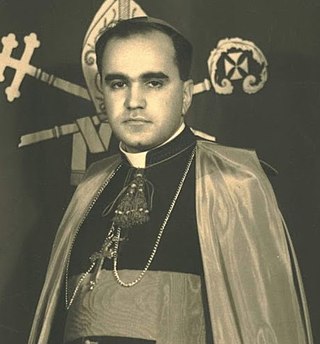 4
Dom José Gaspar de Afonseca e Silva foi um sacerdote católico brasileiro; décimo quarto bispo e segundo arcebispo de São Paulo.
4
Dom José Gaspar de Afonseca e Silva foi um sacerdote católico brasileiro; décimo quarto bispo e segundo arcebispo de São Paulo.
Marquis of Valença
 4
Marquis of Valença was a Portuguese title of nobility granted by royal decree of King Afonso V of Portugal, dated from October 11, 1451, to Dom Afonso of Braganza (1400–1460), who already was 4th...
4
Marquis of Valença was a Portuguese title of nobility granted by royal decree of King Afonso V of Portugal, dated from October 11, 1451, to Dom Afonso of Braganza (1400–1460), who already was 4th...
Zumbi
 4
Zumbi, also known as Zumbi dos Palmares, was a Brazilian quilombola leader and one of the pioneers of resistance to slavery of Africans by the Portuguese in colonial Brazil. He was also the last of...
4
Zumbi, also known as Zumbi dos Palmares, was a Brazilian quilombola leader and one of the pioneers of resistance to slavery of Africans by the Portuguese in colonial Brazil. He was also the last of...
Manuel Antônio de Almeida
 4
Manuel Antônio de Almeida was a Brazilian satirical writer, medician and teacher. He is famous for the book Memoirs of a Police Sergeant, written under the pen name Um Brasileiro. He is the patron of...
4
Manuel Antônio de Almeida was a Brazilian satirical writer, medician and teacher. He is famous for the book Memoirs of a Police Sergeant, written under the pen name Um Brasileiro. He is the patron of...
Not found.
 4
4
Marie Curie
 4
Maria Salomea Skłodowska-Curie, known simply as Marie Curie, was a Polish and naturalised-French physicist and chemist who conducted pioneering research on radioactivity. She was the first woman to...
4
Maria Salomea Skłodowska-Curie, known simply as Marie Curie, was a Polish and naturalised-French physicist and chemist who conducted pioneering research on radioactivity. She was the first woman to...
John the Evangelist
 4
John the Evangelist is the name traditionally given to the author of the Gospel of John. Christians have traditionally identified him with John the Apostle, John of Patmos, and John the Presbyter,...
4
John the Evangelist is the name traditionally given to the author of the Gospel of John. Christians have traditionally identified him with John the Apostle, John of Patmos, and John the Presbyter,...
Manoel Borba
 4
Manoel Antônio Pereira Borba foi um advogado e político brasileiro.
4
Manoel Antônio Pereira Borba foi um advogado e político brasileiro.
Jânio Quadros
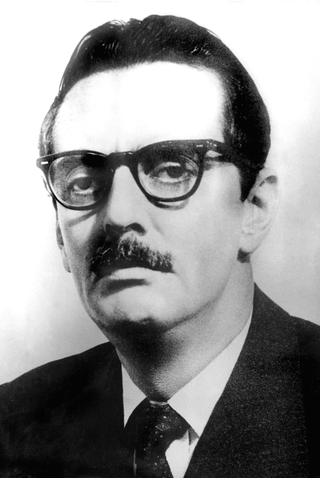 4
Jânio da Silva Quadros was a Brazilian lawyer and politician who served as the 22nd president of Brazil from January 31 to August 25, 1961, when he resigned from office. He also served as the 24th...
4
Jânio da Silva Quadros was a Brazilian lawyer and politician who served as the 22nd president of Brazil from January 31 to August 25, 1961, when he resigned from office. He also served as the 24th...
Pope John Paul II
 4
Pope John Paul II was head of the Catholic Church and sovereign of the Vatican City State from 1978 until his death in 2005.
4
Pope John Paul II was head of the Catholic Church and sovereign of the Vatican City State from 1978 until his death in 2005.
Hercílio Luz
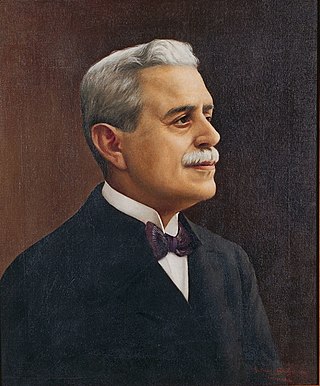 4
Hercílio Pedro da Luz was a Brazilian politician who was the Governor of Santa Catarina.
4
Hercílio Pedro da Luz was a Brazilian politician who was the Governor of Santa Catarina.
Bartolomeu Bueno da Silva
 4
Bartolomeu Bueno da Silva, conhecido como segundo Anhanguera, foi um bandeirante paulista. Com 12 anos, passou a acompanhar o pai, também chamado Bartolomeu Bueno da Silva nas expedições no interior...
4
Bartolomeu Bueno da Silva, conhecido como segundo Anhanguera, foi um bandeirante paulista. Com 12 anos, passou a acompanhar o pai, também chamado Bartolomeu Bueno da Silva nas expedições no interior...
Manuel Vieira
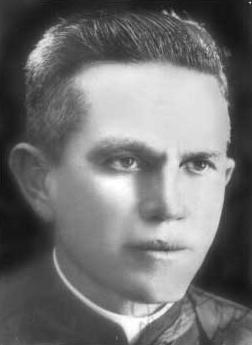 4
Manuel Vieira foi um escritor, educador, sacerdote católico e político brasileiro. É considerado um dos principais religiosos da Paraíba, em razão de suas ações como clérigo, tendo também atuado nas...
4
Manuel Vieira foi um escritor, educador, sacerdote católico e político brasileiro. É considerado um dos principais religiosos da Paraíba, em razão de suas ações como clérigo, tendo também atuado nas...
Fernando Correia da Costa
 4
Fernando Corrêa da Costa foi um médico e político brasileiro, tendo ocupado o cargo de senador e de governador de Mato Grosso por dois mandatos.
4
Fernando Corrêa da Costa foi um médico e político brasileiro, tendo ocupado o cargo de senador e de governador de Mato Grosso por dois mandatos.
Ferdinand Magellan
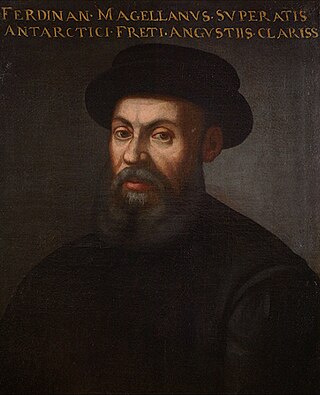 4
Ferdinand Magellan was a Portuguese explorer best known for having planned and led the 1519 Spanish expedition to the East Indies across the Pacific Ocean to open a maritime trade route, during which...
4
Ferdinand Magellan was a Portuguese explorer best known for having planned and led the 1519 Spanish expedition to the East Indies across the Pacific Ocean to open a maritime trade route, during which...
Ribeiro Junior
 4
Alfredo Augusto Ribeiro Junior foi o principal líder da Comuna de Manaus.
4
Alfredo Augusto Ribeiro Junior foi o principal líder da Comuna de Manaus.
Francisco Nunes da Rosa
 4
Francisco Nunes da Rosa was a Portuguese Catholic priest, short story writer and journalist.
4
Francisco Nunes da Rosa was a Portuguese Catholic priest, short story writer and journalist.
João Manuel de Lima e Silva
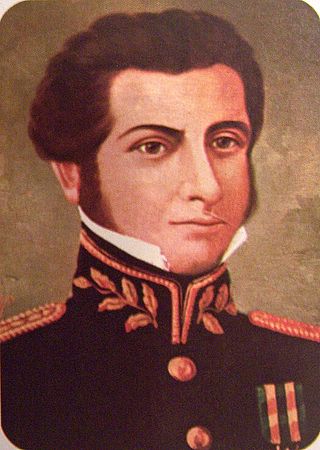 4
João Manuel de Lima e Silva was a Brazilian military officer and revolutionary leader, being the first general of the Riograndense Republic.
4
João Manuel de Lima e Silva was a Brazilian military officer and revolutionary leader, being the first general of the Riograndense Republic.
Mário Quintana
 4
Mário de Miranda Quintana was a Brazilian writer and translator.
4
Mário de Miranda Quintana was a Brazilian writer and translator.
Gregório de Matos
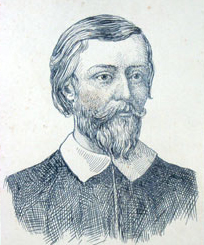 4
Gregório de Matos e Guerra was a famous Colonial Brazilian Baroque poet. Although he wrote many lyrical and religious poems, he was better known for his satirical ones, most of them criticizing the...
4
Gregório de Matos e Guerra was a famous Colonial Brazilian Baroque poet. Although he wrote many lyrical and religious poems, he was better known for his satirical ones, most of them criticizing the...
Tim Maia
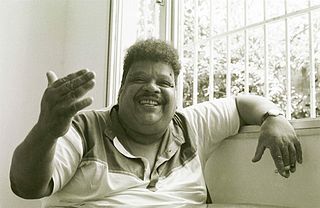 4
Tim Maia was a Brazilian musician, songwriter, and businessman known for his iconoclastic, ironic, outspoken, and humorous musical style. Maia contributed to Brazilian music within a wide variety of...
4
Tim Maia was a Brazilian musician, songwriter, and businessman known for his iconoclastic, ironic, outspoken, and humorous musical style. Maia contributed to Brazilian music within a wide variety of...
António Marques
 4
António dos Anjos Marques foi um actor e dobrador português.
4
António dos Anjos Marques foi um actor e dobrador português.
Carlos Lacerda
 4
Carlos Frederico Werneck de Lacerda was a Brazilian journalist and politician.
4
Carlos Frederico Werneck de Lacerda was a Brazilian journalist and politician.
João Lopes Soares
 4
João Lopes Soares, conhecido como João Soares, foi um professor, político e pedagogo que, entre outras funções, foi deputado, governador civil e Ministro das Colónias durante a Primeira República...
4
João Lopes Soares, conhecido como João Soares, foi um professor, político e pedagogo que, entre outras funções, foi deputado, governador civil e Ministro das Colónias durante a Primeira República...
Mário de Andrade
 4
Mário Raul de Morais Andrade was a Brazilian poet, novelist, musicologist, art historian and critic, and photographer. He wrote one of the first and most influential collections of modern Brazilian...
4
Mário Raul de Morais Andrade was a Brazilian poet, novelist, musicologist, art historian and critic, and photographer. He wrote one of the first and most influential collections of modern Brazilian...
João de Souza Mendes
 4
João de Souza Mendes Júnior was a seven-time Brazilian chess champion and physician. Prior to emergence of Henrique Mecking, he was Brazil's most accomplished chess player.
4
João de Souza Mendes Júnior was a seven-time Brazilian chess champion and physician. Prior to emergence of Henrique Mecking, he was Brazil's most accomplished chess player.
Capistrano de Abreu
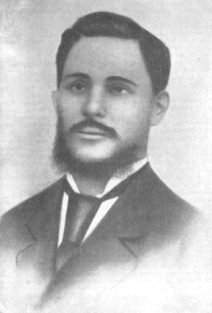 4
João Capistrano Honório de Abreu was a Brazilian historian. His works are characterized by a rigorous investigation of the sources and a critical view of the historical process.
João Capistrano de...
4
João Capistrano Honório de Abreu was a Brazilian historian. His works are characterized by a rigorous investigation of the sources and a critical view of the historical process.
João Capistrano de...
Cláudio Manuel da Costa
 4
Cláudio Manuel da Costa was a Brazilian poet and musician, considered to be the introducer of Neoclassicism in Brazil. He wrote under the pen name Glauceste Satúrnio, and his most famous work is the...
4
Cláudio Manuel da Costa was a Brazilian poet and musician, considered to be the introducer of Neoclassicism in Brazil. He wrote under the pen name Glauceste Satúrnio, and his most famous work is the...
Antônio Lemos
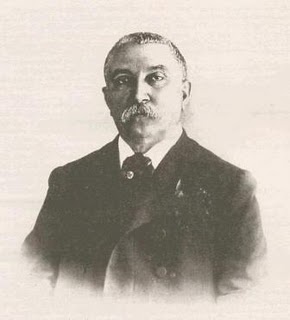 4
Antônio José de Lemos foi um político brasileiro com base eleitoral no estado do Pará e intendente de Belém entre 1897 e 1911. Um dos sócio-fundados do Instituto Histórico e Geográfico do Pará em...
4
Antônio José de Lemos foi um político brasileiro com base eleitoral no estado do Pará e intendente de Belém entre 1897 e 1911. Um dos sócio-fundados do Instituto Histórico e Geográfico do Pará em...
Padre Roma
 4
José Inácio Ribeiro de Abreu e Lima, conhecido como Padre Roma, foi um religioso e revolucionário brasileiro. Um dos líderes da Revolução Pernambucana, foi preso e condenado à morte.
4
José Inácio Ribeiro de Abreu e Lima, conhecido como Padre Roma, foi um religioso e revolucionário brasileiro. Um dos líderes da Revolução Pernambucana, foi preso e condenado à morte.
Henrique Pereira de Lucena
 4
Henrique Pereira de Lucena, primeiro e único barão de Lucena, foi um político e magistrado brasileiro. Começou sua carreira como delegado no Recife. Durante 50 anos foi uma pessoa pública, trabalhou...
4
Henrique Pereira de Lucena, primeiro e único barão de Lucena, foi um político e magistrado brasileiro. Começou sua carreira como delegado no Recife. Durante 50 anos foi uma pessoa pública, trabalhou...
Manoel Braga
 4
Manoel Braga was a Brazilian sports shooter. He competed at the 1932, 1936 and 1948 Summer Olympics.
4
Manoel Braga was a Brazilian sports shooter. He competed at the 1932, 1936 and 1948 Summer Olympics.
Emílio Mallet
 4
Émile Louis Mallet, mais conhecido como Marechal Emílio Mallet, o Barão de Itapevi, foi um militar brasileiro nascido na França. Homem de grande porte físico, com 2,01 metros de altura e 120 Kg de...
4
Émile Louis Mallet, mais conhecido como Marechal Emílio Mallet, o Barão de Itapevi, foi um militar brasileiro nascido na França. Homem de grande porte físico, com 2,01 metros de altura e 120 Kg de...
Vicente Celestino
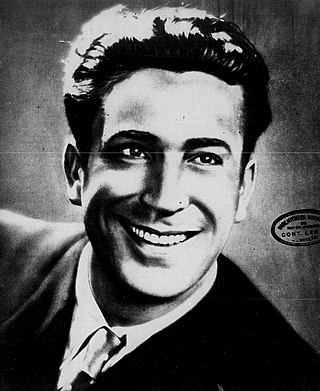 4
Antônio Vicente Filipe Celestino was a Brazilian singer, composer and actor of Italian descent.
4
Antônio Vicente Filipe Celestino was a Brazilian singer, composer and actor of Italian descent.
João Pereira (swimmer)
 4
João Pedro Thomaz Pereira was an Olympic freestyle swimmer from Brazil, who participated at one Summer Olympics for his native country. He was born in São Paulo.
4
João Pedro Thomaz Pereira was an Olympic freestyle swimmer from Brazil, who participated at one Summer Olympics for his native country. He was born in São Paulo.
José Carvalho
 4
José Carvalho is a Brazilian screenwriter, script doctor and dramaturgy professor. He has written scripts for the big and small screens since the early 90s. Some of his most well-known works include...
4
José Carvalho is a Brazilian screenwriter, script doctor and dramaturgy professor. He has written scripts for the big and small screens since the early 90s. Some of his most well-known works include...
António Ferreira (poet)
 4
António Ferreira was a Portuguese poet and the foremost representative of the classical school, founded by Francisco de Sá de Miranda. His most considerable work, Castro, is the first tragedy in...
4
António Ferreira was a Portuguese poet and the foremost representative of the classical school, founded by Francisco de Sá de Miranda. His most considerable work, Castro, is the first tragedy in...
Antonino Freire
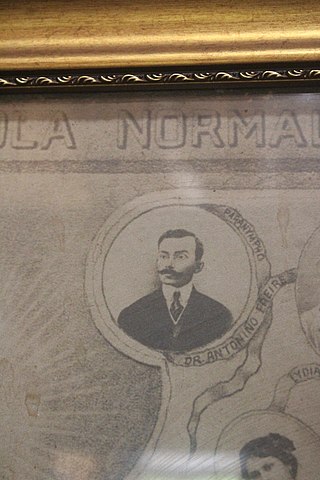 4
Antonino Freire da Silva foi um engenheiro civil funcionário público e político brasileiro que foi governador do Piauí.
4
Antonino Freire da Silva foi um engenheiro civil funcionário público e político brasileiro que foi governador do Piauí.
Thomas Edison
 4
Thomas Alva Edison was an American inventor and businessman. He developed many devices in fields such as electric power generation, mass communication, sound recording, and motion pictures. These...
4
Thomas Alva Edison was an American inventor and businessman. He developed many devices in fields such as electric power generation, mass communication, sound recording, and motion pictures. These...
Juarez Távora (general)
 4
Juarez do Nascimento Fernandes Távora was a Brazilian general and politician active during the Brazilian Revolution of 1930 that put an end to the oligarchic First Brazilian Republic by deposing the...
4
Juarez do Nascimento Fernandes Távora was a Brazilian general and politician active during the Brazilian Revolution of 1930 that put an end to the oligarchic First Brazilian Republic by deposing the...
Teotônio Vilela
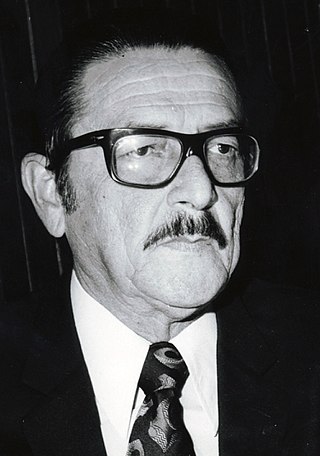 4
Teotônio Brandão Vilela foi um empresário e político brasileiro. Dentro de duas décadas foi deputado estadual, vice-governador e senador, reeleito para este último no pleito seguinte. Pai de Teotônio...
4
Teotônio Brandão Vilela foi um empresário e político brasileiro. Dentro de duas décadas foi deputado estadual, vice-governador e senador, reeleito para este último no pleito seguinte. Pai de Teotônio...
Francisco da Costa Gomes
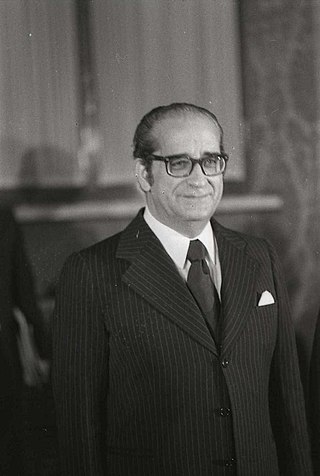 4
Francisco da Costa Gomes, ComTE, GOA was a Portuguese military officer and politician, the 15th president of Portugal.
4
Francisco da Costa Gomes, ComTE, GOA was a Portuguese military officer and politician, the 15th president of Portugal.
Quiteria
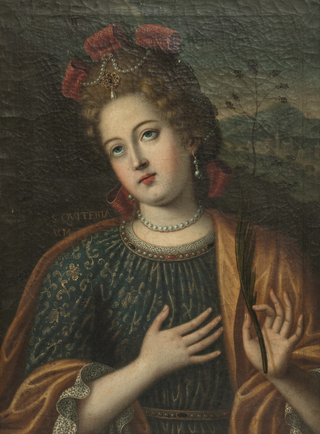 4
Quiteria was a second-century virgin martyr and saint about whom nothing is certain except her name and her cult. She appears in the Roman Martyrology, but not in any other ancient calendars.
4
Quiteria was a second-century virgin martyr and saint about whom nothing is certain except her name and her cult. She appears in the Roman Martyrology, but not in any other ancient calendars.
Café Filho
 4
João Fernandes Campos Café Filho was a Brazilian politician who served as the 18th president of Brazil, taking office upon the suicide of president Getúlio Vargas. He was the first Protestant to...
4
João Fernandes Campos Café Filho was a Brazilian politician who served as the 18th president of Brazil, taking office upon the suicide of president Getúlio Vargas. He was the first Protestant to...
Marquis of Abrantes
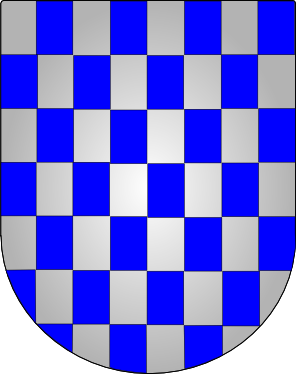 3
Marquess of Abrantes was a Portuguese title of nobility, granted by a decree issued by King John V of Portugal on 24 June 1718, to Rodrigo Anes de Sá Almeida e Menezes, 3rd Marquess of Fontes and 7th...
3
Marquess of Abrantes was a Portuguese title of nobility, granted by a decree issued by King John V of Portugal on 24 June 1718, to Rodrigo Anes de Sá Almeida e Menezes, 3rd Marquess of Fontes and 7th...
Antônio Rafael Pinto Bandeira
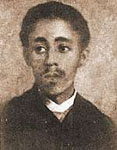 3
Antônio Rafael Pinto Bandeira (1863-1896) was an Afro-Brazilian painter and art professor.
3
Antônio Rafael Pinto Bandeira (1863-1896) was an Afro-Brazilian painter and art professor.
Nelson Mandela
 3
Nelson Rolihlahla Mandela was a South African anti-apartheid activist, politician, and statesman who served as the first president of South Africa from 1994 to 1999. He was the country's first black...
3
Nelson Rolihlahla Mandela was a South African anti-apartheid activist, politician, and statesman who served as the first president of South Africa from 1994 to 1999. He was the country's first black...
Barata Ribeiro
 3
Cândido Barata Ribeiro foi um médico, político e escritor brasileiro, defensor do abolicionismo e do republicanismo. Embora não fosse formado em direito, foi nomeado ministro do Supremo Tribunal...
3
Cândido Barata Ribeiro foi um médico, político e escritor brasileiro, defensor do abolicionismo e do republicanismo. Embora não fosse formado em direito, foi nomeado ministro do Supremo Tribunal...
Joaquim Xavier Guimarães Natal
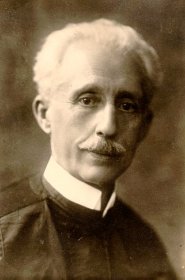 3
Joaquim Xavier Guimarães Natal foi um advogado, magistrado e ex-político brasileiro que serviu como membro da Junta governativa goianense de 1889, deputado constituinte em 1891 e ministro do Supremo...
3
Joaquim Xavier Guimarães Natal foi um advogado, magistrado e ex-político brasileiro que serviu como membro da Junta governativa goianense de 1889, deputado constituinte em 1891 e ministro do Supremo...
Simón Bolívar
 3
Simón José Antonio de la Santísima Trinidad Bolívar Palacios Ponte y Blanco was a Venezuelan military and political leader who led what are currently the countries of Colombia, Venezuela, Ecuador,...
3
Simón José Antonio de la Santísima Trinidad Bolívar Palacios Ponte y Blanco was a Venezuelan military and political leader who led what are currently the countries of Colombia, Venezuela, Ecuador,...
Roberto Freire (psychiatrist)
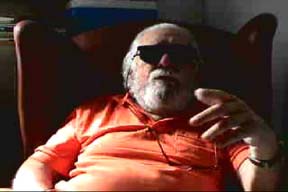 3
Roberto Freire was a medical psychiatrist and Brazilian writer, who created somatherapy, also referred to as SOMA, an anarchist therapy based on the then radical new ideas of Wilhelm Reich, as well...
3
Roberto Freire was a medical psychiatrist and Brazilian writer, who created somatherapy, also referred to as SOMA, an anarchist therapy based on the then radical new ideas of Wilhelm Reich, as well...
Sinhô Pereira
 3
Sebastião Pereira e Silva mais conhecido como Sinhô Pereira foi um cangaceiro brasileiro.
3
Sebastião Pereira e Silva mais conhecido como Sinhô Pereira foi um cangaceiro brasileiro.
Celso Garcia
 3
Afonso Celso Garcia da Luz foi um jornalista, advogado e político brasileiro.
3
Afonso Celso Garcia da Luz foi um jornalista, advogado e político brasileiro.
Teodoro Fernandes Sampaio
 3
Teodoro Fernandes Sampaio was an Afro-Brazilian polymath and public intellectual who worked as an engineer, geographer, politician, and historian.
3
Teodoro Fernandes Sampaio was an Afro-Brazilian polymath and public intellectual who worked as an engineer, geographer, politician, and historian.
José Mendes dos Reis
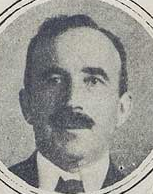 3
José Mendes dos Reis OTE • ComC • ComA • GOA • ComSE foi um oficial do Exército Português e político, que se destacou como comandante da guarnição de Lisboa durante os acontecimentos revolucionários...
3
José Mendes dos Reis OTE • ComC • ComA • GOA • ComSE foi um oficial do Exército Português e político, que se destacou como comandante da guarnição de Lisboa durante os acontecimentos revolucionários...
Gomes Freire de Andrade
 3
Gomes Freire de Andrade, ComC was a field marshal and officer of the Portuguese army. Towards the end of his military career, he commanded a Portuguese legion in the French army and participated in...
3
Gomes Freire de Andrade, ComC was a field marshal and officer of the Portuguese army. Towards the end of his military career, he commanded a Portuguese legion in the French army and participated in...
Leocadia
 3
Saint Leocadia is a Spanish saint. She is thought to have suffered martyrdom and died on December 9, ca. 304, in the Diocletianic Persecution.
3
Saint Leocadia is a Spanish saint. She is thought to have suffered martyrdom and died on December 9, ca. 304, in the Diocletianic Persecution.
Augusto de Lima
 3
Antônio Augusto de Lima was a Brazilian journalist, poet, musician, magistrate, jurist, professor and politician. He was born in Congonhas de Sabará.
3
Antônio Augusto de Lima was a Brazilian journalist, poet, musician, magistrate, jurist, professor and politician. He was born in Congonhas de Sabará.
Feliciano Sodré
 3
Feliciano Pires de Abreu Sodré foi um engenheiro, militar e político brasileiro.
3
Feliciano Pires de Abreu Sodré foi um engenheiro, militar e político brasileiro.
Lindolfo Collor
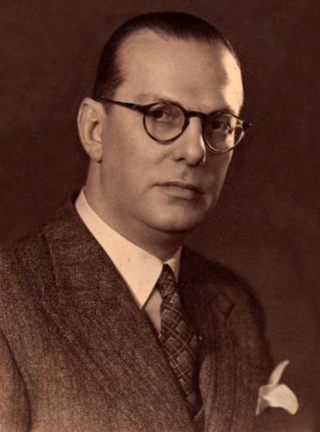 3
Lindolf Leopold Boeckel Collor, known as Lindolfo Collor was a Brazilian journalist and politician.
3
Lindolf Leopold Boeckel Collor, known as Lindolfo Collor was a Brazilian journalist and politician.
Estácio Coimbra
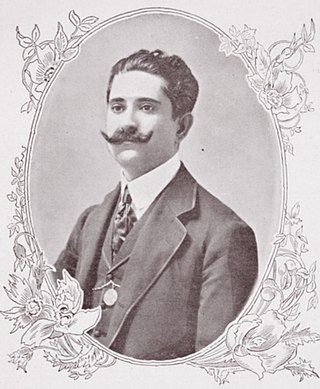 3
Estácio de Albuquerque Coimbra was a Brazilian lawyer and politician.
3
Estácio de Albuquerque Coimbra was a Brazilian lawyer and politician.
João Alberto
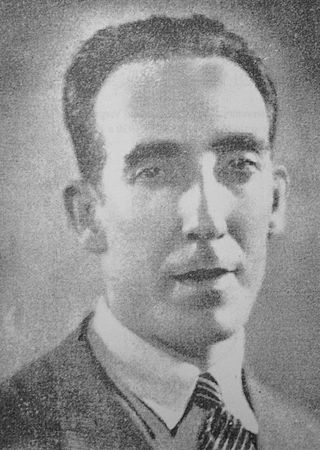 3
João Alberto Lins de Barros was a Brazilian politician in the early 20th century. He was appointed by Getúlio Vargas provisional governor in place of the elected governor of São Paulo. Elite...
3
João Alberto Lins de Barros was a Brazilian politician in the early 20th century. He was appointed by Getúlio Vargas provisional governor in place of the elected governor of São Paulo. Elite...
Renato Azeredo
 3
Renato Mário de Avelar Azeredo foi um político brasileiro do estado de Minas Gerais. Filho de José Santos de Azeredo Coutinho e de Eponina de Avelar de Azeredo. Casado com Rute Brandão de Azeredo e...
3
Renato Mário de Avelar Azeredo foi um político brasileiro do estado de Minas Gerais. Filho de José Santos de Azeredo Coutinho e de Eponina de Avelar de Azeredo. Casado com Rute Brandão de Azeredo e...
Manuel Inácio Carvalho de Mendonça
 3
Manuel Inácio Carvalho de Mendonça foi magistrado, civilista notável e professor concursado da antiga Faculdade Livre de Direito do Rio de Janeiro de 1910 até falecer. Com o seu óbito, a família doou...
3
Manuel Inácio Carvalho de Mendonça foi magistrado, civilista notável e professor concursado da antiga Faculdade Livre de Direito do Rio de Janeiro de 1910 até falecer. Com o seu óbito, a família doou...
Gomes Jardim
 3
José Gomes de Vasconcelos Jardim foi um fazendeiro, maçom, médico-prático e militar brasileiro. Foi Presidente da República Rio-Grandense durante a Guerra dos Farrapos.
3
José Gomes de Vasconcelos Jardim foi um fazendeiro, maçom, médico-prático e militar brasileiro. Foi Presidente da República Rio-Grandense durante a Guerra dos Farrapos.
Barrio Coronel Borges (Santiago del Estero)
 3
El Barrio Coronel Borges debe su nombre se debe a que en este sector está el aeropuerto dependiente de la Dirección Provincial de Aviación Civil, en la ciudad capital de Santiago del Estero...
3
El Barrio Coronel Borges debe su nombre se debe a que en este sector está el aeropuerto dependiente de la Dirección Provincial de Aviación Civil, en la ciudad capital de Santiago del Estero...
Juan Bautista Cabral
 3
Juan Bautista Cabral was an Argentine soldier, of Zambo origin, of the Regiment of Mounted Grenadiers who died in the Battle of San Lorenzo, while he was aiding then Colonel Don José de San Martín,...
3
Juan Bautista Cabral was an Argentine soldier, of Zambo origin, of the Regiment of Mounted Grenadiers who died in the Battle of San Lorenzo, while he was aiding then Colonel Don José de San Martín,...
Weimar Torres
 3
Weimar Gonçalves Torres, mais conhecido como Weimar Torres, foi um advogado, jornalista e político brasileiro, outrora deputado federal por Mato Grosso.
3
Weimar Gonçalves Torres, mais conhecido como Weimar Torres, foi um advogado, jornalista e político brasileiro, outrora deputado federal por Mato Grosso.
António de Oliveira Salazar
 3
António de Oliveira Salazar was a Portuguese statesman, academic, and economist who served as Prime Minister of Portugal from 1932 to 1968. Having come to power under the Ditadura Nacional, he...
3
António de Oliveira Salazar was a Portuguese statesman, academic, and economist who served as Prime Minister of Portugal from 1932 to 1968. Having come to power under the Ditadura Nacional, he...
José Antônio Saraiva
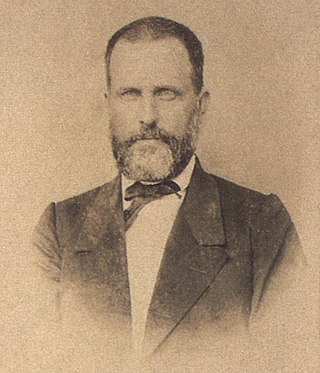 3
José Antônio Saraiva, also known as Counsellor Saraiva, was a Brazilian politician, diplomat and lawyer during the period of the Empire of Brazil (1822–1889). He held the position of President of the...
3
José Antônio Saraiva, also known as Counsellor Saraiva, was a Brazilian politician, diplomat and lawyer during the period of the Empire of Brazil (1822–1889). He held the position of President of the...
José Gervasio Artigas
 3
José Gervasio Artigas Arnal was a soldier and statesman who is regarded as a national hero in Uruguay and the father of Uruguayan nationhood.
3
José Gervasio Artigas Arnal was a soldier and statesman who is regarded as a national hero in Uruguay and the father of Uruguayan nationhood.
Carlos Lindenberg
 3
Carlos Fernando Monteiro Lindenberg foi advogado e político brasileiro, tendo conquistado participação significativa como articulador do cenário político do Estado do Espírito Santo nas décadas de...
3
Carlos Fernando Monteiro Lindenberg foi advogado e político brasileiro, tendo conquistado participação significativa como articulador do cenário político do Estado do Espírito Santo nas décadas de...
Cristiano Dias Lopes Filho
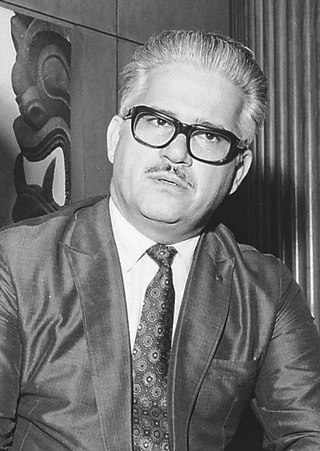 3
Christiano Dias Lopes Filho foi um político brasileiro, serviu como 36.° governador do Espírito Santo entre 1967 e 1971.
3
Christiano Dias Lopes Filho foi um político brasileiro, serviu como 36.° governador do Espírito Santo entre 1967 e 1971.
Antônio Francisco de Paula de Holanda Cavalcanti de Albuquerque
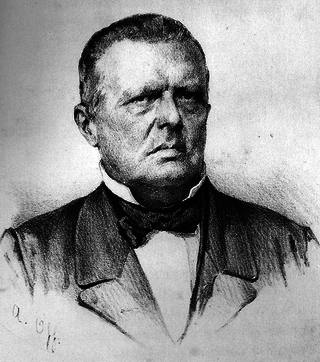 3
Antônio Francisco de Paula de Holanda Cavalcanti de Albuquerque, o Visconde de Albuquerque, foi um militar, proprietário rural e político brasileiro.
3
Antônio Francisco de Paula de Holanda Cavalcanti de Albuquerque, o Visconde de Albuquerque, foi um militar, proprietário rural e político brasileiro.
Paul of the Cross
 3
Paul of the Cross, CP was an Italian Catholic mystic, and founder of the Passionists.
3
Paul of the Cross, CP was an Italian Catholic mystic, and founder of the Passionists.
João Alfredo Correia de Oliveira
 3
João Alfredo Correa de Oliveira was a Brazilian politician, abolitionist and monarchist.
3
João Alfredo Correa de Oliveira was a Brazilian politician, abolitionist and monarchist.
Antônio João Ribeiro
 3
Antônio João Ribeiro (1823-1864) was a Brazilian Lieutenant who served in the War of the Triple Alliance and was notable for his sacrifice in the Battle for Colônia Militar dos Dourados.
3
Antônio João Ribeiro (1823-1864) was a Brazilian Lieutenant who served in the War of the Triple Alliance and was notable for his sacrifice in the Battle for Colônia Militar dos Dourados.
Winston Churchill
 3
Sir Winston Leonard Spencer Churchill was a British statesman, soldier, and writer who twice served as Prime Minister of the United Kingdom, from 1940 to 1945 during the Second World War, and again...
3
Sir Winston Leonard Spencer Churchill was a British statesman, soldier, and writer who twice served as Prime Minister of the United Kingdom, from 1940 to 1945 during the Second World War, and again...
Peixoto Gomide
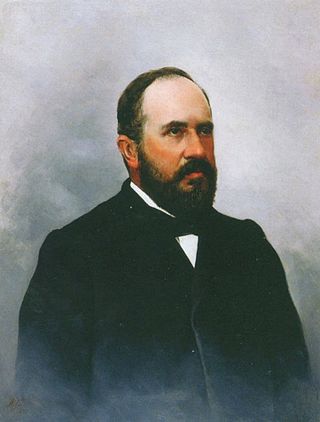 3
Francisco de Assis Peixoto Gomide foi um advogado, professor e político brasileiro.
3
Francisco de Assis Peixoto Gomide foi um advogado, professor e político brasileiro.
Leopoldo Machado
 3
Leopoldo Machado de Souza Barbosa, mais conhecido como Leopoldo Machado foi um escritor, educador e espírita brasileiro.
3
Leopoldo Machado de Souza Barbosa, mais conhecido como Leopoldo Machado foi um escritor, educador e espírita brasileiro.
José Lourenço Gomes da Silva
 3
José Lourenço Gomes da Silva, mais conhecido como beato José Lourenço, foi o líder da comunidade Caldeirão de Santa Cruz do Deserto, localizada na zona rural do Crato (Ceará).
3
José Lourenço Gomes da Silva, mais conhecido como beato José Lourenço, foi o líder da comunidade Caldeirão de Santa Cruz do Deserto, localizada na zona rural do Crato (Ceará).
Plínio Arlindo de Nês
 3
Plínio Arlindo de Nês foi um empresário e político brasileiro.
3
Plínio Arlindo de Nês foi um empresário e político brasileiro.
Inácio Francisco Silveira da Mota
 3
Ignacio Francisco Silveira da Mota, barão com grandeza de Vila Franca foi um jurista, político, empresário, fazendeiro e senhor de engenho brasileiro.
3
Ignacio Francisco Silveira da Mota, barão com grandeza de Vila Franca foi um jurista, político, empresário, fazendeiro e senhor de engenho brasileiro.
Antônio Bento (abolicionista)
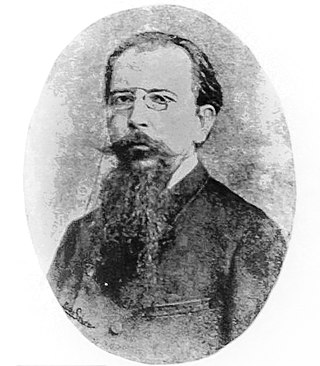 3
Antônio Bento de Souza e Castro foi promotor público, juiz e abolicionista brasileiro.
3
Antônio Bento de Souza e Castro foi promotor público, juiz e abolicionista brasileiro.
Alberto Mendes Júnior
 3
Alberto Mendes Júnior mais conhecido como Tenente Mendes, foi um oficial da Força Pública do estado de São Paulo durante a Ditadura Militar no Brasil. É considerado herói e patrono da Polícia...
3
Alberto Mendes Júnior mais conhecido como Tenente Mendes, foi um oficial da Força Pública do estado de São Paulo durante a Ditadura Militar no Brasil. É considerado herói e patrono da Polícia...
Federico García Lorca
 3
Federico del Sagrado Corazón de Jesús García Lorca, known as Federico García Lorca, was a Spanish poet, playwright, and theatre director. García Lorca achieved international recognition as an...
3
Federico del Sagrado Corazón de Jesús García Lorca, known as Federico García Lorca, was a Spanish poet, playwright, and theatre director. García Lorca achieved international recognition as an...
Lucas Nogueira Garcez
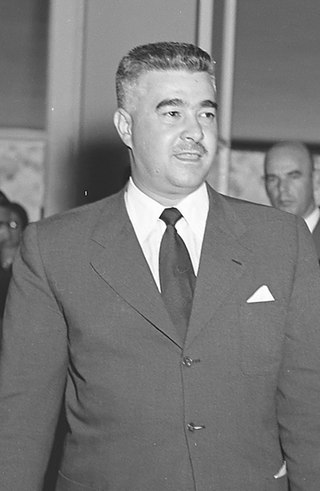 3
Lucas Nogueira Garcez foi um engenheiro e político brasileiro. Recebeu o prêmio de Eminente Engenheiro do Ano em 1968. Foi governador do estado de São Paulo entre 1951 e 1955.
3
Lucas Nogueira Garcez foi um engenheiro e político brasileiro. Recebeu o prêmio de Eminente Engenheiro do Ano em 1968. Foi governador do estado de São Paulo entre 1951 e 1955.
Álvaro Alvim
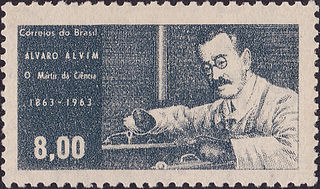 3
Álvaro Freire de Villalba Alvim was a Brazilian physician, pioneer in radiology and radiotherapy. He studied in France with Pierre and Marie Curie and performed the first radiograph in Brazil, which...
3
Álvaro Freire de Villalba Alvim was a Brazilian physician, pioneer in radiology and radiotherapy. He studied in France with Pierre and Marie Curie and performed the first radiograph in Brazil, which...
Abílio César Borges
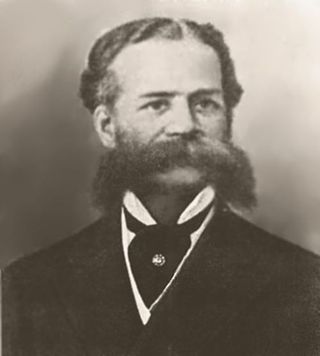 3
Abílio César Borges, primeiro e único barão de Macaúbas, foi um médico e educador, pedagogista brasileiro.
3
Abílio César Borges, primeiro e único barão de Macaúbas, foi um médico e educador, pedagogista brasileiro.
Sólon de Lucena
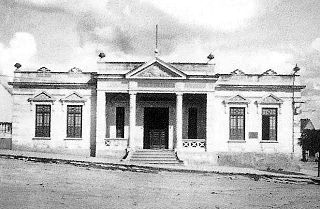 3
Sólon Barbosa de Lucena foi um fazendeiro e político brasileiro.
3
Sólon Barbosa de Lucena foi um fazendeiro e político brasileiro.
Júlio de Castilho
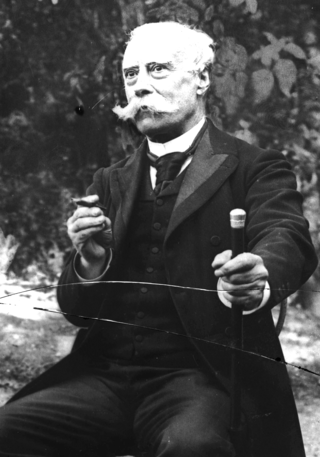 3
Júlio de Castilho, segundo visconde de Castilho, foi um jornalista, poeta, escritor e político português, filho do escritor António Feliciano de Castilho. Distinguiu-se como olisipógrafo, publicando...
3
Júlio de Castilho, segundo visconde de Castilho, foi um jornalista, poeta, escritor e político português, filho do escritor António Feliciano de Castilho. Distinguiu-se como olisipógrafo, publicando...
Ivo Silveira
 3
Ivo Silveira foi um advogado e político brasileiro.
3
Ivo Silveira foi um advogado e político brasileiro.
Manuel Bautista Pérez
 3
Manuel Batista Perez was a Spanish-born merchant, and multi-millionaire active in Africa, Europe, the Americas and Asia. Though Spanish, Manuel called himself Portuguese because Spanish New...
3
Manuel Batista Perez was a Spanish-born merchant, and multi-millionaire active in Africa, Europe, the Americas and Asia. Though Spanish, Manuel called himself Portuguese because Spanish New...
Agostinho Gomes
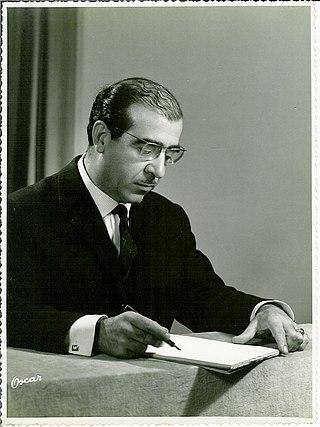 3
Agostinho F. Gomes foi um professor e escritor português.
3
Agostinho F. Gomes foi um professor e escritor português.
Silviano Brandão
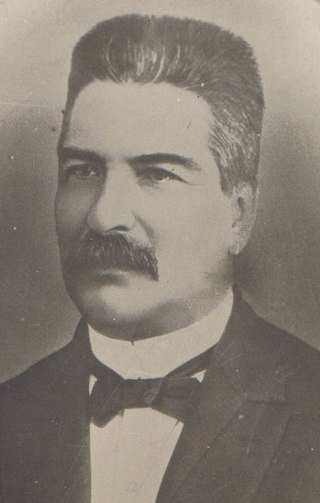 3
Francisco Silviano de Almeida Brandão was a Brazilian politician who was elected Vice President of Brazil, but died before taking office.
3
Francisco Silviano de Almeida Brandão was a Brazilian politician who was elected Vice President of Brazil, but died before taking office.
José Barbosa
 3
José Barbosa was a Puerto Rican pole vaulter who competed in the 1948 Summer Olympics.
3
José Barbosa was a Puerto Rican pole vaulter who competed in the 1948 Summer Olympics.
Leonardo Villas-Bôas
 3
Leonardo Vilas-boas foi um indigenista brasileiro, o mais jovem dos irmãos Villas-Bôas.
3
Leonardo Vilas-boas foi um indigenista brasileiro, o mais jovem dos irmãos Villas-Bôas.
Antônio Castilho de Alcântara Machado
 3
Antônio Castilho de Alcântara Machado de Oliveira was a Brazilian journalist, politician and writer. He didn't take part of the Week of Modern Art (1922) in São Paulo, but even though wrote a great...
3
Antônio Castilho de Alcântara Machado de Oliveira was a Brazilian journalist, politician and writer. He didn't take part of the Week of Modern Art (1922) in São Paulo, but even though wrote a great...
Joaquim Pires de Carvalho e Albuquerque
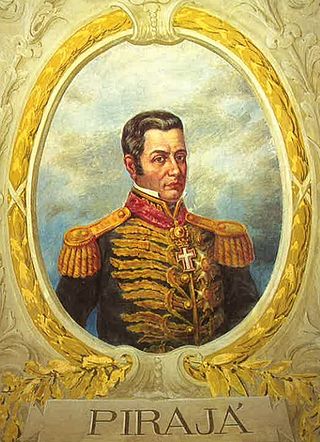 3
Joaquim Pires de Carvalho e Albuquerque, primeiro barão e único visconde com grandeza de Pirajá,, muito conhecido no interior baiano por coronel Santinho, foi um nobre, senhor de engenho da Bahia e...
3
Joaquim Pires de Carvalho e Albuquerque, primeiro barão e único visconde com grandeza de Pirajá,, muito conhecido no interior baiano por coronel Santinho, foi um nobre, senhor de engenho da Bahia e...
Antônio Geremário Teles Dantas
 3
Antônio Geremário Teles Dantas foi um político, jornalista, advogado e escritor brasileiro.
3
Antônio Geremário Teles Dantas foi um político, jornalista, advogado e escritor brasileiro.
Cesário Motta
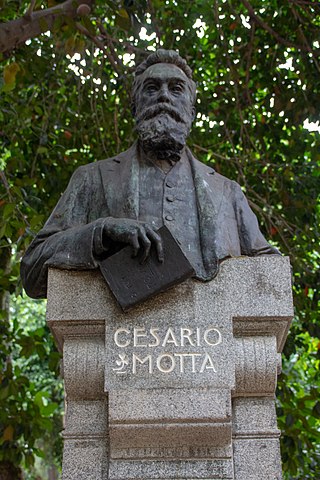 3
Cesário Nazianzeno de Azevedo Motta Magalhães Júnior foi um médico e político brasileiro.
3
Cesário Nazianzeno de Azevedo Motta Magalhães Júnior foi um médico e político brasileiro.
Ernesto Simões Filho
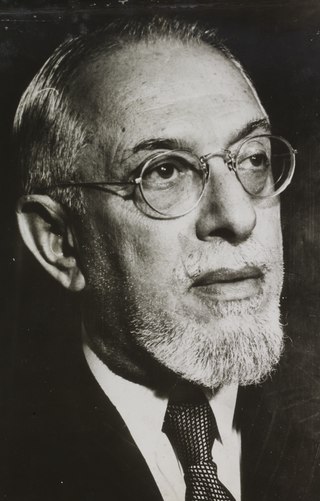 3
Ernesto Simões da Silva Freitas Filho, mais conhecido como Simões Filho, foi um político, jornalista e empresário brasileiro, foi ministro da Educação e fundador do jornal "A Tarde". Em sua homenagem...
3
Ernesto Simões da Silva Freitas Filho, mais conhecido como Simões Filho, foi um político, jornalista e empresário brasileiro, foi ministro da Educação e fundador do jornal "A Tarde". Em sua homenagem...
Alphonsus Liguori
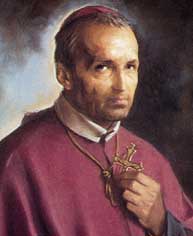 3
Alphonsus Liguori, CSsR, sometimes called Alphonsus Maria de Liguori or Saint Alphonsus Liguori, was an Italian Catholic bishop, spiritual writer, composer, musician, artist, poet, lawyer, scholastic...
3
Alphonsus Liguori, CSsR, sometimes called Alphonsus Maria de Liguori or Saint Alphonsus Liguori, was an Italian Catholic bishop, spiritual writer, composer, musician, artist, poet, lawyer, scholastic...
Paulo Barreto Menezes
 3
Paulo Barreto Menezes was a Brazilian civil engineer and politician. He served as the governor of the state of Sergipe from 1971 to 1975.
3
Paulo Barreto Menezes was a Brazilian civil engineer and politician. He served as the governor of the state of Sergipe from 1971 to 1975.
Bartholomew the Apostle
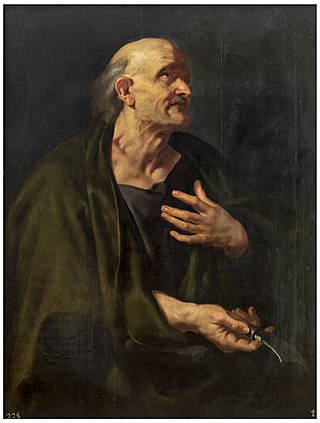 3
Bartholomew was one of the twelve apostles of Jesus according to the New Testament. Most scholars today identify Bartholomew as Nathanael or Nathaniel, who appears in the Gospel of John.
3
Bartholomew was one of the twelve apostles of Jesus according to the New Testament. Most scholars today identify Bartholomew as Nathanael or Nathaniel, who appears in the Gospel of John.
Domingos Ferreira
 3
Domingos Ferreira foi um mestre violeiro (luthier) português, radicado em Vila Rica, cidade na qual estabeleceu, na freguesia do Padre Faria, uma oficina de construção de violas de mão portuguesas,...
3
Domingos Ferreira foi um mestre violeiro (luthier) português, radicado em Vila Rica, cidade na qual estabeleceu, na freguesia do Padre Faria, uma oficina de construção de violas de mão portuguesas,...
Princess Francisca of Brazil
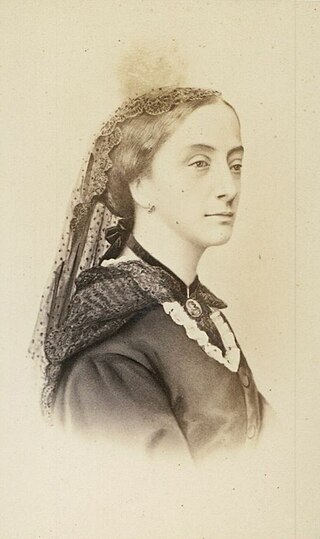 3
Dona Francisca was a princess of the Empire of Brazil, who became Princess of Joinville upon marrying François d’Orléans, son of the French king Louis Philippe I. The couple had three children....
3
Dona Francisca was a princess of the Empire of Brazil, who became Princess of Joinville upon marrying François d’Orléans, son of the French king Louis Philippe I. The couple had three children....
Bernardo Guimarães
 3
Bernardo Joaquim da Silva Guimarães was a Brazilian poet and novelist. He is the author of the famous romances A Escrava Isaura and O Seminarista. He also introduced to Brazilian poetry the verso...
3
Bernardo Joaquim da Silva Guimarães was a Brazilian poet and novelist. He is the author of the famous romances A Escrava Isaura and O Seminarista. He also introduced to Brazilian poetry the verso...
Caio Prado Júnior
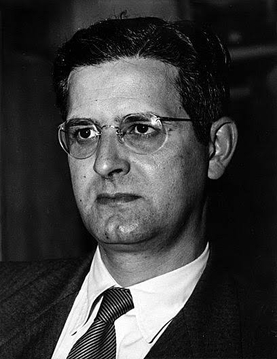 3
Caio da Silva Prado Júnior was a Brazilian historian, geographer, writer, philosopher and politician.
3
Caio da Silva Prado Júnior was a Brazilian historian, geographer, writer, philosopher and politician.
Olegário Mariano
 3
Olegário Mariano Carneiro da Cunha (1889-1958) was a Brazilian poet, politician and diplomat. He was born in Recife, the son of José Mariano Carneiro da Cunha and Olegária Carneiro da Cunha. He...
3
Olegário Mariano Carneiro da Cunha (1889-1958) was a Brazilian poet, politician and diplomat. He was born in Recife, the son of José Mariano Carneiro da Cunha and Olegária Carneiro da Cunha. He...
Alberto de Oliveira
Alfredo Maia
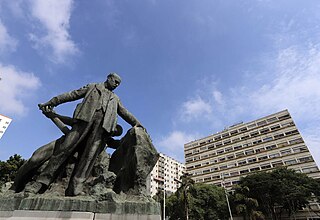 3
Alfredo Eugênio de Almeida Maia foi um engenheiro civil e político brasileiro.
3
Alfredo Eugênio de Almeida Maia foi um engenheiro civil e político brasileiro.
José Antônio da Silva
 3
José Antonio da Silva foi um pintor brasileiro.
3
José Antonio da Silva foi um pintor brasileiro.
João de Barros
 3
João de Barros, nicknamed the "Portuguese Livy", is one of the first great Portuguese historians, most famous for his Décadas da Ásia, a history of the Portuguese in India, Asia, and southeast Africa.
3
João de Barros, nicknamed the "Portuguese Livy", is one of the first great Portuguese historians, most famous for his Décadas da Ásia, a history of the Portuguese in India, Asia, and southeast Africa.
Duarte Coelho
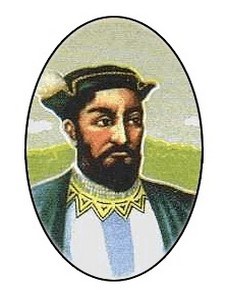 3
Duarte Coelho Pereira was a nobleman, military leader, and colonial administrator in the Portuguese colony of Brazil. He was the first Donatario of the captaincy of Pernambuco and founder of Olinda.
3
Duarte Coelho Pereira was a nobleman, military leader, and colonial administrator in the Portuguese colony of Brazil. He was the first Donatario of the captaincy of Pernambuco and founder of Olinda.
Djalma Dutra
 3
Djalma Soares Dutra foi um militar e revolucionário brasileiro. Cursou a Escola Militar do Realengo possivelmente na mesma turma que Luís Carlos Prestes, Siqueira Campos e Eduardo Gomes. Participou...
3
Djalma Soares Dutra foi um militar e revolucionário brasileiro. Cursou a Escola Militar do Realengo possivelmente na mesma turma que Luís Carlos Prestes, Siqueira Campos e Eduardo Gomes. Participou...
Lafayette Rodrigues Pereira
 3
Lafayette Rodrigues Pereira, was a Brazilian landowner, lawyer, journalist, diplomat and politician. He was governor of the provinces of Ceará (1864–65) and Maranhão (1865–66) and served as Prime...
3
Lafayette Rodrigues Pereira, was a Brazilian landowner, lawyer, journalist, diplomat and politician. He was governor of the provinces of Ceará (1864–65) and Maranhão (1865–66) and served as Prime...
José Ignácio Teixeira
 3
Capitão José Ignácio Teixeira foi um dos fundadores do município brasileiro do estado de São Paulo, Monte Alegre do Sul, onde foi abastado fazendeiro produtor de café.
3
Capitão José Ignácio Teixeira foi um dos fundadores do município brasileiro do estado de São Paulo, Monte Alegre do Sul, onde foi abastado fazendeiro produtor de café.
Rubens de Falco
 3
Rubens de Falco da Costa was a Brazilian actor best known for his work in telenovelas, specifically his portrayal as a slave owner in the 1976 telenovela, Escrava Isaura and the 1986 telenovela Sinhá...
3
Rubens de Falco da Costa was a Brazilian actor best known for his work in telenovelas, specifically his portrayal as a slave owner in the 1976 telenovela, Escrava Isaura and the 1986 telenovela Sinhá...
João Antônio da Silveira
 3
João Antônio da Silveira foi um militar brasileiro.
3
João Antônio da Silveira foi um militar brasileiro.
Leônidas de Castro Melo
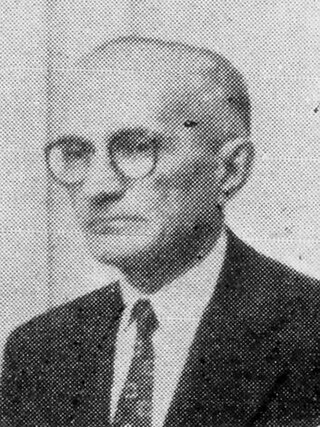 3
Leônidas de Castro Melo foi um professor, médico e político brasileiro. Governou o Piauí por dez anos sob a ditadura de Getúlio Vargas. Redemocratizado o país, fundou o PSD no estado, representando...
3
Leônidas de Castro Melo foi um professor, médico e político brasileiro. Governou o Piauí por dez anos sob a ditadura de Getúlio Vargas. Redemocratizado o país, fundou o PSD no estado, representando...
Sérgio Cardoso
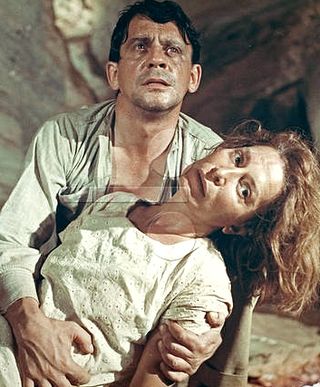 3
Sérgio da Fonseca Mattos Cardoso foi um ator brasileiro. Foi o protagonista de todas as telenovelas em que atuou.
3
Sérgio da Fonseca Mattos Cardoso foi um ator brasileiro. Foi o protagonista de todas as telenovelas em que atuou.
Francisca Júlia da Silva
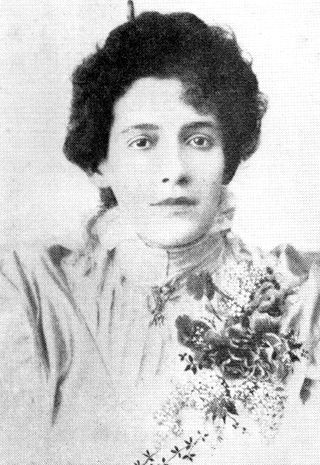 3
Francisca Julia César da Silva Münster foi uma poetisa brasileira. Nasceu em Xiririca, depois Eldorado Paulista, hoje Eldorado.
3
Francisca Julia César da Silva Münster foi uma poetisa brasileira. Nasceu em Xiririca, depois Eldorado Paulista, hoje Eldorado.
Philomena
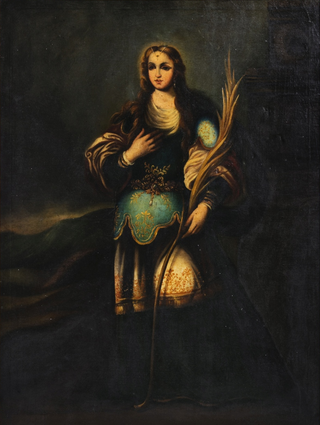 3
Philomena, also known as Saint Philomena or Philomena of Rome was a virgin martyr whose remains were discovered on May 24–25, 1802, in the Catacomb of Priscilla. Three tiles enclosing the tomb bore...
3
Philomena, also known as Saint Philomena or Philomena of Rome was a virgin martyr whose remains were discovered on May 24–25, 1802, in the Catacomb of Priscilla. Three tiles enclosing the tomb bore...
John Maurice, Prince of Nassau-Siegen
 3
John Maurice of Nassau, called "the Brazilian" for his fruitful period as governor of Dutch Brazil, was Count and Prince of Nassau-Siegen. He served as Herrenmeister of the Order of Saint John from...
3
John Maurice of Nassau, called "the Brazilian" for his fruitful period as governor of Dutch Brazil, was Count and Prince of Nassau-Siegen. He served as Herrenmeister of the Order of Saint John from...
António Rodrigues
 3
António Rodrigues was a Portuguese sprinter. He competed in the men's 100 metres at the 1932 Summer Olympics.
3
António Rodrigues was a Portuguese sprinter. He competed in the men's 100 metres at the 1932 Summer Olympics.
João Francisco Lisboa
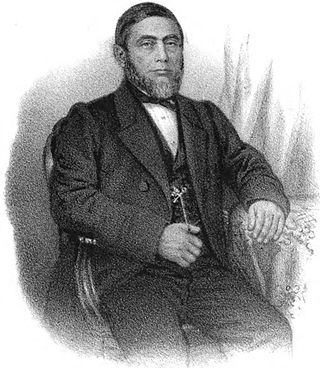 3
João Francisco Lisboa foi um político, historiador, jornalista e escritor brasileiro, a quem a Academia Brasileira de Letras conferiu o patronato da cadeira 18.
3
João Francisco Lisboa foi um político, historiador, jornalista e escritor brasileiro, a quem a Academia Brasileira de Letras conferiu o patronato da cadeira 18.
Antônio Carlos de Arruda Botelho
 3
Antonio Carlos de Arruda Botelho, primeiro e único barão, visconde e conde do Pinhal,, foi um político e empresário brasileiro.
3
Antonio Carlos de Arruda Botelho, primeiro e único barão, visconde e conde do Pinhal,, foi um político e empresário brasileiro.
Miguel Sutil
 3
Miguel Sutil de Oliveira foi um bandeirante paulista, sorocabano, do século XVIII, filho de Sebastião Sutil de Oliveira e Maria Fernandes. Descobriu, em 1722, as minas de ouro à beira do córrego da...
3
Miguel Sutil de Oliveira foi um bandeirante paulista, sorocabano, do século XVIII, filho de Sebastião Sutil de Oliveira e Maria Fernandes. Descobriu, em 1722, as minas de ouro à beira do córrego da...
Alfredo Nunes
 3
Alfredo Alberto Leal Nunes é um advogado, odontólogo, desportista e político brasileiro, outrora vice-presidente da Confederação Brasileira de Futebol.
3
Alfredo Alberto Leal Nunes é um advogado, odontólogo, desportista e político brasileiro, outrora vice-presidente da Confederação Brasileira de Futebol.
Luís José Pereira de Carvalho
 3
Luiz José Pereira de Carvalho, Barão com Grandeza de Sepé foi um militar brasileiro.
3
Luiz José Pereira de Carvalho, Barão com Grandeza de Sepé foi um militar brasileiro.
Alberto Maranhão
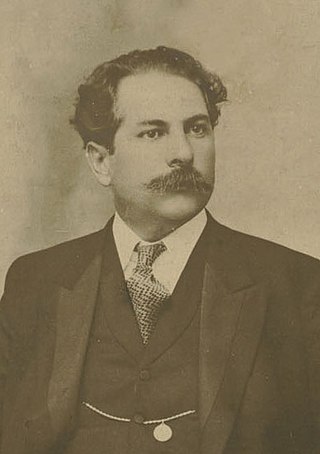 3
Alberto Frederico de Albuquerque Maranhão foi um político brasileiro, tendo sido por duas vezes governador do Rio Grande do Norte de 1900 a 1904 e 1908 a 1914, além de dois mandatos como deputado...
3
Alberto Frederico de Albuquerque Maranhão foi um político brasileiro, tendo sido por duas vezes governador do Rio Grande do Norte de 1900 a 1904 e 1908 a 1914, além de dois mandatos como deputado...
Pedro Martins, Lord of the Tower of Vasconcelos
Manuel José de Siqueira Mendes
 3
Manuel José de Siqueira Mendes foi um sacerdote católico e político brasileiro. Filho de Francisco José de Siqueira Mendes e Maria do Carmo Brito Mendes.
3
Manuel José de Siqueira Mendes foi um sacerdote católico e político brasileiro. Filho de Francisco José de Siqueira Mendes e Maria do Carmo Brito Mendes.
João Bernardo Vieira
 3
João Bernardo "Nino" Vieira was a Bissau-Guinean politician who served as President of Guinea-Bissau from 1980 to 1999, except for a three-day period in May 1984, and from 2005 until his...
3
João Bernardo "Nino" Vieira was a Bissau-Guinean politician who served as President of Guinea-Bissau from 1980 to 1999, except for a three-day period in May 1984, and from 2005 until his...
João Cordeiro
 3
João Cordeiro foi um empresário e político brasileiro.
3
João Cordeiro foi um empresário e político brasileiro.
Carlos Pellegrini
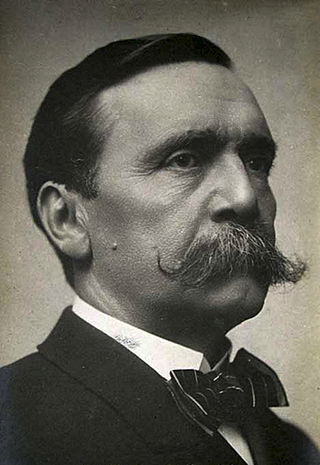 3
Carlos Enrique José Pellegrini Bevans was Vice President of Argentina and became President of Argentina from August 6, 1890 to October 12, 1892, upon Miguel Ángel Juárez Celman's resignation.
3
Carlos Enrique José Pellegrini Bevans was Vice President of Argentina and became President of Argentina from August 6, 1890 to October 12, 1892, upon Miguel Ángel Juárez Celman's resignation.
Anita Malfatti
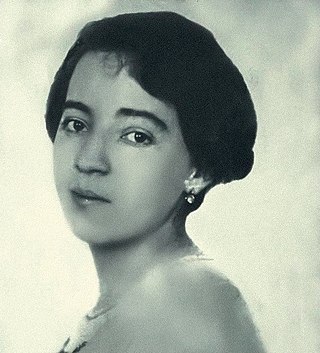 3
Anita Catarina Malfatti is heralded as the first Brazilian artist to introduce European and American forms of Modernism to Brazil. Her solo exhibition in Sao Paulo, from 1917–1918, was controversial...
3
Anita Catarina Malfatti is heralded as the first Brazilian artist to introduce European and American forms of Modernism to Brazil. Her solo exhibition in Sao Paulo, from 1917–1918, was controversial...
Hipólito da Costa
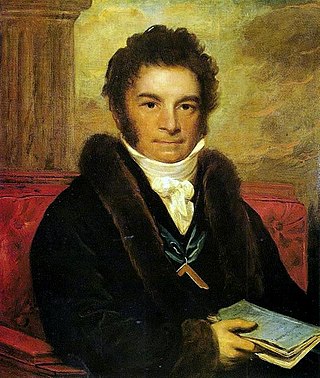 3
Hipólito José da Costa Pereira Furtado de Mendonça was a Brazilian journalist and diplomat considered to be the "father of Brazilian press".
3
Hipólito José da Costa Pereira Furtado de Mendonça was a Brazilian journalist and diplomat considered to be the "father of Brazilian press".
Jules Verne
 3
Jules Gabriel Verne was a French novelist, poet, and playwright. His collaboration with the publisher Pierre-Jules Hetzel led to the creation of the Voyages extraordinaires, a series of bestselling...
3
Jules Gabriel Verne was a French novelist, poet, and playwright. His collaboration with the publisher Pierre-Jules Hetzel led to the creation of the Voyages extraordinaires, a series of bestselling...
António Martins (sport shooter, born 1892)
 3
António Martins was a Portuguese sports shooter. He competed at the 1920 Summer Olympics and 1924 Summer Olympics. He also competed in the discus throw at the 1924 Summer Olympics. His son of the...
3
António Martins was a Portuguese sports shooter. He competed at the 1920 Summer Olympics and 1924 Summer Olympics. He also competed in the discus throw at the 1924 Summer Olympics. His son of the...
Roberto Simonsen
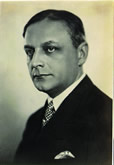 3
Roberto Cochrane Simonsen was a Brazilian engineer, industrialist, scholar and politician.
3
Roberto Cochrane Simonsen was a Brazilian engineer, industrialist, scholar and politician.
Júlio Ribeiro
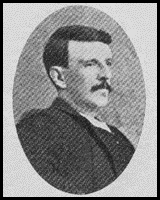 3
Júlio César Ribeiro Vaughan was a Brazilian Naturalist novelist, philologist, journalist and grammarian. He is famous for his controversial romance A Carne and for designing the flag of the State of...
3
Júlio César Ribeiro Vaughan was a Brazilian Naturalist novelist, philologist, journalist and grammarian. He is famous for his controversial romance A Carne and for designing the flag of the State of...
Ramos de Azevedo
 3
Francisco de Paula Ramos de Azevedo was a Brazilian architect, known for designing various buildings and landmarks in São Paulo, such as the Teatro Municipal, the Mercado Municipal and the...
3
Francisco de Paula Ramos de Azevedo was a Brazilian architect, known for designing various buildings and landmarks in São Paulo, such as the Teatro Municipal, the Mercado Municipal and the...
Noel Rosa
 3
Noel de Medeiros Rosa was a Brazilian songwriter, singer, and guitar/mandolin player. One of the greatest names in Brazilian popular music, Noel gave a new twist to samba, combining its...
3
Noel de Medeiros Rosa was a Brazilian songwriter, singer, and guitar/mandolin player. One of the greatest names in Brazilian popular music, Noel gave a new twist to samba, combining its...
José Clemente Pereira
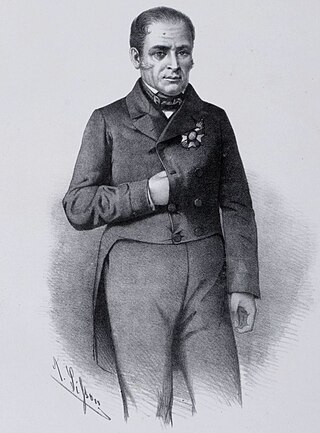 3
José Clemente Pereira, known as José Pequeno, was a Portuguese-born Brazilian magistrate and politician who fought in the Peninsular War and of high relevance to the Empire of Brazil, in addition to...
3
José Clemente Pereira, known as José Pequeno, was a Portuguese-born Brazilian magistrate and politician who fought in the Peninsular War and of high relevance to the Empire of Brazil, in addition to...
Basílio da Gama
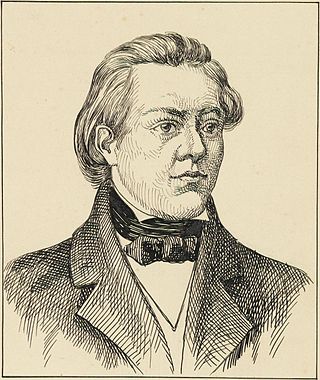 3
José Basílio da Gama was a colonial Brazilian poet and member of the Society of Jesus, famous for the epic poem O Uraguai. He wrote under the pen name Termindo Sipílio.
3
José Basílio da Gama was a colonial Brazilian poet and member of the Society of Jesus, famous for the epic poem O Uraguai. He wrote under the pen name Termindo Sipílio.
Domingos Vieira
 3
Domingos Vieira nasceu em data indeterminada e faleceu, provavelmente em 1678, ano em que foi substituído na pintura régia por Bento Coelho da Silveira. É igualmente conhecido como «Vieira, o Escuro».
3
Domingos Vieira nasceu em data indeterminada e faleceu, provavelmente em 1678, ano em que foi substituído na pintura régia por Bento Coelho da Silveira. É igualmente conhecido como «Vieira, o Escuro».
Vitorino José Carneiro Monteiro, Baron of São Borja
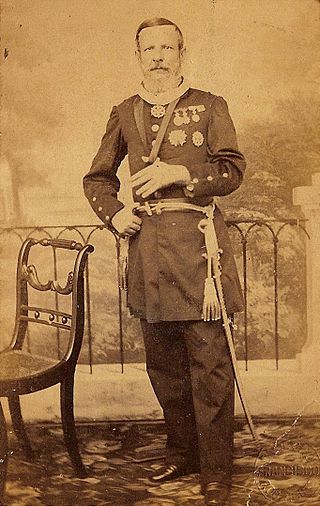 3
Vitorino José Carneiro Monteiro, Baron of São Borja (1816-1877) was a Brazilian Lieutenant General of the Paraguayan War. He was one of the primary commanders at the Battle of Tuyutí and had an...
3
Vitorino José Carneiro Monteiro, Baron of São Borja (1816-1877) was a Brazilian Lieutenant General of the Paraguayan War. He was one of the primary commanders at the Battle of Tuyutí and had an...
Edmundo Navarro de Andrade
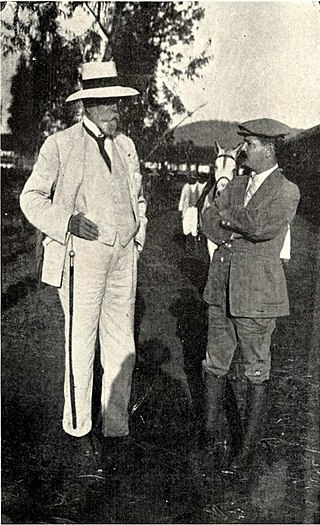 3
Edmundo Navarro de Andrade foi um político e engenheiro agrônomo brasileiro. Ele era afilhado de Dona Veridiana da Silva Prado, a qual o criou e o educou.
3
Edmundo Navarro de Andrade foi um político e engenheiro agrônomo brasileiro. Ele era afilhado de Dona Veridiana da Silva Prado, a qual o criou e o educou.
Adolfo Caminha
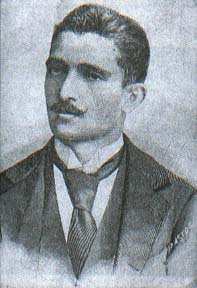 3
Adolfo Ferreira Caminha was a Brazilian Naturalist novelist, famous for his polemical novel Bom-Crioulo, which deals with race and homosexuality.
3
Adolfo Ferreira Caminha was a Brazilian Naturalist novelist, famous for his polemical novel Bom-Crioulo, which deals with race and homosexuality.
Domingos Fernandes Calabar
 3
Domingos Fernandes Calabar was a Portuguese soldier, smuggler, and plantation owner during the time of the Netherlands intrusion into Brazil. He first fought for Portugal against the Netherlands...
3
Domingos Fernandes Calabar was a Portuguese soldier, smuggler, and plantation owner during the time of the Netherlands intrusion into Brazil. He first fought for Portugal against the Netherlands...
Francisco de Paula Sousa e Melo
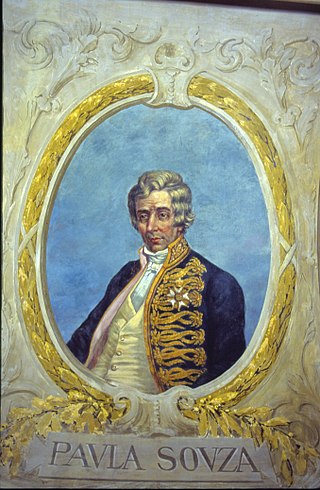 3
Francisco de Paula Sousa e Melo foi um agricultor, nobre e político brasileiro.
3
Francisco de Paula Sousa e Melo foi um agricultor, nobre e político brasileiro.
Joaquim Machado
 3
Joaquim Machado was a Portuguese footballer who played as a midfielder. He died in February 2015 at the age of 91.
3
Joaquim Machado was a Portuguese footballer who played as a midfielder. He died in February 2015 at the age of 91.
Antônio Carneiro Leão
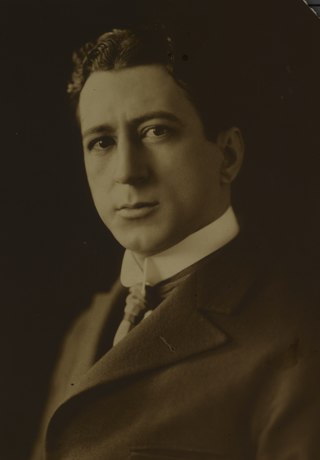 3
Antônio Carneiro Leão foi um educador, professor, e escritor brasileiro, imortal da Academia Brasileira de Letras.
3
Antônio Carneiro Leão foi um educador, professor, e escritor brasileiro, imortal da Academia Brasileira de Letras.
José Joaquim Almeida
 3
José Joaquim Almeida, was a Portuguese-born American privateer who fought in the Anglo-American War of 1812 and the Argentine War of Independence.
3
José Joaquim Almeida, was a Portuguese-born American privateer who fought in the Anglo-American War of 1812 and the Argentine War of Independence.
João Fernandes (explorer)
 3
João Fernandes was a Portuguese explorer of the 15th century. He was perhaps the earliest of modern explorers in the upland of West Africa, and a pioneer of the European slave and gold trade of...
3
João Fernandes was a Portuguese explorer of the 15th century. He was perhaps the earliest of modern explorers in the upland of West Africa, and a pioneer of the European slave and gold trade of...
João Barbosa Rodrigues
 3
João Barbosa Rodrigues was considered one of Brazil's greatest botanists, known especially for his work on orchids and palms. For nearly two decades he was director of the Botanic Garden of Rio de...
3
João Barbosa Rodrigues was considered one of Brazil's greatest botanists, known especially for his work on orchids and palms. For nearly two decades he was director of the Botanic Garden of Rio de...
Johann Baptist Reus
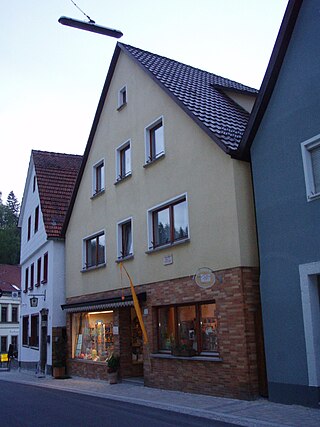 3
Johann Baptist Reus or João Batista Reus was a Jesuit priest and a German-Brazilian religious leader.
3
Johann Baptist Reus or João Batista Reus was a Jesuit priest and a German-Brazilian religious leader.
José Veríssimo
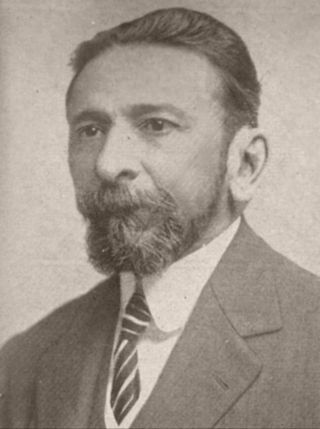 3
José Veríssimo Dias de Matos was a writer, educator, journalist, literary critic, and founding member of the Brazilian Academy of Letters.
3
José Veríssimo Dias de Matos was a writer, educator, journalist, literary critic, and founding member of the Brazilian Academy of Letters.
São José de Ribamar
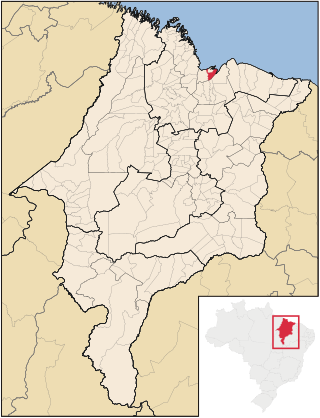 3
Sao José de Ribamar is a Brazilian municipality in the Maranhão state. 179,028 was its estimated population in 2020. It is part of the São Luís Island together with São Luís, Raposa, and Paço do...
3
Sao José de Ribamar is a Brazilian municipality in the Maranhão state. 179,028 was its estimated population in 2020. It is part of the São Luís Island together with São Luís, Raposa, and Paço do...
Isabel Moctezuma
 3
Doña Isabel Moctezuma was a daughter of the Aztec ruler Moctezuma II. She was the consort of Atlixcatzin, a tlacateccatl, and of the Aztec emperors Cuitlahuac, and Cuauhtemoc and as such the last...
3
Doña Isabel Moctezuma was a daughter of the Aztec ruler Moctezuma II. She was the consort of Atlixcatzin, a tlacateccatl, and of the Aztec emperors Cuitlahuac, and Cuauhtemoc and as such the last...
Antonio Moreira
 3
Antonio Moreira was a Spanish sports shooter. He competed in seven events at the 1920 Summer Olympics.
3
Antonio Moreira was a Spanish sports shooter. He competed in seven events at the 1920 Summer Olympics.
Félix Pacheco
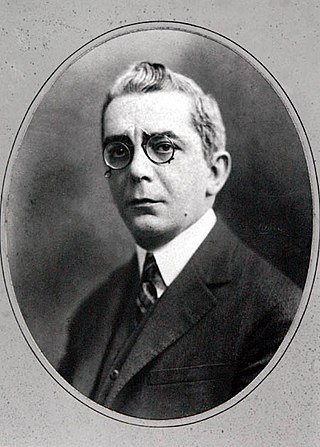 3
José Félix Alves Pacheco foi um jornalista, político, poeta e tradutor brasileiro.
3
José Félix Alves Pacheco foi um jornalista, político, poeta e tradutor brasileiro.
Serafim de Freitas
 3
Franciscus Serafim de Freitas was a Portuguese jurist and canon lawyer.
3
Franciscus Serafim de Freitas was a Portuguese jurist and canon lawyer.
Manoel José da Silva Bastos
 3
Manoel José da Silva Bastos é um escritor brasileiro, autor de peças teatrias. Foi um dos fundadores do Gabinete de Leitura, em 15 de agosto de 1846 – depois transformado na Biblioteca Rio-Grandense,...
3
Manoel José da Silva Bastos é um escritor brasileiro, autor de peças teatrias. Foi um dos fundadores do Gabinete de Leitura, em 15 de agosto de 1846 – depois transformado na Biblioteca Rio-Grandense,...
José Vieira Alvernaz
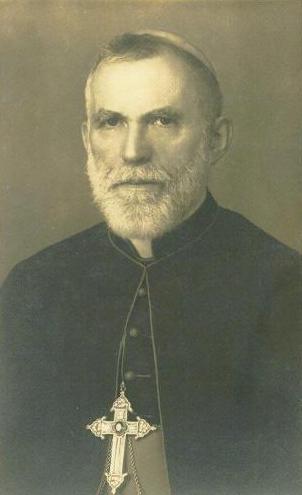 3
Dom José Vieira Alvernaz was a Portuguese prelate, Bishop of Cochin, Archbishop of Goa and Daman, Patriarch of the East Indies and one of the prominent figures of the Portuguese presence in India...
3
Dom José Vieira Alvernaz was a Portuguese prelate, Bishop of Cochin, Archbishop of Goa and Daman, Patriarch of the East Indies and one of the prominent figures of the Portuguese presence in India...
Manuel de Abreu
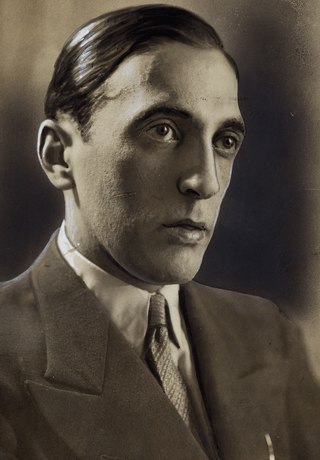 3
Manuel Dias de Abreu was a Brazilian physician and scientist, the inventor of abreugraphy, a rapid radiography of the lungs for screening tuberculosis. He is considered one of the most important...
3
Manuel Dias de Abreu was a Brazilian physician and scientist, the inventor of abreugraphy, a rapid radiography of the lungs for screening tuberculosis. He is considered one of the most important...
José Lins do Rego
 3
José Lins do Rego Cavalcanti was a Brazilian novelist most known for his semi-autobiographical "sugarcane cycle." These novels were the basis of films that had distribution in the English-speaking...
3
José Lins do Rego Cavalcanti was a Brazilian novelist most known for his semi-autobiographical "sugarcane cycle." These novels were the basis of films that had distribution in the English-speaking...
Martins Pena
 3
Luís Carlos Martins Pena was a Brazilian playwright, famous for introducing to Brazil the "comedy of manners", winning the epithet of "the Brazilian Molière".
3
Luís Carlos Martins Pena was a Brazilian playwright, famous for introducing to Brazil the "comedy of manners", winning the epithet of "the Brazilian Molière".
Pope Sylvester I
 3
Pope Sylvester I was the bishop of Rome from 31 January 314 until his death on 31 December 335. He filled the See of Rome at an important era in the history of the Western Church, though very little...
3
Pope Sylvester I was the bishop of Rome from 31 January 314 until his death on 31 December 335. He filled the See of Rome at an important era in the history of the Western Church, though very little...
Junqueira Freire
 3
Luís José Junqueira Freire was a Brazilian poet and Benedictine monk, adept of the "Ultra-Romanticism" movement and author of Inspirações do Claustro. He is the patron of the 25th chair of the...
3
Luís José Junqueira Freire was a Brazilian poet and Benedictine monk, adept of the "Ultra-Romanticism" movement and author of Inspirações do Claustro. He is the patron of the 25th chair of the...
Augusto Calheiros
 3
Augusto Calheiros foi um cantor e compositor brasileiro.
3
Augusto Calheiros foi um cantor e compositor brasileiro.
Juvenal Lamartine de Faria
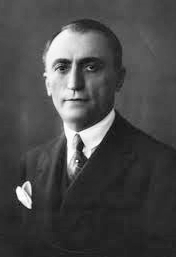 3
Juvenal Lamartine de Faria foi um advogado, jornalista, magistrado e político brasileiro.
3
Juvenal Lamartine de Faria foi um advogado, jornalista, magistrado e político brasileiro.
Augusto Pestana (politician)
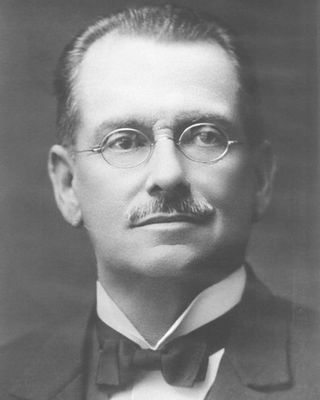 3
Augusto Pestana was a Brazilian engineer and politician. Born in Rio de Janeiro, Pestana moved in the late 1880s to Rio Grande do Sul, Brazil's southernmost state, where he would become a specialist...
3
Augusto Pestana was a Brazilian engineer and politician. Born in Rio de Janeiro, Pestana moved in the late 1880s to Rio Grande do Sul, Brazil's southernmost state, where he would become a specialist...
Tomás Pompeu de Sousa Brasil
 3
Tómas Pompeu de Sousa Brasil, o Senador Pompeu, foi um professor, jornalista, escritor, político e maçom brasileiro.
3
Tómas Pompeu de Sousa Brasil, o Senador Pompeu, foi um professor, jornalista, escritor, político e maçom brasileiro.
Inácio Luís Madeira de Melo
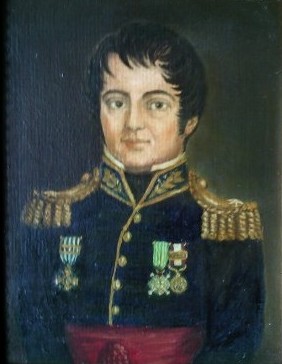 3
Inácio Luís Madeira de Melo was a Portuguese military officer. He served in the office of Governor of Arms, and led Portuguese troops based in Salvador in fighting the War of Independence of Brazil...
3
Inácio Luís Madeira de Melo was a Portuguese military officer. He served in the office of Governor of Arms, and led Portuguese troops based in Salvador in fighting the War of Independence of Brazil...
Luiz Pereira
 3
Luiz Pereira was a Brazilian paralympic athlete who competed mainly in category THW4 throwing events.
3
Luiz Pereira was a Brazilian paralympic athlete who competed mainly in category THW4 throwing events.
Amaro Soares Bittencourt
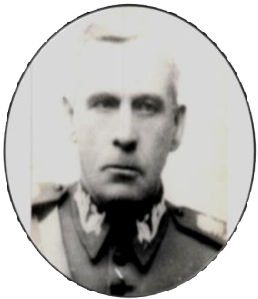 3
Amaro Soares Bittencourt (1885–1963) was a diplomat, a military and civil engineer and a general officer of the Brazilian Army, who attained the Brazilian Army rank of General of Division or in its...
3
Amaro Soares Bittencourt (1885–1963) was a diplomat, a military and civil engineer and a general officer of the Brazilian Army, who attained the Brazilian Army rank of General of Division or in its...
Irmã Dulce
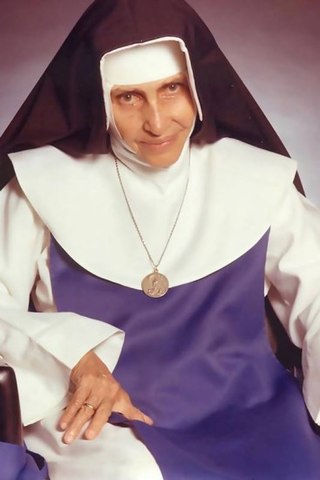 3
Irmã Dulce, also known as Saint Dulce of the Poor was a Brazilian Catholic Franciscan Sister who was the founder of the Obras Sociais Irmã Dulce.
3
Irmã Dulce, also known as Saint Dulce of the Poor was a Brazilian Catholic Franciscan Sister who was the founder of the Obras Sociais Irmã Dulce.
Henrique Dumont
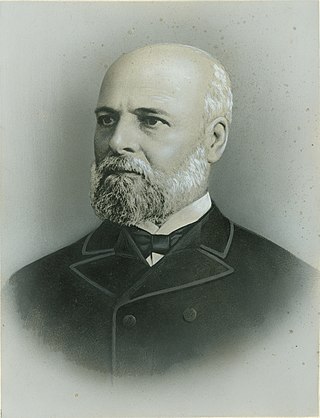 3
Henrique Honoré Dumont was a Brazilian engineer and coffee farmer, and the father of Alberto Santos-Dumont. A son of French immigrants, he is considered one of the three Coffee Kings of his time,...
3
Henrique Honoré Dumont was a Brazilian engineer and coffee farmer, and the father of Alberto Santos-Dumont. A son of French immigrants, he is considered one of the three Coffee Kings of his time,...
Cora Coralina
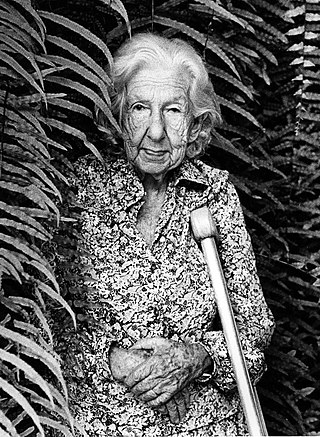 3
Cora Coralina is the pseudonym of the Brazilian writer and poet Ana Lins dos Guimarães Peixoto Bretas. She is considered one of the most important Brazilian writers, Her first book was published in...
3
Cora Coralina is the pseudonym of the Brazilian writer and poet Ana Lins dos Guimarães Peixoto Bretas. She is considered one of the most important Brazilian writers, Her first book was published in...
Adolfo Gordo
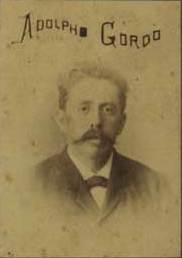 3
Adolfo Afonso da Silva Gordo, mais conhecido como Adolfo Gordo, foi um advogado e político brasileiro, elaborador da polêmica lei Adolfo Gordo. Foi governador do estado do Rio Grande do Norte entre...
3
Adolfo Afonso da Silva Gordo, mais conhecido como Adolfo Gordo, foi um advogado e político brasileiro, elaborador da polêmica lei Adolfo Gordo. Foi governador do estado do Rio Grande do Norte entre...
Francisco Xavier da Silva
 3
Francisco Xavier da Silva, mais conhecido como Xavier da Silva, foi um advogado, magistrado e político brasileiro. Foi governador do Paraná em quatro ocasiões e também senador pelo mesmo estado.
3
Francisco Xavier da Silva, mais conhecido como Xavier da Silva, foi um advogado, magistrado e político brasileiro. Foi governador do Paraná em quatro ocasiões e também senador pelo mesmo estado.
Domingos Olímpio
 3
Domingos Olímpio Braga Cavalcanti was a Brazilian novelist, journalist and playwright, famous for his Naturalist novel Luzia-Homem.
3
Domingos Olímpio Braga Cavalcanti was a Brazilian novelist, journalist and playwright, famous for his Naturalist novel Luzia-Homem.
Virgílio Távora
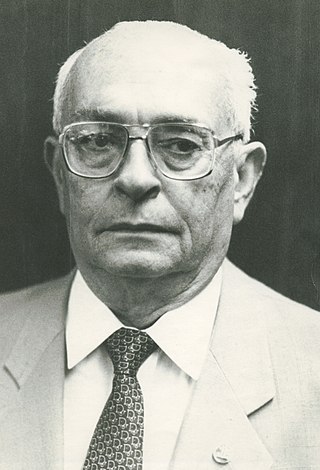 3
Virgílio de Morais Fernandes Távora foi um militar e político brasileiro. Sobrinho de Juarez Távora, fez carreira política no Ceará.
3
Virgílio de Morais Fernandes Távora foi um militar e político brasileiro. Sobrinho de Juarez Távora, fez carreira política no Ceará.
Emílio Ribas
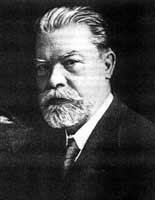 3
Emílio Marcondes Ribas foi um médico sanitarista brasileiro. Trabalhou no combate a epidemias e endemias, tendo criado o Instituto Butantan, entre outros órgãos públicos de saúde pública.
3
Emílio Marcondes Ribas foi um médico sanitarista brasileiro. Trabalhou no combate a epidemias e endemias, tendo criado o Instituto Butantan, entre outros órgãos públicos de saúde pública.
Francisco Expedito Lopes
 3
Dom Francisco Expedito Lopes foi um bispo católico brasileiro.
3
Dom Francisco Expedito Lopes foi um bispo católico brasileiro.
Carlos Barbosa-Lima
 3
Antonio Carlos Ribeiro Barbosa Lima was a Brazilian classical and jazz guitarist. He spent most of his professional life as a resident in the United States, devoting much of his time as a recitalist...
3
Antonio Carlos Ribeiro Barbosa Lima was a Brazilian classical and jazz guitarist. He spent most of his professional life as a resident in the United States, devoting much of his time as a recitalist...
Gertrude the Great
 3
Gertrude the Great, OSB was a German Benedictine nun and mystic from the monastery of Helfta. She is recognized as a saint by the Catholic Church and figures in the General Roman Calendar on November...
3
Gertrude the Great, OSB was a German Benedictine nun and mystic from the monastery of Helfta. She is recognized as a saint by the Catholic Church and figures in the General Roman Calendar on November...
Alceu Amoroso Lima
 3
Alceu Amoroso Lima was a writer, journalist, activist from Brazil, and founder of the Brazilian Christian Democracy. He adopted the pseudonym Tristão de Ataíde in 1919. In 1928 he converted to...
3
Alceu Amoroso Lima was a writer, journalist, activist from Brazil, and founder of the Brazilian Christian Democracy. He adopted the pseudonym Tristão de Ataíde in 1919. In 1928 he converted to...
Teresa de Lisieux
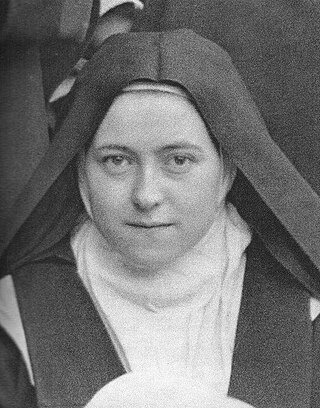 3
Teresa de Lisieux, O.C.D., nascida Marie-Françoise-Thérèse Martin, conhecida como Santa Teresinha do Menino Jesus e da Santa Face, foi uma freira carmelita descalça francesa, lembrada como um dos...
3
Teresa de Lisieux, O.C.D., nascida Marie-Françoise-Thérèse Martin, conhecida como Santa Teresinha do Menino Jesus e da Santa Face, foi uma freira carmelita descalça francesa, lembrada como um dos...
Teresa Cristina of the Two Sicilies
 3
Dona Teresa Cristina, nicknamed "the Mother of the Brazilians", was Empress of Brazil as the consort of Emperor Dom Pedro II from their marriage on 30 May 1843 until 15 November 1889, when the...
3
Dona Teresa Cristina, nicknamed "the Mother of the Brazilians", was Empress of Brazil as the consort of Emperor Dom Pedro II from their marriage on 30 May 1843 until 15 November 1889, when the...
Milton Campos
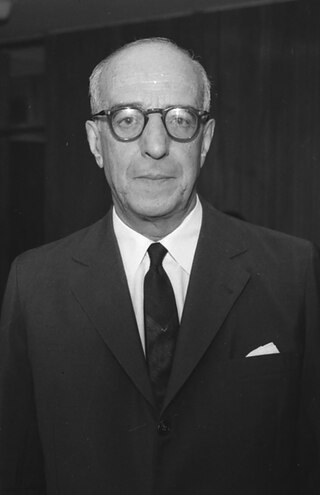 3
Milton Soares Campos foi um político, professor, jornalista e advogado brasileiro. Foi governador de Minas Gerais, deputado federal, senador e ministro da Justiça.
3
Milton Soares Campos foi um político, professor, jornalista e advogado brasileiro. Foi governador de Minas Gerais, deputado federal, senador e ministro da Justiça.
Antônio Francisco Braga
 3
Antônio Francisco Braga was a Brazilian music composer. Braga was born in Rio de Janeiro, and studied with Luiz António de Moura and Carlos de Mesquita. In 1886, he founded the Sociedade de Concertos...
3
Antônio Francisco Braga was a Brazilian music composer. Braga was born in Rio de Janeiro, and studied with Luiz António de Moura and Carlos de Mesquita. In 1886, he founded the Sociedade de Concertos...
Hermes
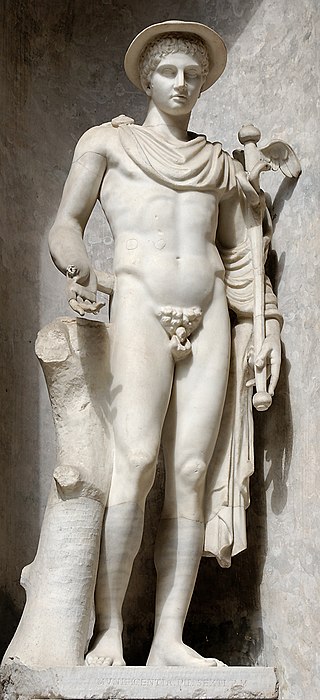 3
Hermes is an Olympian deity in ancient Greek religion and mythology considered the herald of the gods. He is also considered the protector of human heralds, travelers, thieves, merchants, and...
3
Hermes is an Olympian deity in ancient Greek religion and mythology considered the herald of the gods. He is also considered the protector of human heralds, travelers, thieves, merchants, and...
Pedro Ludovico
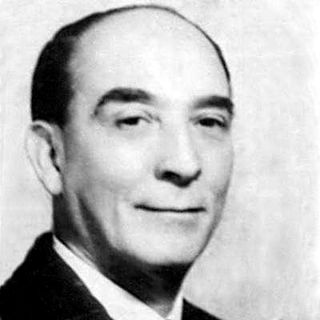 3
Pedro Ludovico was the founder of Goiânia, Brazil, and one of the most important figures in the history of the state of Goiás.
3
Pedro Ludovico was the founder of Goiânia, Brazil, and one of the most important figures in the history of the state of Goiás.
Aliomar Baleeiro
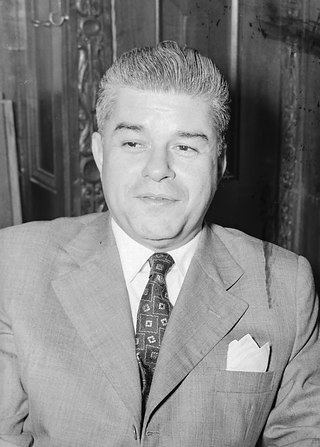 3
Aliomar de Andrade Baleeiro GCIH foi um jornalista, advogado, professor, jurisconsulto e político brasileiro. Foi deputado federal pela Bahia e pela Guanabara e ministro do Supremo Tribunal Federal,...
3
Aliomar de Andrade Baleeiro GCIH foi um jornalista, advogado, professor, jurisconsulto e político brasileiro. Foi deputado federal pela Bahia e pela Guanabara e ministro do Supremo Tribunal Federal,...
Francisco de Paula Bicalho
 3
Francisco de Paula Bicalho foi engenheiro responsável por algumas das obras empreendidas por Pereira Passos. Foi diretor técnico da Comissão Fiscal e Administrativa das Obras do Porto do Rio de...
3
Francisco de Paula Bicalho foi engenheiro responsável por algumas das obras empreendidas por Pereira Passos. Foi diretor técnico da Comissão Fiscal e Administrativa das Obras do Porto do Rio de...
João Teixeira Albernaz I
 3
João Teixeira Albernaz I also referred to as João Teixeira Albernaz, the Elder, to distinguish him from his grandson, was the most prolific Portuguese cartographer of the seventeenth century. His...
3
João Teixeira Albernaz I also referred to as João Teixeira Albernaz, the Elder, to distinguish him from his grandson, was the most prolific Portuguese cartographer of the seventeenth century. His...
Antônio Basílio Ribeiro Dantas
 3
Antônio Basílio Ribeiro Dantas foi um político brasileiro.
3
Antônio Basílio Ribeiro Dantas foi um político brasileiro.
Gilberto Mestrinho
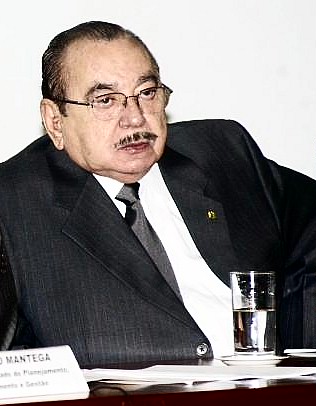 3
Gilberto Mestrinho de Medeiros Raposo was a Brazilian politician. Mestrinho served as the Governor of the state of Amazonas on three separate occasions. His first term as Governor was from 1959 until...
3
Gilberto Mestrinho de Medeiros Raposo was a Brazilian politician. Mestrinho served as the Governor of the state of Amazonas on three separate occasions. His first term as Governor was from 1959 until...
Jardel Filho
 3
Jardel Filho was a Brazilian film actor. He appeared in 45 films between 1949 and 1982.
3
Jardel Filho was a Brazilian film actor. He appeared in 45 films between 1949 and 1982.
Victor Meirelles
 3
Victor Meirelles de Lima was a Brazilian painter and teacher who is best known for his works relating to his nation's culture and history. From humble origins, his talent was soon recognized, being...
3
Victor Meirelles de Lima was a Brazilian painter and teacher who is best known for his works relating to his nation's culture and history. From humble origins, his talent was soon recognized, being...
Raimundo Nina Rodrigues
 3
Raimundo Nina Rodrigues was a Brazilian coroner, psychiatrist, professor, writer, anthropologist and ethnologist. A notable eugenicist, he was also a dietologist, tropicalist, sexologist, hygienist,...
3
Raimundo Nina Rodrigues was a Brazilian coroner, psychiatrist, professor, writer, anthropologist and ethnologist. A notable eugenicist, he was also a dietologist, tropicalist, sexologist, hygienist,...
Aquiles Lisboa
 3
Aquiles de Faria Lisboa foi um médico, político e cientista brasileiro.
3
Aquiles de Faria Lisboa foi um médico, político e cientista brasileiro.
Francisco de Paula Ney
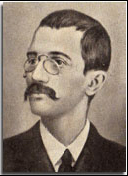 3
Francisco de Paula Ney was a Brazilian poet and journalist. A pre-eminent figure of the bohemian Rio de Janeiro of the Belle Époque, he was a friend of Coelho Neto, Aluísio Azevedo and Olavo Bilac....
3
Francisco de Paula Ney was a Brazilian poet and journalist. A pre-eminent figure of the bohemian Rio de Janeiro of the Belle Époque, he was a friend of Coelho Neto, Aluísio Azevedo and Olavo Bilac....
José Maurício (Portuguese composer)
 3
José Maurício was a Portuguese composer mainly known for his prolific production of sacred music.
3
José Maurício was a Portuguese composer mainly known for his prolific production of sacred music.
Manuel de Araújo Porto-Alegre, Baron of Santo Ângelo
 3
Manuel José de Araújo Porto-Alegre, Baron of Santo Ângelo, was a Brazilian Romantic writer, painter, architect, diplomat and professor, considered to be one of the first Brazilian editorial...
3
Manuel José de Araújo Porto-Alegre, Baron of Santo Ângelo, was a Brazilian Romantic writer, painter, architect, diplomat and professor, considered to be one of the first Brazilian editorial...
Rachel de Queiroz
 3
Rachel de Queiroz was a Brazilian author, translator and journalist.
3
Rachel de Queiroz was a Brazilian author, translator and journalist.
Elis Regina
 3
Elis Regina Carvalho Costa, known professionally as Elis Regina, was a Brazilian singer of Bossa nova, MPB and jazz music. She is also the mother of the singers Maria Rita and Pedro Mariano.
3
Elis Regina Carvalho Costa, known professionally as Elis Regina, was a Brazilian singer of Bossa nova, MPB and jazz music. She is also the mother of the singers Maria Rita and Pedro Mariano.
Eurípedes de Aguiar
 3
Eurípides Clementino de Aguiar foi um médico, jornalista, poeta e político brasileiro eleito governador do Piauí em 1916.
3
Eurípides Clementino de Aguiar foi um médico, jornalista, poeta e político brasileiro eleito governador do Piauí em 1916.
Damião de Bozzano
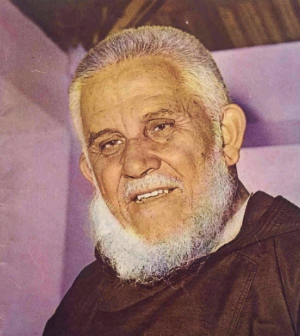 3
Damião de Bozzano O.F.M. Cap., born as Pio Giannotti, was an Italian Roman Catholic priest and a professed member from the Order of Friars Minor Capuchin who served in the Brazilian missions for over...
3
Damião de Bozzano O.F.M. Cap., born as Pio Giannotti, was an Italian Roman Catholic priest and a professed member from the Order of Friars Minor Capuchin who served in the Brazilian missions for over...
Manoel Pereira
 3
Manoel Pereira, O.P. (1625–1688) was a Roman Catholic prelate who served as Bishop of São Sebastião do Rio de Janeiro (1675–1680).
3
Manoel Pereira, O.P. (1625–1688) was a Roman Catholic prelate who served as Bishop of São Sebastião do Rio de Janeiro (1675–1680).
Leandro Maciel
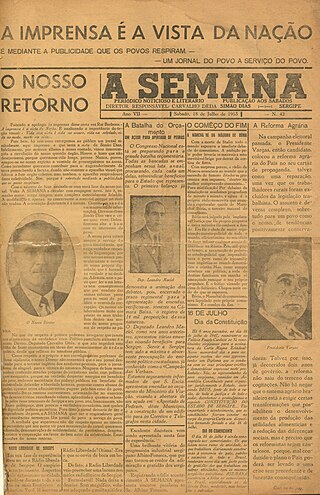 3
Leandro Maynard Maciel, filho do político e militante, Leandro Ribeiro de Siqueira Maciel e Ana Maynard Maciel, foi engenheiro e político brasileiro. Marido de Marina de Albuquerque Maciel, sucessora...
3
Leandro Maynard Maciel, filho do político e militante, Leandro Ribeiro de Siqueira Maciel e Ana Maynard Maciel, foi engenheiro e político brasileiro. Marido de Marina de Albuquerque Maciel, sucessora...
João V de Portugal
 3
João V, apelidado de O Magnânimo, foi Rei de Portugal e Algarves de 1706 até à sua morte. Foi o segundo filho do rei Pedro II e da sua segunda esposa Maria Sofia de Neuburgo. O seu longo reinado de...
3
João V, apelidado de O Magnânimo, foi Rei de Portugal e Algarves de 1706 até à sua morte. Foi o segundo filho do rei Pedro II e da sua segunda esposa Maria Sofia de Neuburgo. O seu longo reinado de...
Cacilda Becker
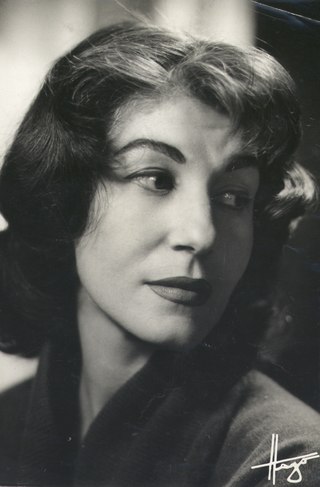 3
Cacilda Becker Iaconis was a Brazilian actress.
3
Cacilda Becker Iaconis was a Brazilian actress.
Luís Antônio Barbosa
 3
Luís Antônio Barbosa foi um político brasileiro.
3
Luís Antônio Barbosa foi um político brasileiro.
Benjamin Steinbruch
 3
Benjamin Steinbruch é um administrador, Investidor, banqueiro e empresário brasileiro, de origem judaica.
3
Benjamin Steinbruch é um administrador, Investidor, banqueiro e empresário brasileiro, de origem judaica.
Bernardo Pereira de Vasconcelos
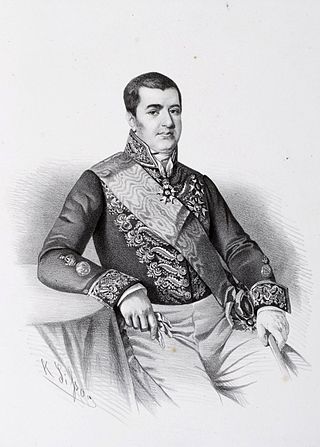 3
Bernardo Pereira de Vasconcelos was a Brazilian politician, journalist, judge and law expert of the Imperial era.
3
Bernardo Pereira de Vasconcelos was a Brazilian politician, journalist, judge and law expert of the Imperial era.
Teixeira de Pascoaes
 3
Joaquim Pereira Teixeira de Vasconcelos, better known by his pen name Teixeira de Pascoaes, was a Portuguese poet. He was nominated five times for the Nobel Prize in Literature.
3
Joaquim Pereira Teixeira de Vasconcelos, better known by his pen name Teixeira de Pascoaes, was a Portuguese poet. He was nominated five times for the Nobel Prize in Literature.
Pixinguinha
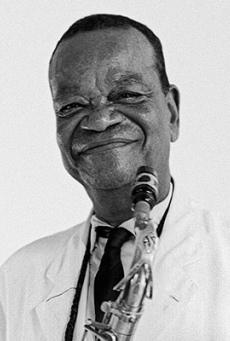 3
Alfredo da Rocha Viana Filho, known as Pixinguinha was a Brazilian composer, arranger, flautist and saxophonist born in Rio de Janeiro. Pixinguinha composed popular music, particularly within the...
3
Alfredo da Rocha Viana Filho, known as Pixinguinha was a Brazilian composer, arranger, flautist and saxophonist born in Rio de Janeiro. Pixinguinha composed popular music, particularly within the...
Hilário Maximiniano Antunes Gurjão
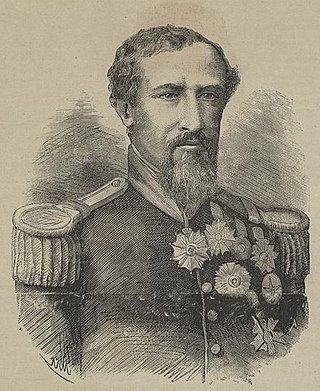 3
Hilário Maximiniano Antunes Gurjão (1820-1869) was a Brazilian Brigadier General of the Paraguayan War. He was known as the first general born in the state of Pará and participated in the battles of...
3
Hilário Maximiniano Antunes Gurjão (1820-1869) was a Brazilian Brigadier General of the Paraguayan War. He was known as the first general born in the state of Pará and participated in the battles of...
John of Damascus
 3
John of Damascus or John Damascene was an Arab Christian monk, priest, hymnographer, and apologist. Born and raised in Damascus c. 675 or 676; the precise date and place of his death is not known,...
3
John of Damascus or John Damascene was an Arab Christian monk, priest, hymnographer, and apologist. Born and raised in Damascus c. 675 or 676; the precise date and place of his death is not known,...
Gustavo Teixeira
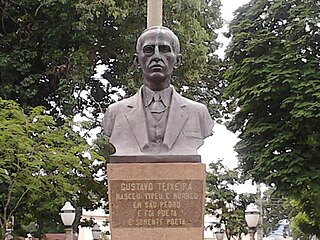 3
Gustavo de Paula Teixeira foi um poeta brasileiro, de tendências literárias entre o Parnasianismo e Simbolismo, peculiares as primeiras décadas do Século XX.
3
Gustavo de Paula Teixeira foi um poeta brasileiro, de tendências literárias entre o Parnasianismo e Simbolismo, peculiares as primeiras décadas do Século XX.
José Rodrigues
 3
José Rodrigues de Carvalho was a Portuguese painter.
3
José Rodrigues de Carvalho was a Portuguese painter.
Chico Xavier
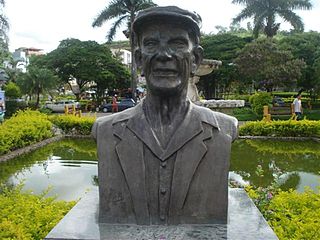 3
Chico Xavier or Francisco Cândido Xavier, born Francisco de Paula Cândido, was a popular Brazilian philanthropist and spiritist medium. During a period of 60 years he wrote over 490 books and several...
3
Chico Xavier or Francisco Cândido Xavier, born Francisco de Paula Cândido, was a popular Brazilian philanthropist and spiritist medium. During a period of 60 years he wrote over 490 books and several...
João da Silva Feijó
 3
João da Silva Barbosa or João da Silva Feijó,, was a naturalist, mineralogist and Portuguese soldier, born in Brazil.
3
João da Silva Barbosa or João da Silva Feijó,, was a naturalist, mineralogist and Portuguese soldier, born in Brazil.
Estácio de Sá
 3
Estácio de Sá was a Portuguese soldier and officer. Sá travelled to the colony of Brazil on the orders of the Portuguese crown to wage war on the French colonists commanded by Nicolas Durand de...
3
Estácio de Sá was a Portuguese soldier and officer. Sá travelled to the colony of Brazil on the orders of the Portuguese crown to wage war on the French colonists commanded by Nicolas Durand de...
Dionísio Cerqueira (militar)
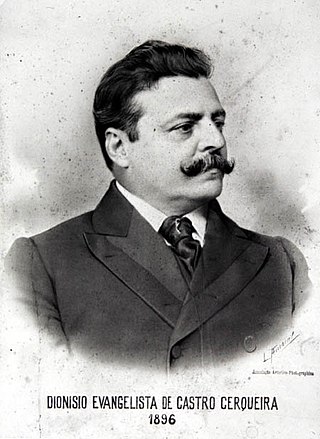 3
Dionísio Evangelista de Castro Cerqueira foi um herói da Guerra do Paraguai, General de Brigada, Deputado Federal, Ministro de Estado e engenheiro militar brasileiro.
3
Dionísio Evangelista de Castro Cerqueira foi um herói da Guerra do Paraguai, General de Brigada, Deputado Federal, Ministro de Estado e engenheiro militar brasileiro.
Geraldo Pereira (musician)
 3
Geraldo Theodoro Pereira, known as Geraldo Pereira, was a Brazilian singer and samba composer. He was a major figure in the development of samba in Rio de Janeiro.
3
Geraldo Theodoro Pereira, known as Geraldo Pereira, was a Brazilian singer and samba composer. He was a major figure in the development of samba in Rio de Janeiro.
Antônio Coelho Rodrigues
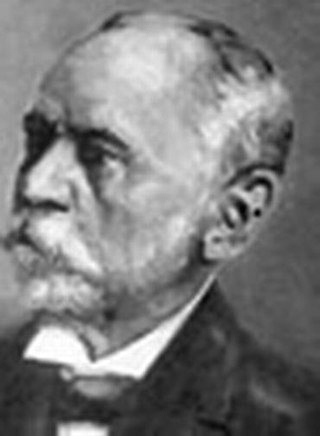 3
Antônio Coelho Rodrigues foi um advogado, professor, jurista, escritor, legislador e político brasileiro. Era bisneto por duas linhas do fidalgo português Dom Valério Coelho Rodrigues, personagem...
3
Antônio Coelho Rodrigues foi um advogado, professor, jurista, escritor, legislador e político brasileiro. Era bisneto por duas linhas do fidalgo português Dom Valério Coelho Rodrigues, personagem...
Miguel Pereira Forjaz, 10th Count of Feira
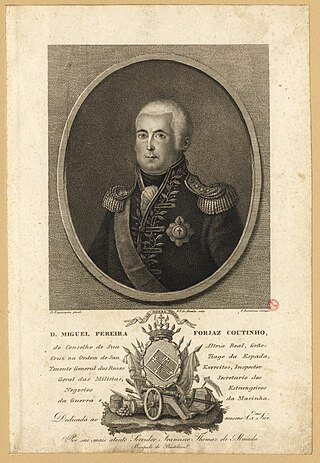 3
D. Miguel Pereira Forjaz Coutinho, 10th Count of Feira was a Portuguese general and War Secretary in the Peninsular War.
3
D. Miguel Pereira Forjaz Coutinho, 10th Count of Feira was a Portuguese general and War Secretary in the Peninsular War.
Roberto Marinho
 3
Roberto Pisani Marinho was a Brazilian businessman and tycoon who was the founder and owner of media conglomerate Grupo Globo from 1925 to 2003, and during this period expanded the company from...
3
Roberto Pisani Marinho was a Brazilian businessman and tycoon who was the founder and owner of media conglomerate Grupo Globo from 1925 to 2003, and during this period expanded the company from...
Infante Francisco de Paula of Spain
 3
Infante Francisco de Paula of Spain was an Infante of Spain and the youngest son of Charles IV of Spain and Maria Luisa of Parma. He was a brother of Ferdinand VII, as well as the uncle and...
3
Infante Francisco de Paula of Spain was an Infante of Spain and the youngest son of Charles IV of Spain and Maria Luisa of Parma. He was a brother of Ferdinand VII, as well as the uncle and...
José Valle
 3
José Valle Román was an Argentine professional football player and coach.
3
José Valle Román was an Argentine professional football player and coach.
José Vieira Couto de Magalhães
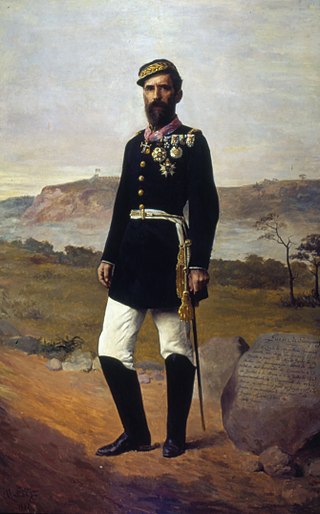 3
José Vieira Couto de Magalhães was a Brazilian politician, military officer, writer and folklorist.
3
José Vieira Couto de Magalhães was a Brazilian politician, military officer, writer and folklorist.
Mário Andreazza
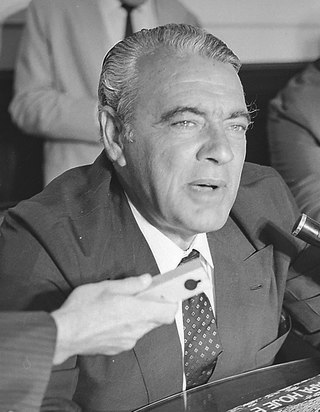 3
Mario David Andreazza GCIH foi um militar e político brasileiro. Foi ministro dos Transportes durante a Ditadura Militar nos governos Costa e Silva e Médici, tendo sido responsável por inúmeras obras...
3
Mario David Andreazza GCIH foi um militar e político brasileiro. Foi ministro dos Transportes durante a Ditadura Militar nos governos Costa e Silva e Médici, tendo sido responsável por inúmeras obras...
Cecília Meireles
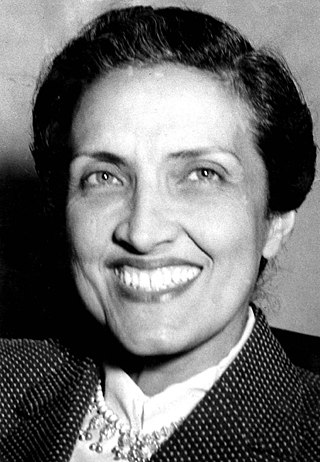 3
Cecília Benevides de Carvalho Meireles was a Brazilian writer and educator, known principally as a poet. She is a canonical name of Brazilian Modernism, one of the great female poets in the...
3
Cecília Benevides de Carvalho Meireles was a Brazilian writer and educator, known principally as a poet. She is a canonical name of Brazilian Modernism, one of the great female poets in the...
Francisco de Almeida
 3
Dom Francisco de Almeida, also known as the Great Dom Francisco, was a Portuguese nobleman, soldier and explorer. He distinguished himself as a counsellor to King John II of Portugal and later in the...
3
Dom Francisco de Almeida, also known as the Great Dom Francisco, was a Portuguese nobleman, soldier and explorer. He distinguished himself as a counsellor to King John II of Portugal and later in the...
Francisca Maria de Jesus
 3
Francisca Maria de Jesus foi a viscondessa consorte de Jequitinhonha.
3
Francisca Maria de Jesus foi a viscondessa consorte de Jequitinhonha.